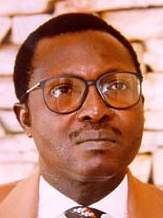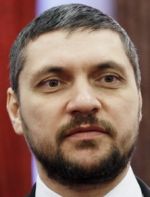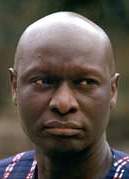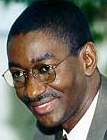Rulers
Index O
Ó Buachalla, Liam (b. 1899, Dublin, Ireland - d. Oct. 16, 1970, Drogheda, Ireland), chairman of the Seanad Éireann (1951-54, 1957-69).
Ó Cuív, Éamon (b. June 1, 1950, Dublin, Ireland), minister of community, rural and Gaeltacht affairs (2002-10), social and family affairs (2010-11), defence (2011), and environment, heritage and local government (2011) of Ireland; grandson of Eamon de Valera.

Ó Dálaigh |
Ó Dálaigh, Cearbhall (Irish), English Carroll O'Daly (b. Feb. 12, 1911, Bray, near Dublin, Ireland - d. March 21, 1978, Sneem, County Kerry, Ireland), president of Ireland (1974-76). While still in his early 20s, he became a protégé and devoted admirer of Eamon de Valera. He worked on de Valera's newspaper and stood unsuccessfully for parliament as a candidate of de Valera's party, Fianna Fáil. The special affinity between the two lay in their passionate enthusiasm for Irish language and culture; Ó Dálaigh never used the English form of his name. He became Ireland's youngest attorney general in 1945, serving at that post until 1948 and again in 1951-53. He became a judge on the Supreme Court in 1953 and was elevated to chief justice in 1961. In 1973 he became a judge of the Court of Justice of the European Communities in Luxembourg. He was the agreed candidate of the major political parties to take over as president following the death of Erskine H. Childers in 1974. He continued Childers's efforts to carve out a significant role for the essentially ceremonial presidency. In September 1976, he referred to the Supreme Court for a verdict on the constitutionality of a bill that would have lengthened the time during which police could detain suspected terrorists without making formal charges. The Supreme Court upheld the emergency legislation, albeit with reservations that justified Ó Dálaigh's action. But his action rankled with members of the government, and Defense Minister Patrick S. Donegan described him in a speech after an army luncheon as "a thundering disgrace." When the prime minister, Liam Cosgrave, declined to make any meaningful gesture of amends and refused to accept the resignation of Donegan (who had apologized), Ó Dálaigh resigned.
O Jin U, also spelled Oh Jin Wu (b. 1917, Jilin province, China - d. Feb. 25, 1995), North Korean politician. He was defense minister (1976-95), commander of the army, and an influential member of the Communist party.
Oates, Sir Thomas (b. Nov. 5, 1917 - d. June 28, 2015, St. Minver, Cornwall, England), governor of St. Helena (1971-76); knighted 1972.
Oba, Pierre (b. July 17, 1953, Ollembé, Middle Congo [now Congo (Brazzaville)]), interior and security minister of Congo (Brazzaville) (1997-2002). He has also been minister of security and police (2002-05), mines and mineral industries (2005- ), and hydrocarbons (2009).
Obaldía (y Orejuela), José (Arsenio Vicente del Carmen) de (b. July 19, 1806, Panama City, Colombia [now in Panama] - d. Dec. 28, 1889, David, Colombia [now in Panama]), governor of Panamá (1845, 1849-50, 1858-60) and vice president (1851-55) and acting president (1854-55) of New Granada.
Obaldía (Gallegos), José Domingo de (b. Jan. 30, 1845, David, Colombia [now in Panama] - d. March 1, 1910, Panama City, Panama), first vice president (1904-08) and president (1908-10) of Panama; son of José de Obaldía. He was also the last governor of the Colombian province of Panamá (1903) and minister to the United States (1904-07).
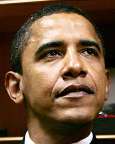
B. Obama |
Obama, Barack (Hussein)1 (b. Aug. 4, 1961, Honolulu, Hawaii), president of the United States (2009-17). He was the son of a Kenyan father and a white American mother who met and married when they were students at the University of Hawaii but who separated when he was two and later divorced. His mother subsequently married an Indonesian, and the young Barack lived in Jakarta for some years before returning to the United States. He served in the Illinois state legislature from 1997 until he was elected a U.S. senator from Illinois in 2004 - only the fifth black senator in U.S. history. In February 2007 he announced his candidacy for the 2008 Democratic presidential nomination. He was widely seen as the first African-American with a realistic chance of winning the presidency. In January 2008 he won the Iowa caucus and the South Carolina primary; in February he confirmed his position as one of the two frontrunners, as he and Sen. Hillary Clinton won a similar number of delegates on "Super Tuesday." He campaigned on a message of "change" and uniting the nation, reaching out to independents and even Republicans. Like Clinton, he vowed to withdraw from Iraq, making the point that he opposed the war from the start, unlike Clinton who voted for the 2002 congressional resolution authorizing the use of military force. After a long duel with Clinton he finally clinched the nomination on June 3, the day of the last primaries. At the convention in August he officially became the first black presidential nominee of a major party. With reduced levels of violence there, Iraq was not the dominant issue in the campaign; instead, a major financial crisis meant that, like in 1992, it was "the economy, stupid," which worked against the incumbent party and helped propel Obama to a historic victory in November, when he defeated Republican John McCain 53%-46%. After less than 9 months in office, he was awarded the 2009 Nobel Peace Prize for "his extraordinary efforts to strengthen international diplomacy and cooperation between peoples." In 2012 he was reelected over Republican Mitt Romney, 51%-47%. While he officially ended the Iraq and Afghanistan wars in 2011 and 2014 respectively, the emergence of the "Islamic State" in Iraq and Syria led him to ask Congress for a new war authorization in 2015. Domestically, his main accomplishment was the Affordable Care Act ("Obamacare") passed in 2010; after suffering what he called a "shellacking" in the midterm election later that year, he was hamstrung by extreme Republican obstructionism.
1 His full name is given on his birth certificate as "Barack Hussein Obama II," but he does not use this form; e.g., at his swearing in (where traditionally the full name is used) he just said "Barack Hussein Obama."
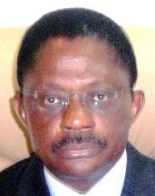
F.P. Obama | 
R.M. Obama |
Obama Asue, Francisco Pascual (Eyegue), prime minister of Equatorial Guinea (2016-23). He was also minister of youth and sports (1996-98) and public works and urban affairs (1998-99).
Obama Nfubea, Ricardo Mangue (b. 1961?), prime minister of Equatorial Guinea (2006-08). He was also second deputy prime minister (2004-06).
Obame, Alexis André Paul (b. Dec. 27, 1927, Lambaréné, Gabon), Gabonese diplomat. He was permanent representative to the United Nations (1973-75).
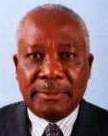
Obame-Nguema |
Obame-Nguema, Paulin (b. Dec. 28, 1934, Libreville, Gabon), prime minister of Gabon (1994-99). He was also minister of public health and population (1999) and social affairs (1999).
Obando (y del Campo), José María (Ramón) (name after adoption at age 2), original name José María Ramón Mosquera (b. Aug. 8, 1795, Güengüé, Cauca, New Granada [now in Colombia] - d. April 29, 1861, El Rosal, Cundinamarca, Granadine Confederation [now in Colombia]), president of New Granada (1853-54). He fought for the Spanish crown during most of the Latin American war for independence, but finally (1822) joined the revolutionary forces under Simón Bolívar. In the turbulent new republic of Gran Colombia (including present Colombia, Venezuela, and Ecuador), he opposed Bolívar's centralist government. A key event in the struggle for power was the assassination of Bolívar's lieutenant Marshal Antonio de Sucre in 1830, a deed for which many persons have held Obando responsible. Sucre's death helped clear the way for Obando's rise to the vice presidency (and acting presidency, 1831-32) and ministry of war in the newly independent State of New Granada, as Colombia was then called. In 1838-40 Obando led an unsuccessful rebellion against the Conservative Party government of Pres. José Ignacio de Márquez, and fled to Peru after his defeat. He returned to New Granada after the election victory of the Liberal Party in 1849, became a member of Congress, and in 1853 was elected president. His regime was marked by the adoption of the liberal constitution of 1853. It provided for popular election of provincial governors, and most of those elected were adverse to the executive. Obando's friends then staged a coup in 1854 in an attempt to save the party, but in the end the Conservatives gained control. Obando joined the civil war that began in 1860 on the side of Tomás Cipriano de Mosquera and was killed by government forces in 1861.
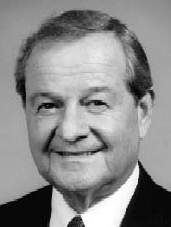
O'Bannon |
O'Bannon, Frank (Lewis) (b. Jan. 30, 1930, Louisville, Ky. - d. Sept. 13, 2003, Chicago, Ill.), governor of Indiana (1997-2003). He succeeded his father in the state Senate in 1970 and held the seat until becoming lieutenant governor in 1989. His 1996 victory over Indianapolis Mayor Stephen Goldsmith capped the costliest gubernatorial campaign in Indiana history, with the two spending a total of $15 million. Goldsmith championed competition in government, a practice he used while running the state's largest city. O'Bannon urged voters to keep Indiana on the course of economic progress established by two-term governor Evan Bayh, a Democrat who could not by law run again. O'Bannon dropped out of the gubernatorial race eight years before, becoming Bayh's running mate instead. O'Bannon's win meant Democrats won the statehouse for a third straight time, something the party had not done in 56 years. The last time Democrats won three consecutive governor elections in Indiana was in 1932, 1936, and 1940. O'Bannon's tenure began brightly with the economic boom of the late 1990s. Indiana built a record $2 billion surplus, and he cut taxes by $1.5 billion, put 500 more police officers on the streets, and won increasing funding for schools and universities. He coasted to reelection in 2000 over former U.S. Rep. David McIntosh. Shortly into his second term, the economic good times soured into a recession. Indiana lost 120,000 jobs, and tax revenues slowed to a trickle, forcing tax increases and spending cuts. Taking some conservative positions, he wanted to place a 7-foot stone monument with the Ten Commandments on the grounds of the state capitol until the courts said no, and he allowed seven executions to occur without delay. He died in office.
Obarrio (Vallarino), Henrique de (b. May 8, 1898, La Libertad, El Salvador - d. Feb. 24, 1978, Panama City, Panama), president of Panama in rebellion (1948). He was also comptroller-general of the republic (1945-48) and director-general of the National Bank of Panama (1954-60).

Obasanjo |
Obasanjo, (Matthew Fajinmi Okikiolakan Aremu) Olusegun (b. March 5, 1937, Abeokuta, Nigeria), president of Nigeria (1976-79, 1999-2007). He joined the army in 1958, rising quickly through the ranks, and during the civil war of 1967-70 (the Biafra secession) he headed a commando unit that was instrumental in ending the fighting. Brig.Gen. Murtala Mohammed seized power in a 1975 coup but soon declared that civilian rule would be restored by 1979. In 1976, Mohammed was assassinated, and his deputy, Obasanjo, reluctantly took over the leadership. Although Obasanjo's presidency was not without its controversies, he maintained Mohammed's plan of a return to civilian rule. In 1979 he called the extremely close election (in which he chose not to run) in favour of a candidate from the northern, predominantly Muslim region, thereby angering his fellow Yoruba but gaining the respect of the Hausa-Fulani leaders in the north. Obasanjo became the first military leader in Africa to hand over power to civilian rule. Throughout the next several years, he worked as a diplomat, holding various positions through the UN and other organizations. In 1995 he was imprisoned for allegedly organizing a coup against Gen. Sani Abacha. He was given a death sentence, later commuted to a 15-year jail term. Following Abacha's death in 1998, he was released. Subsequently he joined the dominant People's Democratic Party and announced his candidacy for president. He won about 63% of the vote in the 1999 election. His stated goal of establishing a democratic, transparent, corruption-free Nigeria drew the support of Western leaders. He was reelected in 2003 with about 62% of the vote. In 2004-06 he was chairman of the African Union. A bid to remain in office beyond 2007 was killed in May 2006 when the Senate unanimously rejected the necessary constitutional amendment.
Obaseki, Godwin (Nogheghase) (b. 1957, Benin City, Nigeria), governor of Edo (2016- ).
Obbov, Aleksandur (Hristov) (b. 1887 - d. 1975), interior minister of Bulgaria (1923). He was also agriculture minister (1920-23, 1944-45, 1945-46) and a deputy prime minister (1946-47).
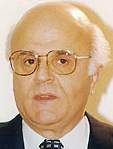
Jean Obeid | 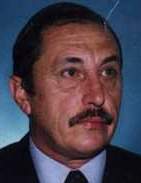
Jorge Obeid |
Obeid, Jean (Badawi), Arabic Jan (Badawi) `Ubayd (b. May 8, 1939, Alma, Lebanon - d. Feb. 8, 2021), foreign minister of Lebanon (2003-04). He was also minister of national education, youth, and sports (1996-98).
Obeid (D'Acierno), Jorge (Alberto) (b. Nov. 24, 1947, Ciudad de Diamante, Entre Ríos, Argentina - d. Jan. 28, 2014, Santa Fe, Santa Fe, Argentina), governor of Santa Fe (1995-99, 2003-07). He was also mayor of Santa Fe (1991-95).
Obeidat, Ahmad (Abdel Majid) (b. Nov. 18, 1938, Hartha, Irbid, Transjordan [now Jordan]), interior minister (1982-84) and prime minister (1984-85) of Jordan.
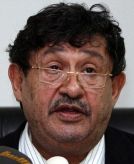
Obeidi |
Obeidi, Abdul Ati (Ibrahim) al-, Arabic `Abd al-`Ati al-`Ubaydi (b. Oct. 10, 1939), secretary of the General People's Committee (1977-79) and of the General People's Congress (1979-81) and foreign minister (1982-84, 2011) of Libya. He was also labour minister (1970-77) and ambassador to Tunisia (c.1988-1995) and Italy (1998-2004).
Obejero (Marmolejo), Tomás (b. Dec. 21, 1781, Santiago, Chile - d. 1849, Santiago), acting war and marine minister of Chile (1826-27).
Obenga, Théophile (Joseph Mwené Ndzalé) (b. Feb. 2, 1936, Mbaya, French Equatorial Africa [now in Congo (Brazzaville)]), foreign minister of Congo (1975-79). A noted scholar, he was also minister of communications, posts, and telecommunications (1992), labour and vocational training (1996-97), and higher education (1997).
Oberto (González), Luis Enrique (b. Aug. 19, 1928, Caracas, Venezuela - d. Aug. 8, 2022, Caracas), finance minister of Venezuela (1972-74). He was also president of the Chamber of Deputies (1990-94).
Obhodjas, Salko (b. Jan. 5, 1964, Pale [now in Republika Srpska], Bosnia and Herzegovina), premier of Bosnian Podrinje-Gorazde (2003-06).
Obi, Anthony (b. Jan. 13, 1952, Zaria, Nigeria - d. Jan. 1, 2022), administrator of Osun (1996-98) and Abia (1998-99).
Obi, Paul (Edor), administrator of Bayelsa (1998-99).
Obi, Peter (b. July 19, 1961, Onitsha [now in Anambra state], Nigeria), governor of Anambra (2006, 2007, 2007-14).
Obiang Mangue, Teodoro Nguema, byname Teodorín (b. June 25?, 1969), second vice president (2012-16) and first vice president (2016- ) of Equatorial Guinea; son of Teodoro Obiang Nguema Mbasogo.
Obiang Ndong, Dámaso (b. 1947 - d. Oct. 10, 2008, Malabo, Equatorial Guinea), Equatorial Guinean diplomat. He was permanent representative to the United Nations and ambassador to the United States (1988-94).
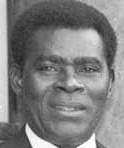
T. Obiang |
Obiang Nguema Mbasogo, Teodoro (b. June 5, 1942, Akoakam, Mongomo district, Spanish Guinea [now Equatorial Guinea]), president of Equatorial Guinea (1979- ). He joined the army which in 1963 awarded him a scholarship to a military academy in Zaragoza, Spain, the then colonial power. He returned home in 1965, and in 1969, one year after independence, he was put in charge of troops in the capital Malabo. Described as cunning - he was known in the local Fang language as "Ze Bere Ekum" which translates roughly as "the most watchful panther" - he rose quickly through the ranks. In 1977 he became deputy defense minister and a very powerful figure in the regime. He toppled his uncle, dictator Francisco Macías Nguema, in 1979. He was elected president in 1989 as sole candidate and again overwhelmingly in 1996, 2002, and 2009; opposition candidates complained of irregularities and in some cases withdrew from the elections. To keep all opposition at bay he brandished the spectre of "internal and external enemies." He was often accused of corruption and human rights abuses. In an attempt to whitewash his image he signed up prominent Western public relations companies. In 2009 he tried to float an international scientific prize under the auspices of the UN cultural body UNESCO, offering to allocate $3 million for five years to reward "research in life sciences." Non-government organizations, academics, and even Nobel laureate Desmond Tutu spoke out in indignation at the idea of a UN prize bearing Obiang's name, and in the end the project was shelved. In 2011-12 he was chairman of the African Union.
Obiang Nsogo, Rafael (b. 1935?), justice minister of Equatorial Guinea (1969). He was also minister of health (1969-71, 1976-78) and industry and mines (1971-76).
Obiano, Willie (Maduabuchi) (b. Aug. 8, 1955, Aguleri Otu [now in Anambra], Nigeria), governor of Anambra (2014-22).
Obín (y Charún), Manuel Jesús (b. 1841, Lima, Peru - d. Dec. 2, 1905, Lima), finance minister of Peru (1895-96).
Obissier, Louis Jules Albert (b. Jan. 23, 1868, Guitres, Gironde, France - d. 19...), commissioner of Mauritania (1914-16).
Oblitas Mendizábal, Jorge (b. April 23, 1831, Oruro, Bolivia - d. Dec. 24, 1900, Cochabamba, Bolivia), foreign minister (1876-77, 1884-85), second vice president (1884-88), and war minister (1896-97) of Bolivia.
Obodowski, Janusz (b. Jan. 2, 1930, Siedlce, Poland - d. Aug. 14, 2011, Warsaw, Poland), a deputy premier of Poland (1981-85). He was also minister of labour, wages, and social affairs (1980-81), chairman of the Planning Commission (1982-83), and ambassador to East Germany (1986-90).
Obolenskij, Ivan (Mikailovitsh), Russian Knyaz Ivan (Mikhailovich) Obolensky (b. Nov. 14 [Nov. 2, O.S.], 1853, Moscow, Russia - d. March 12 [Feb. 27, O.S.], 1910, St. Petersburg, Russia), governor-general of Finland (1904-05); son of Knyaz Mikhail Obolensky. He was also governor of Kherson (1897-1902) and Kharkov (1902-03).
Obolensky, Knyaz (Prince) Aleksandr (Nikolayevich) (b. March 7 [Feb. 24, O.S.], 1872 - d. Feb. 14, 1924), governor of Ryazan (1910-14; acting to 1913).
Obolensky, Knyaz (Prince) Aleksandr (Petrovich) (b. Jan. 11, 1781 [Dec. 31, 1780, O.S.] - d. April 30 [April 18, O.S.], 1855), governor of Kaluga (1825-31).
Obolensky, Knyaz (Prince) Aleksey (Dmitriyevich) (b. Dec. 6 [Nov. 24, O.S.], 1855, St. Petersburg, Russia - d. Sept. 21, 1933, Dresden, Germany), Russian official; nephew of Knyaz Mikhail Obolensky; grandson of Knyaz Aleksandr (Petrovich) Obolensky. He was chief procurator of the Holy Synod (1905-06).
Obolensky, Knyaz (Prince) Aleksey (Vasilyevich) (b. June 3 [May 22, O.S.], 1819 - d. Dec. 13 [Dec. 1, O.S.], 1884, St. Petersburg, Russia), governor of Yaroslavl (1861) and Moscow (1861-66); cousin of Knyaz Mikhail Obolensky; nephew of Knyaz Aleksandr (Petrovich) Obolensky.
Obolensky, Knyaz (Prince) Mikhail (Aleksandrovich) (b. Nov. 2 [Oct. 21, O.S.], 1821 - d. March 18 [March 6, O.S.], 1886), governor of Kovno (1868-74) and Voronezh (1874-78); son of Knyaz Aleksandr (Petrovich) Obolensky.
Obolensky, Knyaz (Prince) Nikolay (Leonidovich) (b. July 17 [July 5, O.S.], 1878 - d. March 11, 1960), governor of Kursk (1915), Kharkov (1915-16), and Yaroslavl (1916-17).
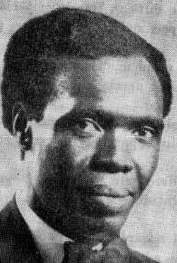
Obote |
Obote, (Apolo) Milton1 (Opeto), Apolo also spelled Apollo (b. Dec. 28, 1924 [other sources say 1925], Akokoro village, Lango district [now in Apac district], Uganda - d. Oct. 10, 2005, Johannesburg, South Africa), prime minister (1962-66), president (1966-71, 1980-85), and finance minister (1980-85) of Uganda. He became a member of the Uganda National Congress party in 1957 and was elected to the Legislative Council in 1958. When the National Congress split, he formed the Uganda People's Congress (UPC) in 1960. Drawing its support mainly from the northern Acholi and Lango peoples, the UPC was opposed to the southern kingdom of Buganda under King Mutesa II. However, he allied his party with Buganda's Kabaka Yekka party in order to win legislative elections in 1962. Becoming prime minister, he accepted a constitution granting federal status within independent Uganda to five traditional kingdoms, including Buganda; in 1963 Mutesa took up the (largely ceremonial) post of president. In 1966, however, Obote sent troops led by Idi Amin to attack Mutesa's palace, and Mutesa fled to Britain. Obote assumed the presidency and introduced a new constitution that abolished the kingdoms and conferred broad powers on the president. In 1971 he was overthrown in a coup led by Amin. He settled in neighbouring Tanzania, where he maintained a small émigré army led by Tito Okello, which aided Tanzanian forces in deposing Amin in 1979. Obote returned in May 1980 and was elected president in December. He did not prevent Acholi and Lango soldiers from conducting a campaign of murder and pillage in the south and in Amin's home district. In 1985 he was ousted by Okello. He eventually settled in Zambia. In 2005 he planned to return, but this was delayed after government officials observed that he would have to answer for the atrocities committed during his regime. In August he announced his retirement from the presidency of the UPC.
1 He adopted the name Milton in his early years out of admiration for John Milton, author of Paradise Lost.
Obradovic, Bosko (b. Aug. 23, 1976, Vranici, near Cacak, Serbia), Serbian politician. He was a minor presidential candidate (2017, 2022).
Obrecht, Hermann (b. March 26, 1882, Grenchen, Solothurn, Switzerland - d. Aug. 21, 1940, Bern, Switzerland), Landammann of Solothurn (1913, 1917) and economy minister of Switzerland (1935-40).
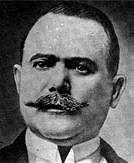
Obregón |
Obregón (Salido), Álvaro (b. Feb. 19, 1880, Álamos, Sonora, Mexico - d. July 17, 1928, San Ángel [now Álvaro Obregón] delegación, Mexico City, Mexico), president of Mexico (1920-24). He did not take part in the 1910-11 revolution that overthrew dictator Porfirio Díaz, but in 1912 he supported Pres. Francisco Madero against the rebel Pascual Orozco. When Madero was overthrown by Victoriano Huerta in February 1913, Obregón joined Venustiano Carranza against Huerta and consistently defeated the enemy armies; he occupied Mexico City on Aug. 15, 1914. Obregón remained allied with Carranza against the rebel leaders Pancho Villa and Emiliano Zapata. During the campaign against Villa, he decreed anti-clerical policies and labour regulations in the areas he conquered. At the constitutional convention of 1917, he was largely responsible for the revolutionary emphasis of the document. For a period in 1917 he served in Carranza's cabinet, but ideological differences induced him to resign. In 1920, Carranza's attempt to retain power by having his own candidate elected president brought about a rebellion in which Obregón played a leading role. Carranza was soon overthrown and Obregón was elected president. He effected relative peace in the country that had seen 10 years of savage civil war, and instituted widespread social and economic reforms. Because of some of these reforms, the United States refused to recognize his government until 1923, when he promised not to expropriate Mexican holdings of American oil companies. He defeated an army rebellion in 1923-24 before retiring at the end of his term. He was again elected to the presidency in 1928, but shortly afterward he was shot and killed by José de León Toral, who held Obregón responsible for persecutions of Catholics.
Obregón Cano, Ricardo (Armando) (b. April 4, 1917, Río Cuarto, Córdoba, Argentina - d. June 19, 2016, Buenos Aires, Argentina), governor of Córdoba (1973-74).
Obregón Tapia, Álvaro (b. Dec. 18, 1916 - d. Sept. 27, 1993, Tucson, Ariz.), governor of Sonora (1955-61); son of Álvaro Obregón.
Obregón Valverde, Enrique (b. Oct. 13, 1924, Santa María de Dota, Costa Rica - d. April 6, 2022), interior minister of Costa Rica (1984-86). He was also a minor presidential candidate (1962) and ambassador to Spain (1982-84), the Vatican (1983-84), Switzerland (1987-88), and the Soviet Union (1988-90).
Obrezkov, Aleksandr (Mikhailovich) (b. 1789 - d. Aug. 26, 1885, St. Petersburg, Russia), Russian diplomat; grandson of Aleksey Obrezkov. He was minister to Württemberg (1829-31) and Sardinia (1833-38).
Obrezkov, Aleksey (Mikhailovich) (b. 1718 - d. 1787), Russian diplomat. He was chargé d'affaires (1751-52) and resident (1752-68) in the Ottoman Empire.
Obrezkov, Dmitry (Mikhailovich) (b. 1790 - d. 1864), governor of Tver (1830), Vilna (1830-32), and Kiev (1832); brother of Aleksandr Obrezkov; grandson of Aleksey Obrezkov.
O'Brien, (Donal) Conor (David Dermot Donat) Cruise, pen name Donat O'Donnell (b. Nov. 3, 1917, Dublin, Ireland - d. Dec. 18, 2008, Howth, Ireland), Irish politician; son-in-law of Sean MacEntee. A major Irish intellectual figure, he was UN special representative in Congo (Léopoldville) (1961) and minister of posts and telegraphs (1973-77).
O'Brien, (Ionatana) Kolouei (b. July 15, 1939, Fakaofo, Union Group [now Tokelau] - d. May 11, 2015, Fakaofo), Ulu of Tokelau (2000-01, 2003-04, 2006-07). He was faipule of Fakaofo in 1999-2008 and 2014-15.
O'Brien, Larry (b. July 19, 1949, Ottawa, Ont.), mayor of Ottawa (2006-10).
O'Brien, Lawrence F(rancis, Jr.) (b. July 7, 1917, Springfield, Mass. - d. Sept. 28, 1990, New York City), chairman of the Democratic National Committee (1968-69, 1970-72). He was a congressional aide before being persuaded in 1952 to serve as John F. Kennedy's campaign manager in his quest to win the Senate seat of the firmly entrenched Republican Henry Cabot Lodge. A brilliant strategist, O'Brien marshaled 340 "Kennedy secretaries," who learned the importance of telephone and door-to-door canvasing, grass-roots voter-registration drives, and political teas. He handled Kennedy's 1958 reelection and was drafted to help in his presidential campaign. After Kennedy narrowly defeated Richard M. Nixon in 1960, O'Brien was named (1961) the special assistant to the president for congressional relations, a post he was asked to retain after Kennedy's 1963 assassination. In this capacity O'Brien was instrumental in helping Presidents Kennedy and Lyndon B. Johnson win approval for legislation introduced by the White House, including the bills that created the Peace Corps, Medicare, the Model Cities program, the Civil Rights Act of 1964, and a nuclear test ban treaty. When he attempted to leave government service, Johnson appointed him postmaster general (1965). He left this post in 1968 to handle the presidential campaign of Robert F. Kennedy, but when the latter was assassinated in June of that year, O'Brien became campaign director for Hubert Humphrey. When he was Democratic national chairman, it was his office that men working for the reelection of Nixon broke into in 1972; the ensuing Watergate scandal forced Nixon's resignation. In 1975 O'Brien surprised colleagues when he became commissioner of the National Basketball Association, a post he held until 1984.
O'Brien, Terence (Christopher) (b. Jan. 6, 1936, England - d. Dec. 30, 2022, Wellington, N.Z.), New Zealand representative in the Cook Islands (1976-78). He was also ambassador to Belgium (1983-86) and permanent representative to the United Nations (1990-93).
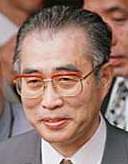
Obuchi |
Obuchi, Keizo (b. June 25, 1937, Nakanojo, Gunma prefecture, Japan - d. May 14, 2000, Tokyo, Japan), prime minister of Japan (1998-2000). The son of a politician, he resolved to become a politician himself after the death of his father in 1958. In 1963, at age 26, he was elected to the seat his father had held in the lower house of the Diet. Retaining his seat in 11 subsequent elections, he built a reputation as a congenial party functionary adept at forging behind-the-scenes compromises between competing political factions. He fought his way to the top against formidable local rivals such as prime ministers Takeo Fukuda and Yasuhiro Nakasone. He was deputy director-general in the prime minister's office in 1973 and in 1987 was named chief cabinet secretary. He also was secretary-general of the Liberal-Democratic Party (LDP) in April-October 1991. In 1992 he became head of the largest LDP faction. Ryutaro Hashimoto appointed him foreign minister in 1997. In 1998, the Diet named him prime minister, replacing Hashimoto, who was forced to resign following stunning losses for the LDP in elections to the upper house. Obuchi, whom pundits had called "about as exciting as cold pizza," moved quickly to win the confidence of Japanese citizens. Aside from getting Japan's stagnant economy back on its feet after its worst recession in over 50 years, he put through several measures dear to conservatives, including making official the national anthem and flag. But the honeymoon came to an end late in 1999 with a controversial decision to include a Buddhist-backed party in the government, a series of police scandals, and allegations of insider trading involving a close aide. Obuchi was replaced after suffering a coma-inducing stroke on April 2, 2000, triggered in part by his grueling work schedule.
Obure, Chris(topher Mogere) (b. Sept. 29, 1943, Gucha district, Nyanza province, Kenya), foreign minister (2001) and finance minister (2001-03) of Kenya. He also served as minister of industrial development (1999), cooperatives development (1999), agriculture (1999-2001), public works (2008-13), and acting minister of roads (2008-09).
Obzina, Jaromír (b. May 22, 1929 - d. Jan. 24, 2003, Prague, Czech Republic), interior minister of Czechoslovakia (1973-83). He was also a deputy premier (1983-89). He was charged with abuse of power in 2001 for his role in an operation aimed to crush political dissent between 1978 and 1984. The operation code-named Asanace ("Sanitation") focused on some 50 dissidents, signatories of the Charter 77 human rights manifesto, resorting to threats and harsh interrogations to intimidate them and force them to leave the country. Fear for their life forced some 20 dissidents to officially ask Communist authorities to send them into exile after stripping them of citizenship, in what was meant to keep them from ever returning to their homeland. Prosecution of Obzina was suspended in 2002 after a judge ordered an investigation into whether he should enjoy immunity as a former legislator. He served in the Czechoslovak parliament between 1973 and 1989.
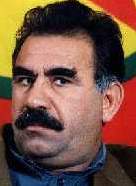
Öcalan |
Öcalan, Abdullah, byname Apo (b. April 14, 1949, Ömerli, Sanliurfa province, Turkey), Kurdish rebel leader. He founded the Kurdistan Workers Party (PKK) in 1978. It sought greater cultural rights for Turkey's Kurd minority, including the use of Kurdish language in education and broadcasting. The movement turned to guerrilla warfare in 1984. He drew supporters driven by Kurdish nationalism, poverty, and anger over the feudal system still prevalent in rural areas of the southeast. He recruited thousands of young Kurdish men and women and trained them with an iron fist. The guerrillas lived on rice and water in snow-covered mountains. Öcalan trained them in camps in the Syrian-controlled Bekaa Valley of Lebanon and in northern Iraq. He ordered his rebels to kill Turkish teachers so that Kurds in the southeast would not have to learn Turkish. But Öcalan himself reportedly knew little Kurdish and spoke Turkish. He also was never in the Turkish battlefield, hiding out mostly in Syria, until that country expelled him in 1998 under Turkish pressure. He arrived in Rome, Italy, on Nov. 12, 1998, seeking political asylum. He was arrested, prompting thousands of devoted followers to take to the streets of Rome and capitals across Europe to oppose his extradition to Turkey. They marched by the thousands, launched hunger strikes by the hundreds, set themselves on fire, and blew themselves up in suicide-bombings. Turkey was trying him in absentia on capital crimes, a fact that blocked his return by Italy. Italian law forbade extraditing suspects to a country where they faced the death penalty. In January 1999 he was allowed to leave Italy, but on February 15 Turkish security forces captured him in Kenya and brought him to Turkey, where he was sentenced to death on June 29. In 2002 Turkey abolished the death penalty, and his sentence was commuted to life imprisonment.
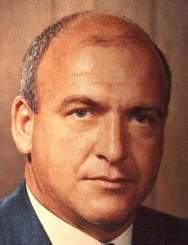
O'Callaghan |
O'Callaghan, Mike, byname of Donal Neil O'Callaghan (b. Sept. 10, 1929, La Crosse, Wis. - d. March 5, 2004, Las Vegas, Nev.), governor of Nevada (1971-79). Adopting the first name Mike as a young boxer, he served in the Korean War where he lost his left leg below the knee. He became Nevada's first health and welfare director and a regional director in the federal Office of Emergency Preparedness before turning to politics. A Democrat, he narrowly won his first term as governor but was overwhelmingly reelected to a second term. He concerned himself with issues including the welfare of disadvantaged children, the preservation of Lake Tahoe, and affordable housing. He also advocated for prisoners' rights, arguing that companies should hire them and give them a chance to turn their lives around. Although the latter philosophy drew criticism with some labeling him as too liberal, he noted he was governor when the death penalty was reinstated in Nevada. Later he was executive editor and chairman of the Las Vegas Sun for 25 years.
Ocampo (Gaviria), José Antonio (b. Dec. 20, 1952, Cali, Colombia), finance minister of Colombia (1996-97, 2022- ). He was also minister of agriculture (1993-94), director of the National Planning Department (1994-96), executive secretary of the UN Economic Commission for Latin America and the Caribbean (1998-2003), and UN undersecretary-general for economic and social affairs (2003-07).
Ocampo Herrera, Germán (b. May 29, 1898, Manizales, Colombia - d. Jan. 23, 1973, Bogotá, Colombia), war minister of Colombia (1948-49). He was also commander of the army (1944-46).
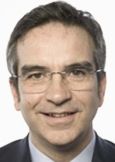
Occhiuto |
Occhiuto, Roberto (b. May 13, 1969, Cosenza, Italy), president of Calabria (2021- ).
Och, Od (b. 1967), Mongolian diplomat. He was permanent representative to the United Nations (2012-15) and ambassador to the Benelux countries (2017-21).
Ochab, Edward (b. Aug. 16, 1906, Kraków, Austria [now in Poland] - d. May 1, 1989, Warsaw, Poland), first secretary of the Polish United Workers' Party (1956) and chairman of the Council of State (1964-68) of Poland. He was also minister of public administration (1945) and agriculture (1957-59), first secretary of the party committee of Katowickie województwo (1946-48), and chairman of the Central Committee of Trade Unions (1948-49).
Ochagavía Echaurren, Silvestre (b. July 28, 1862, Chacra Ochagavía [now Pedro Aguirre Cerda], Chile - d. Jan. 29, 1934, Chacra Ochagavía), foreign minister of Chile (1916). He was also president of the Senate (1914-15).
Ochefu, Anthony (Aboki) (b. 1934, Idoma [now in Kogi state], Nigeria - d. [assassinated] Nov. 25, 1999, Otukpo, Benue, Nigeria), governor of East Central state (1975).

Ochirbat |
Ochirbat, Punsalmaagiyn, originally Gendenjavyn Ochirbat1 (b. 1942, Tudevtey district, Dzavhan aymag [province], western Mongolia), president of Mongolia (1990-97). He began his career in government as an adviser at the Ministry of Industry in 1966. In 1972 he was appointed deputy minister of fuel and power industry and geology, and in 1976 he was promoted to the rank of minister. In January 1985 he became chairman of the State Committee for Foreign Economic Relations, and then in December 1987, following a reorganization of ministries, he was named minister of foreign economic relations and supply. In this position he was responsible for all of Mongolia's foreign trade operations. His political career was continuously linked with the ruling Mongolian People's Revolutionary Party (MPRP), which he joined in 1965. He was first elected to the MPRP's Central Committee in the late 1970s and was reelected in April 1990 at the party's 19th congress. In March 1990 the MPRP's constitutional "leading role" in government was abolished and Ochirbat became chairman of the Presidium of the People's Great Khural (national assembly). After the country's first-ever multiparty elections in July, in which he won a large majority in his Darhan City constituency, the first session of the new People's Great Khural elected him president of Mongolia for a five-year term. As president, he gave up the seat as a deputy in the national assembly that he had held since 1975. Mongolia adopted a new constitution in 1992 which provided for direct presidential elections. The first such election was held in June 1993, and Ochirbat, supported by the opposition parties after being dumped by the then-ruling MPRP, won against MPRP candidate Lodongiyn Tudev. In 1997, however, he lost against the MPRP's Natsagiyn Bagabandi.
1 He is the son of Gendenjav and Punsalmaa; his father died when he was 5 years old, and at age 9 he replaced the patronym Gendenjavyn by the metronym Punsalmaagiyn.
Ochoa Antich, Fernando (b. Sept. 12, 1938, Caracas, Venezuela), defense minister (1991-92) and foreign minister (1992-94) of Venezuela. He was ambassador to Mexico in 1994-98.
Ochoa González, Arnoldo (b. Jan. 27, 1951, Colima, Colima, Mexico), acting governor of Colima (2005).
Ochoa Zaragoza, Rigoberto (b. Dec. 13, 1935, Tepic, Nayarit, Mexico), governor of Nayarit (1993-99). He was also president of Mexico's Chamber of Deputies (1991-92).
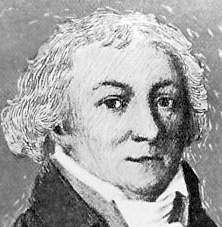
Ochs |
Ochs, Peter (b. Aug. 20, 1752, Nantes, France - d. June 19, 1821, Basel, Switzerland), Swiss revolutionary. Born in France and growing up in Hamburg, Ochs went with his parents in 1769 to Basel, where he entered politics, becoming Ratsschreiber (1782), Stadtschreiber (1790), and Oberstzunftmeister (1796). Adhering to the ideas of the Enlightenment, he became an opponent of the "decayed Confederation" and, with the outbreak of the French Revolution, joined the partisans of revolutionary change in Switzerland. He championed French intervention and urged acceptance of the French Directory's demands for curtailing traditional rights of asylum and expelling émigrés. In Paris (1796-97) he plotted with Napoléon Bonaparte the establishment of a Swiss revolutionary government and produced a draft for a constitution for a unitary Switzerland, modeled closely upon the French constitution of 1795. With few emendations, his document was accepted, and the Helvetic Republic was established April 12, 1798. In the new regime, Ochs became president of the Senate and president of the state executive organ, the Directory, but he was deposed by the party of Frédéric César de La Harpe (June 1799) and thereafter played a diminishing role in national politics. After participating in the Consulta of 1802-03, which prepared a new constitution restoring the sovereignty of the cantons, he withdrew to cantonal politics in Basel, where he achieved local prominence for his part in devising new governmental and penal codes (1813, 1821) and reorganizing the city university.
Ochsenbein, (Johann) Ulrich (b. Nov. 24, 1811, Schwarzenegg, Bern, Switzerland - d. Nov. 3, 1890, Bellmund, Bern, Switzerland), president of the Diet (1847, 1847-48) and defense minister (1848-54) of Switzerland.
Ociepka, Wieslaw (b. Feb. 16, 1922, Sosnowiec, Poland - d. [plane crash] Feb. 28, 1973, near Szczecin, Poland), interior minister of Poland (1971-73).
Ocón, Gonzalo, interior minister of Nicaragua (1933-36).
O'Connell, Daniel, byname The Liberator (b. Aug. 6, 1775, near Cahirciveen, County Kerry, Ireland - d. May 15, 1847, Genoa, Kingdom of Sardinia [now in Italy]), Irish political leader. In 1823 he formed the Catholic Association which successfully fought elections against the landlords. Elected MP for County Clare in 1828, he was prevented as a Catholic from taking his seat, but won another election in 1829, the Catholic emancipation bill having been passed in the meantime. He sat for County Waterford (1830-31), County Kerry (1831-32), Dublin City (1832-35, 1837-41), Kilkenny City (1836-37), and County Cork (1841-47). At the general election of 1832 he nominated about half of the candidates returned, creating a significant bloc - his famous "tail" - of MPs who were pledged to support repeal of the 1800 Act of Union. By Feargus O'Connor, the Freeman's Journal, and his more ardent followers he was forced to raise the Repeal issue prematurely in Parliament; a motion for inquiry was defeated 523-38. By the "Lichfield House Compact," he supported the Whig government in 1835-40, promising a period of calm in Ireland in exchange for reforms. In April 1840 he founded his famous Repeal Association. Yet the agitation languished until the appearance of the Nation in 1842 brought him the aid of John Blake Dillon, Charles Gavan Duffy, T.O. Davis, James Clarence Mangan, and O'Neill Daunt. In 1841-42 he was lord mayor of Dublin. In 1843 he brought up Repeal in the Dublin corporation, and carried it 41-15. But the Young Ireland party began to grow impatient of his tactics, and O'Connell allowed himself to outrun his better judgment. A meeting planned for Clontarf and expected to draw a million supporters was prohibited. In 1844 he was imprisoned for seditious conspiracy; the House of Lords set aside the verdict after 14 weeks. It soon came to an open split between him and Young Ireland (1846). In failing health, he left Ireland for the last time in January 1847, and died in Genoa on his way to Rome. After Irish independence the major street of Dublin, with his large-scale statue and plinth, was named O'Connell Street.
O'Connell, Sir Maurice Charles (b. Jan. 13, 1812, Sydney, New South Wales - d. March 23, 1879, Brisbane, Queensland), acting governor of Queensland (1868, 1871, 1874-75, 1877); knighted 1868.
O'Connor, Bob, byname of Robert E. O'Connor, Jr. (b. Dec. 9, 1944, Pittsburgh, Pa. - d. Sept. 1, 2006, Pittsburgh), mayor of Pittsburgh (2006).
O'Connor, Sir (William) Frederick (Travers) (b. July 30, 1870 - d. Dec. 14, 1943), British resident (1918-20) and envoy (1920-23) in Nepal; knighted 1925.
O'Connor, Gordon (James) (b. May 18, 1939, Toronto, Ont.), defence minister of Canada (2006-07). He was also minister of national revenue (2007-08).
O'Connor, Maureen (Frances) (b. July 14, 1946, San Diego, Calif.), mayor of San Diego (1986-92).
O'Connor, Ray(mond James) (b. March 6, 1926, Perth, W.Aus. - d. Feb. 25, 2013, Perth), premier of Western Australia (1982-83).
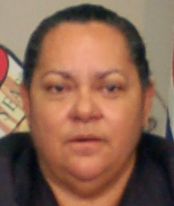
O'Connor-Connolly |
O'Connor-Connolly, Juliana (Yvonne) (b. 1961?, Cayman Brac island, Cayman Islands), premier and finance minister of the Cayman Islands (2012-13). She has also been speaker of the Legislative Assembly (2001-03, 2013-17), minister of planning, communications, district administration, and information technology (2003-05), education, sports, youth, agriculture, and lands (2017-21), and education, district administration, lands, and survey (2021- ), and deputy premier (2009-12).
Odaka, Sam (Ngude) (b. 1933, Bukedi, Uganda - d. Aug. 4, 2015, Kampala, Uganda), foreign minister of Uganda (1964-71). He was also minister of planning and economic development (1980-85).
Oddie, Tasker L(owndes) (b. Oct. 24, 1870, Brooklyn [now part of New York City], N.Y. - d. Feb. 17, 1950, San Francisco, Calif.), governor of Nevada (1911-15).

Oddsson |
Oddsson, Davíd (b. Jan. 17, 1948, Reykjavík, Iceland), prime minister (1991-2004) and foreign minister (2004-05) of Iceland. He served three terms as mayor of Reykjavík from 1982 to 1991, earning a reputation as a strong but popular leader. In 1991, even though he was not a member of parliament, he challenged the sitting head of the Independence Party, wresting control from him and leading the party to victory in the election that year, forming a coalition with the Social Democrats. After the 1995 election he dumped the Social Democrats and formed a coalition with Halldór Ásgrímsson's Progressive Party. The colourful Oddsson once again showed his dominance of Iceland's politics in 1999, as voters applauded his centre-right coalition's handling of the booming economy. The Independence Party, already the dominant force in Iceland's parliament, increased its strength in the Althing. Oddsson had an easy campaign, benefiting from three years of growth of 5% or more, which boosted purchasing power, slashed unemployment, and filled the government coffers without reigniting inflation. He was able to see off opposition parties, ridiculing their claims that prosperity had left many people in poverty, dismissing their calls for heavy increases in welfare spending, and sidestepping criticism of the management of Iceland's key fisheries industry. In May 2003 the coalition was reelected, but in order to prevent the Progressive Party from defecting and forming a government with the opposition, Oddsson had to make a deal agreeing to step down in favour of Ásgrímsson in September 2004. He then took on Ásgrímsson's post as foreign minister. He resigned from the government in 2005 to become chairman of the Board of Governors of the Icelandic Central Bank. Widely blamed for a banking system collapse that wreaked havoc on the economy, he was removed from that post in 2009 and then became co-editor of Morgunbladid. He was a presidential candidate in 2016.
O'Dea, Fabian (Aloysius) (b. Jan. 20, 1918, St. John's, Newfoundland - d. Dec. 12, 2004, St. John's, Newfoundland and Labrador, Canada), lieutenant governor of Newfoundland (1963-69).
O'Dea, Willie, byname of William Gerard O'Dea, Irish Liam Ó Deaghaidh (b. Nov. 18, 1952, Kilteely, County Limerick, Ireland), defence minister of Ireland (2004-10).
Odelberg, Albrecht Theodor (b. Dec. 21, 1847, Brännkyrka, Stockholm län [now part of Stockholm city], Sweden - d. Feb. 15, 1938, Stockholm), governor of Gävleborg (1899-1900). He was also Swedish agriculture minister (1900-05).
Odelström, Erik (Carlsson) (b. June 9, 1684 - d. Feb. 8, 1753, Ödeby socken, Örebro, Sweden), governor of Västernorrland (1739-49).
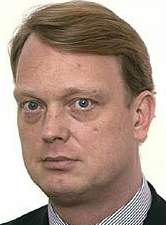
Odenberg |
Odenberg, Mikael (Ingemarsson) (b. Dec. 14, 1953, Stockholm, Sweden), defense minister of Sweden (2006-07).
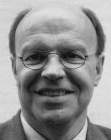
G. Odermatt | 
L. Odermatt |
Odermatt, Gerhard (b. July 17, 1947), Landammann of Nidwalden (2004-05, 2010-11).
Odermatt, Leo (b. Jan. 17, 1948), Landammann of Nidwalden (2002-03, 2008-09).
Odero-Jowi, Joseph (Gordon) (b. Aug. 15, 1929, Karungu, Kenya - d. Oct. 17, 2015, Nairobi, Kenya), Kenyan politician. He was minister of economic planning and development (1969-70) and permanent representative to the United Nations (1970-73).
Odeyev, Pirkuli, Turkmen Pirguly Odaýew (b. 1947, Beshir, Chardzhou oblast, Turkmen S.S.R. [now Lebap velayat, Turkmenistan]), a deputy prime minister of Turkmenistan (1992-97). He was also head of Lebap velayat (1992-96) and minister of irrigation and water management (1996) and agriculture, food and processing industry (1996-97).
Odhnoff, (Elna) Camilla, née Wilske (b. June 6, 1928, Göteborg, Sweden - d. July 16, 2013, Lund, Sweden), governor of Blekinge (1974-92). She was also Swedish minister without portfolio (family, youth, and immigration) (1967-73).
Odigie-Oyegun, John (Evboyomwan Kenneth) (b. Aug. 12, 1939, Warri [now in Delta state], Nigeria), governor of Edo (1992-93). He was also national chairman of the All Progressives Congress (2014-18).
Odili, Peter (Otunuya) (b. Aug. 15, 1949, Ndoni [now in Rivers state], Nigeria), governor of Rivers (1999-2007).
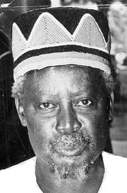
O. Odinga |
Odinga, (Jaramogi Ajuma) Oginga (b. October 1911?, Sakwa, Central Nyanza, East African Protectorate [now in Kenya] - d. Jan. 20, 1994, Kisumu, Kenya), Kenyan politician. Entering politics in 1947, he was an associate of Jomo Kenyatta in the campaign for Kenya's independence from Britain. As a member of Kenya's second largest ethnic group, the Luo, he was active in recruiting Luo support for the movement, and was president of the Luo Union, a political and social organization, in 1952-57. In 1957 he was elected to the Legislative Council. A founder member of the Kenya African National Union (KANU) in 1960, he became its first vice president. He was elected to the House of Representatives in 1963, and after Kenya became independent in December that year, he became minister for home affairs (1963-64) and vice president (1964-66). Considering many of Kenyatta's policies too moderate, he broke away from KANU in 1966 to form a left-wing opposition party, the Kenya People's Union, which failed to gain nationwide support. It was outlawed by Kenyatta in 1969, and some of its members, including Odinga, were detained. After his release in 1971, he rejoined KANU, but he was effectively blocked by Kenyatta and his followers from participating actively in politics. When Daniel arap Moi became president in 1978, Odinga was only temporarily brought out of the cold. In 1982 he was expelled from KANU and imprisoned for several months. He kept up his criticism of government corruption and pressed for a multiparty political system. In August 1991 he helped found the Forum for the Restoration of Democracy (FORD). In December Moi legalized opposition parties, but subsequently FORD split into two with Kenneth Matiba leading FORD-Asili and Odinga heading the FORD-Kenya group. In multiparty presidential elections held in 1992, Odinga came fourth.
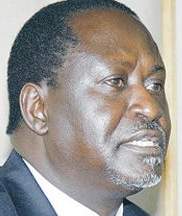
R. Odinga |
Odinga, Raila (Amolo) (b. Jan. 7, 1945, Maseno, Nyanza province, Kenya), prime minister of Kenya (2008-13); son of Oginga Odinga. In 1982 he was accused of plotting against Pres. Daniel arap Moi; he was imprisoned without trial for six years. After his release, he was twice arrested for campaigning against one-party rule, and in 1991 he sought refuge in Norway. He returned to Kenya in 1992, however, and was elected to parliament that year. In 1997 he first unsuccessfully ran for president. Odinga, of Nilotic Luo descent, then gave his support to Moi and the ruling Kikuyu-dominated Kenya African National Union (KANU), becoming energy minister in 2001. His hope of succeeding Moi as KANU's candidate for the presidency in 2002 was shattered when Moi supported Uhuru Kenyatta. Quitting KANU, Odinga formed the National Rainbow Coalition of Kenya, which, after a series of mergers, linked up with another coalition group under the leadership of former vice president Mwai Kibaki, himself a Kikuyu. Odinga played a significant role in securing the election of Kibaki as president and became minister of roads and public works (2003-05) and housing (2003-04). When Odinga successfully led a campaign against a proposed new constitution that would have further strengthened the powers of the president, Kibaki dismissed the cabinet. Odinga then formed the Orange Democratic Movement, which won a resounding majority in the December 2007 parliamentary elections. A delay in the announcement of the result of the presidential election, which Odinga also believed he had won, led him to accuse the government of electoral malpractice. Official results dubiously gave Kibaki the victory. Riots followed in western Kenya and parts of Nairobi, resulting in the death of hundreds of Kikuyu, with thousands more driven from their homes; the Kikuyu responded in areas where they were in the majority, and it was weeks before order was restored. In February 2008 former UN secretary-general Kofi Annan brokered an agreement that led to Odinga's being sworn in to the newly created post of prime minister under Kibaki's presidency and with a power-sharing cabinet. He was again a presidential candidate in 2013 and 2017, losing to Kenyatta; the result in 2017 was again contentious and a repeat election was held but boycotted by Odinga. In 2022 he lost to William Ruto.
Odingar (Mbailao), Noël Milarew (b. 1932, Sowalé, Chad - d. May 4, 2007, Paris, France), interim head of state of Chad (1975).
Odintsov, Dmitry (Aleksandrovich) (b. June 12, 1852 - d. af. 1909), governor of Kars oblast (1898-99), Baku province (1899-1904), and Kuban oblast (1904-08).
Odintsov, Vladimir (Yevgenyevich) (b. Nov. 18, 1924, Mikhalevo, Tula province, Russian S.F.S.R. [now in Oryol oblast, Russia] - d. March 25, 2009, Makhachkala, Dagestan, Russia), first secretary of the Communist Party committee of the North Ossetian A.S.S.R. (1982-88).
Odio Odio, Benjamín (b. Aug. 15, 1908, Liberia, Costa Rica - d. Nov. 11, 1956, San José, Costa Rica), foreign minister of Costa Rica (1948-49). He was also ambassador to Argentina, Chile, and Uruguay (1949-50).
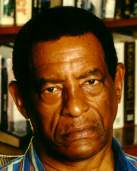
Odlum |
Odlum, George (William) (b. June 24, 1934, Castries, St. Lucia - d. Sept. 28, 2003, Castries), St. Lucian politician. He served as permanent secretary in the ministry of trade, industry, and tourism from 1961 to 1964, and from 1964 to 1967 as an economist in the Commonwealth Secretariat in London. Between 1967 and 1971, he was the executive secretary in the Council of Ministers of the West Indies Associated States. For eight years, from 1971 to 1979, he gave yeoman service as president of the Farmers and Farm Workers Union. He became a member of government in 1979, and between 1979 and 1981, he was the deputy prime minister and minister for trade, industry, tourism, and foreign affairs. In 1994, he was posted to the St. Lucia mission to the United Nations, where he served as permanent representative, a post which he held with distinction until February 1996. In 1997 he was elected to parliament as Labour Party candidate for Castries North East and again became foreign minister. A longtime leftist activist, he had often challenged party leaders in a stormy career. He resigned in 2001 in a dispute over the government's direction, and then unsuccessfully sought to regain power in an alliance with a rival party.
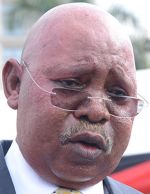
Odongo |
Odongo, Jeje (Abubaker) (b. March 3, 1954), internal affairs minister (2016-21) and foreign minister (2021- ) of Uganda. He was also army commander (1998-2001) and minister without portfolio (2001-04).
O'Donoghue, John (b. May 28, 1956, Cahirciveen, County Kerry, Ireland), justice minister of Ireland (1997-2002). He was also minister of arts, sport, and tourism (2002-07) and chairman of Dáil Éireann (2007-09).
O'Donojú (y O'Ryan), Juan (José Rafael Teodomiro) (b. July 30, 1762, Sevilla, Spain - d. Oct. 8, 1821, Mexico City, Mexico), first secretary of state of Spain (1813) and viceroy of New Spain (1821).
Odorizzi, Tullio (b. Feb. 20, 1903, Cles, Austria-Hungary [now in Trentino-Alto Adige, Italy] - d. July 8, 1991, Trento, Trentino-Alto Adige), president of Trentino-Alto Adige (1949-60). He was also mayor of Trento (1946-48).
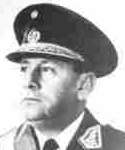
Odría |
Odría (Amoretti), (José) Manuel A(rturo) (b. Nov. 26, 1897, Tarma, Peru - d. Feb. 18, 1974, Lima, Peru), chairman of the military junta (1948-50) and president (1950-56) of Peru. A grandson of Manuel Odría, a 19th-century war hero, he entered military school in 1915, was commissioned a second lieutenant in 1919, and in 1930 graduated from the War College, to which he later returned as director. In 1946 he was promoted to brigadier general and was made army chief of staff. Pres. José Luis Bustamante y Rivero appointed him minister of the interior in January 1947. In October 1948, heading an army junta, he deposed Bustamante in a bloodless coup, to protect his country from the radical APRA party. He dissolved the legislature, declared military rule, and took measures to restore the economy and political stability. He resigned temporarily on June 1, 1950, to run unopposed for election and was inaugurated as president July 28. He used harsh repressive measures to eliminate opposition and maintain order. Economic controls were ended, foreign investment was encouraged, and some improvements were made in social security and education. The economy expanded initially, helped also by U.S. aid and higher prices for exports during the Korean War, but by the end of his term there was a mounting trade deficit and rapid inflation, as well as labour unrest and public protests against the regime. He permitted a free election in 1956, in which he did not run, then went into a self-imposed exile, spending much time in the United States. In 1962 and 1963 he ran again for president, both times coming third. He then allied his forces in Congress with those of his former enemy, APRA leader Víctor Raúl Haya de la Torre, to block many of Pres. Fernando Belaúnde's reforms.
Odriozola (Romero), Manuel (b. March 26, 1826, Lima, Peru - d. June 27, 1888, Lima), justice and education minister of Peru (1875-76).
Odry, Dominique (Joseph) (b. 1865 - d. 1962), general commissioner of the Memel Territory (1920-21).
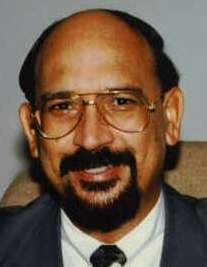
N. Oduber |
Oduber, Nelson (Orlando) (b. Feb. 7, 1947), prime minister of Aruba (1989-94, 2001-09).

D. Oduber |
Oduber Quirós, (Porfirio Ricardo José Luis) Daniel (b. Aug. 25, 1921, San José, Costa Rica - d. Oct. 13, 1991, San José), president of Costa Rica (1974-78). He participated in the 1948 revolution, was a member of the founding junta of the Second Republic, and a founder of the National Liberation Party (PLN), of which he was secretary-general in 1956-58. He was also permanent delegate to the United Nations (1949), ambassador to Mexico (1949), and special ambassador in Europe (1953-55). In 1958-62 he was head of the PLN parliamentary group. As minister of foreign relations (1962-64) he cultivated good relations with the United States. In 1966 he first won his party's presidential nomination but was narrowly defeated by the moderate conservative José Joaquín Trejos. Oduber became president of the PLN in 1970 and served as president of the Legislative Assembly in 1972-73. Elected president in 1974, he took measures to reduce inflation, improve the balance of trade, expand social-welfare programs, institute a land-reform policy, and protect the environment. He restored legal status to the Communist Party in 1975 and reopened diplomatic relations with Cuba in 1977. In 1977 he was accused of having won his 1974 campaign with contributions from the fugitive American financier Robert Vesco. He said the money was in the form of loans which had been repaid. A brilliant orator and astute negotiator, he exercised almost absolute control over the PLN until 1984, when his leadership was challenged by Óscar Arias Sánchez. He was also a vice president of the Socialist International. In 1989 a parliamentary commission investigating drug trafficking urged him to retire from public life, and in April 1990 his party barred him from politics for one year in connection with a 1985 campaign donation he took from American Lionel Casey, later accused of drug trafficking.
Oduoye, Simeon (Olasunkanmi) (b. 1945, Ikirun [now in Osun state], Nigeria - d. March 21, 2014, Osogbo, Osun), administrator of Niger (1996-98) and Ebonyi (1998-99).
O'Dwyer, Sir Michael (Francis) (b. April 28, 1864, Barronstown, County Tipperary, Ireland - d. [assassinated] March 13, 1940, London, England), lieutenant governor of Punjab (1913-19); knighted 1913.
O'Dwyer, William (b. July 11, 1890, Bohola, County Mayo, Ireland - d. Nov. 24, 1964, New York City), mayor of New York City (1946-50). He was also U.S. ambassador to Mexico (1950-52).
Oele, Adriaan Pieter, byname Ad Oele (b. Nov. 28, 1923, Rotterdam, Netherlands - d. April 20, 2017, Houten, Utrecht, Netherlands), queen's commissioner of Drenthe (1982-88) and acting queen's commissioner of Gelderland (1991). He was also mayor of Delft (1973-78).
Oelreich, Charles Emil von (b. Oct. 24, 1839, Magda, Södermanland, Sweden - d. Sept. 1, 1911, Karlshamn, Blekinge, Sweden), governor of Kronoberg (1898-1909).
Oemarsono (b. May 3, 1940 - d. May 22, 2022, Surakarta, Jawa Tengah, Indonesia), governor of Lampung (1998-2003).
Oeray, Johanes Chrisostomus Oevaang (b. Aug. 18, 1922, Melapi, Netherlands East Indies [now in Kalimantan Barat, Indonesia] - d. July 17, 1986, Pontianak, Kalimantan Barat, Indonesia), governor of Kalimantan Barat (1960-67).
Oeser, (Carl Gustav) Rudolf (b. Nov. 13, 1858, Coswig, Anhalt-Bernburg [now in Sachsen-Anhalt, Germany] - d. June 3, 1926, Berlin, Germany), interior minister of Germany (1922-23). He was also minister of transportation (1923-24).
Oesman, Syahrial (b. May 25, 1955, Palembang, Sumatera Selatan, Indonesia), governor of Sumatera Selatan (2003-08).

Oettinger | 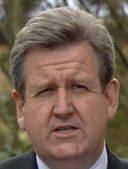
O'Farrell |
Oettinger, Günther (Hermann) (b. Oct. 15, 1953, Stuttgart, Baden-Württemberg, West Germany), minister-president of Baden-Württemberg (2005-10). He was also EU commissioner for energy (2010-14), digital economy and society (2014-16), and budget and human resources (2017-19).
Ofalia, Narciso de Heredia y Begines de los Ríos, conde de, marqués de Heredia (b. Sept. 11, 1777, Gines, Sevilla province, Spain - d. Sept. 8, 1843, Madrid, Spain), first secretary of state (1824) and prime minister and foreign minister (1837-38) of Spain. He was also minister of justice (1823-24) and development (1832-33) and minister to the United Kingdom (1826-28). He acquired the title conde de Ofalia by marriage in 1822 and was created marqués de Heredia in 1833.
O'Farrell, Barry (Robert) (b. May 24, 1959, Melbourne, Vic.), premier of New South Wales (2011-14). He was appointed high commissioner to India in 2020.
Offerhaus, Willem Augustijn (b. May 20, 1897, Arnhem, Netherlands - d. Nov. 24, 1961, Groningen, Netherlands), queen's commissioner of Groningen (1954-61).
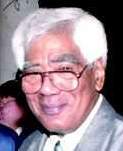
Offmann |
Offmann, Karl (Auguste) (b. Nov. 25, 1940, Port Louis, Mauritius - d. March 12, 2022), president of Mauritius (2002-03). He was also minister of economic planning and development (1983), local government and cooperatives (1984-86), and social security and national solidarity (1986-87).
O'Flynn, Frank, byname of Francis Duncan O'Flynn (b. Oct. 24, 1918, Greymouth, New Zealand - d. Oct. 17, 2003), defence minister of New Zealand (1984-87).
Ofori-Atta, Ken(neth) (b. Nov. 7, 1959, Kibi, Ghana), finance minister of Ghana (2017-21, 2021- ).
Ofori-Atta, William (Eugene Amoako-Atta), byname Paa Willie (b. Oct. 10, 1910, Kibi, Gold Coast [now in Ghana] - d. July 14, 1988, Accra, Ghana), foreign minister of Ghana (1971-72); son of Nana Sir Ofori Atta I (ruler of Akyem Abuakwa 1912-43). He was also minister of education, culture, and sports (1969-71).
Ogandzhanyan, Musheg (Grigoryevich) (b. May 12, 1924, Noragyukh, Azerbaijan S.S.R. - d. Oct. 1, 2017), chairman of the Executive Committee of Nagorno-Karabakh autonomous oblast (1963-74).
Ogata, Sadako (b. Sept. 16, 1927, Tokyo, Japan - d. Oct. 22, 2019, Tokyo), United Nations high commissioner for refugees (1991-2000); granddaughter of Kenkichi Yoshizawa; great-granddaughter of Tsuyoshi Inukai.
Ogawa, Hiroshi (b. May 17, 1949 - d. Nov. 2, 2021, Fukuoka, Japan), governor of Fukuoka (2011-21).
Ogbeha, (Jonathan) Tunde (b. Sept. 1, 1947), governor of Akwa Ibom (1987-88) and Bendel (1987-90).
Ogbemudia, Samuel (Osaigbovo) (b. Sept. 17, 1932, Benin City [now in Edo state], Nigeria - d. March 9, 2017, Lagos, Nigeria), administrator (1967-68) and governor (1968-75) of Mid-Western state and governor of Bendel (1983). He was also Nigerian minister of labour and productivity (1993-95).
Ogbu, Edwin Ogebe (b. Dec. 28, 1926 - d. 1996), acting foreign minister of Nigeria (1966) and ruler of Idoma (1996). He was also permanent representative to the United Nations (1968-75) and high commissioner to Jamaica, Barbados, and Trinidad and Tobago (1970-74).
Ogden, Aaron (b. Dec. 3, 1756, Elizabethtown, New Jersey - d. April 19, 1839, Jersey City, N.J.), governor of New Jersey (1812-13).
Ogden, Peter Skene (baptized Feb. 12, 1790, Québec, Quebec - d. Sept. 27, 1854, Oregon City, Ore.), governor of the District of Columbia (British Columbia) (1838-39).
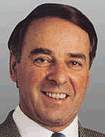
Ogi |
Ogi, Adolf (b. July 18, 1942, Kandersteg, Bern, Switzerland), president of Switzerland (1993, 2000). He joined the People's Party in 1978, serving as its president from 1984 to 1987, and entered parliament in 1979. He entered the cabinet in 1987 as minister for transport, energy, and communications, and became defense minister in 1995. He twice held the largely ceremonial post of president - a position which rotates on a yearly basis among the seven members of the cabinet. In October 2000 he announced that he would step down at the end of the year. The announcement followed weeks of intense speculation about Ogi's future. Ogi told a news conference in Bern that, like a sportsman, he was stepping down at the "high point" of his career. Ogi represented the more liberal, Bern-based wing of the People's Party and had found himself in recent years under political pessure from the more right-wing, Zürich-based section of the party. In 2001 UN Secretary-General Kofi Annan named Ogi, who served as director of the Swiss Ski Federation for 12 years beginning in 1969, to be his special adviser on "sport for development and peace."
Ogio, Sir Michael (b. July 7, 1942, Tinputz village, Bougainville, New Guinea [now in Papua New Guinea] - d. Feb. 18, 2017, Port Moresby, Papua New Guinea), governor-general of Papua New Guinea (2010-17); knighted 2011. He was also minister of public service (1988), forests (1999-2002), and higher education, research, science, and technology (2007-10), minister of state responsible for Bougainville (1992-94), and deputy prime minister (2000-02).
Ogle, Benjamin (b. Feb. 7 [Jan. 27, O.S.], 1749, Annapolis, Maryland - d. July 7, 1809, Annapolis), governor of Maryland (1798-1801); son of Samuel Ogle.
Ogle, Samuel (b. 1694?, Northumberland county, England - d. May 14 [May 3, O.S.], 1752, Annapolis?, Maryland), governor of Maryland (1731-32, 1733-42, 1747-52); son-in-law of Benjamin Tasker.
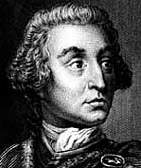
Oglethorpe |
Oglethorpe, James (Edward) (b. Dec. 22, 1696, London, England - d. July 1, 1785, Cranham Hall, Essex, England), founder of the British colony of Georgia in America. He joined the Austrian army of Prince Eugène of Savoy in 1714, serving in the campaign against the Turks in 1716-17 and being present at the siege and storming of Belgrade. Back in England, he became member of Parliament for Haslemere in 1722. In 1729 he was chairman of a committee that brought about some much needed prison reforms. His work in behalf of insolvent debtors gave him the idea of founding a new colony in North America where the poor could start afresh and also as an asylum for persecuted Protestant sects. In 1732 he and 19 others secured a charter for such a colony in what became Georgia. In January 1733 he arrived at Charleston with 120 colonists; in the same year he founded Savannah. On the outbreak of war between Britain and Spain in 1739, he conducted a vigorous defense of the colony. Though his force proved inadequate to capture the Spanish town of St. Augustine, Florida, he was able to repel an attack on Fort Frederica, Georgia (1742), displaying great personal courage and leadership in the engagement. His popularity with all classes of the population helped to assure the safety of the colony, which continued to grow and prosper after the war. He returned to England in 1743. In 1745, now a major general, he took part in the campaign against the Jacobites; for his slackness in pursuit of the retreating rebels he was tried by court-martial but acquitted. He then saw no further active military service. With his fellow trustees of Georgia, he surrendered the charter in 1752. He served in Parliament until he lost his seat in 1754. In 1765 he was promoted to full general.
Ogolin, Aleksandr (Stepanovich) (b. March 16, 1821 - d. July 16, 1911), governor of Vitebsk (1861-63) and Kutaisi (1865-66).
Ogouma, Simon Ifede (b. 1933? - d. Jan. 29, 2023), foreign minister of Benin (1980-82). He was also permanent representative to the United Nations (1983-88) and minister-delegate to the presidency in charge of planning and statistics (1988-89).
Ogoundélé(-Tessi), Marthe (b. Oct. 14, 1964), acting president of the Territorial Council of Saint-Martin (2008).
O'Grady, Sir James (b. May 6, 1866, Bristol, England - d. Dec. 10, 1934, London, England), governor of Tasmania (1924-30) and the Falkland Islands (1931-34); knighted 1924. As a British trade unionist, he was president of the Trades Union Congress (1898), chairman of the General Federation of Trade Unions (1912-18), and secretary of the National Federation of General Workers (1917-24).
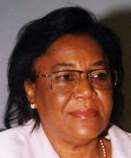
Ogwu |
Ogwu, Joy (Uche Angela) (b. Aug. 22 or 23, 1946, Yaba, near Lagos, Nigeria), foreign minister of Nigeria (2006-07). She was also permanent representative to the United Nations (2008-16).
Oh Joon (b. Oct. 4, 1955, Seoul, South Korea), South Korean diplomat. He was ambassador to Singapore (2010-13) and permanent representative to the United Nations (2013-16).
Ohakim, Ikedi (Godson) (b. Aug. 4, 1957, Okohia [now in Imo state], Nigeria), governor of Imo (2007-11).
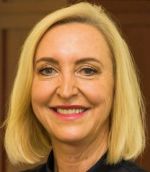
O'Halloran |
O'Halloran, Vicki (Susan) (b. 1964, Tasmania), administrator of the Northern Territory (2017-23).
Ohana, Amir (b. March 15, 1976, Beersheba, Israel), justice minister of Israel (2019-20). He has also been minister of public security (2020-22) and speaker of the Knesset (2022- ).
Ohashi, Chuichi (b. Dec. 8, 1893, Gifu prefecture, Japan - d. 1975), director of the Foreign Affairs Bureau of Manchukuo (1937-38). He was also Japanese ambassador to Cambodia (1959-61).
Ohier, Marie (Gustave) Hector (b. Aug. 5, 1814, Mondoubleau, Loir-et-Cher, France - d. Nov. 30, 1870), acting governor of Cochinchina (1868-69).
O'Higgins (Riquelme), Bernardo, originally (until 1801) Bernardo Riquelme (b. Aug. 20, 1778, Chillán, Viceroyalty of Peru [now in Chile] - d. Oct. 24, 1842, Lima, Peru), supreme director of Chile (1818-23); illegitimate son of Ambrosio O'Higgins, marqués de Osorno. He was early influenced by Francisco de Miranda and others involved in the struggle for Latin American independence. In 1806 he became a member of the town council of Chillán. In 1810 a national junta composed of local leaders replaced the Spanish governor of Chile, and by 1811 Chile had its own congress, of which O'Higgins was a member. When the viceroy of Peru sponsored an expedition to reestablish royal authority in 1814, O'Higgins quickly rose from the rank of colonel of militia to general in chief of the independentist forces. Soon he was also appointed governor of the province of Concepción. But the nationalist forces were defeated at Rancagua. Several thousand Chileans, including O'Higgins, crossed the Andes into Argentina in flight from the royalists. In 1817 he returned to Chile with the Argentine general José de San Martín and a combined army consisting of Argentine troops and Chilean exiles. They decisively defeated the Spanish at Chacabuco, and O'Higgins was elected interim supreme director. Independence was declared on the first anniversary of the battle, and he became the first leader of the new state. He created a working governmental organization, built a national navy, and mounted a major military expedition against Peru to fight the royalists. However, his reforms antagonized the church, the aristocracy, and the business community; growing Chilean nationalism also made his Argentinian connections a liability, and he was deposed and exiled in 1823. He remained in Peru for the rest of his life, refusing invitations to engage in counterrevolution.
O'Higgins, Kevin (Christopher), Irish Caoimhghín Ó hUigín (b. June 7, 1892, Stradbally, County Leix, Ireland - d. [assassinated] July 10, 1927, Booterstown, County Dublin, Ireland), deputy prime minister (1922-27) and minister for economic affairs (1922), home affairs (1922-24), and justice (1924-27) of Ireland; brother of Thomas F. O'Higgins; nephew of T.M. Healy.
O'Higgins, Thomas (Francis) (byname Tom O'Higgins), Irish Tomás Ó hUiginn (b. July 23, 1916, Cork, Ireland - d. Feb. 25, 2003, Dublin, Ireland), Irish politician; son of Thomas F. O'Higgins; nephew of Kevin O'Higgins. He was elected to the Dáil for Leix-Offaly in 1948 and served as minister for health in 1954-57. He was a presidential candidate in 1966 (coming a close second to Eamon de Valera) and 1973. He was chief justice of Ireland in 1974-85 and as such a member of the Presidential Commission in 1974 and 1976. In 1985-91 he was a judge of the European Court of Justice.
O'Higgins, Thomas F(rancis), Irish Tomás Ó hUigín (b. 1890? - d. Nov. 1, 1953, Dublin, Ireland), defense minister (1948-51) and industry and commerce minister (1951) of Ireland; nephew of T.M. Healy.
Ohin, Alex(andre John) (b. March 20, 1920, Aného, Togo), Togolese politician. He was minister of health and justice (1967) and permanent representative to the United Nations and ambassador to the United States (1967-71).
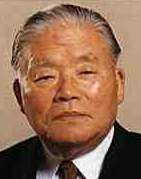
Ohira |
Ohira, Masayoshi (b. March 12, 1910, Toyohama, Kagawa prefecture, Shikoku, Japan - d. June 12, 1980, Tokyo, Japan), prime minister of Japan (1978-80). He pursued a career in the finance ministry and came under the eye of Hayato Ikeda, who, when he became finance minister, made Ohira his private secretary in 1949. In 1952 Ohira was first elected to the House of Representatives, holding his seat for 10 terms. Well known for his negotiating abilities, he became Prime Minister Ikeda's chief cabinet secretary in 1960 and was credited with suggesting the healing "low posture" policies toward the leftist opposition, which restored the nation to stability after the anti-American confusion of the late 1950s. As minister of foreign affairs (1962-64) in the second Ikeda cabinet, he prepared the way for restoration of relations with South Korea. In 1968-70 he served as minister of international trade and industry. In 1971 he became the leader of the Kochi-Kai faction of the Liberal-Democratic Party (LDP). As Kakuei Tanaka's foreign minister (1972-74), Ohira was the co-architect of normalization of relations with the People's Republic of China. He was finance minister in 1974-76 and secretary-general of the LDP in 1976-78. In 1978 he won the presidency of the LDP, defeating incumbent Takeo Fukuda, and as a result was elected prime minister. "I have no grand plans," he said, "I just want the Japanese people to live in happy families in green cities." His main aim was to create middle-sized garden cities as refuges from the noise, pollution, and overcrowding of the Tokyo-Osaka megalopolis. In May 1980, he decided to call new elections rather than resign following his party's surprise defeat in a no-confidence vote. He unexpectedly died 10 days before the election.
Ohlin, Bertil (Gotthard) (b. April 23, 1899, Klippan, Kristianstad [now in Skåne], Sweden - d. Aug. 3, 1979, Vålådalen, Jämtland, Sweden), Swedish politician. He was leader of the Liberal Party (1944-67), minister of commerce (1944-45), and president of the Nordic Council (1959, 1964). He shared the 1977 Nobel Memorial Prize in economic science.
Öhlschläger, Otto (Karl) von (b. May 16, 1831, Heiligenwalde, Prussia [now Swiety Gaj, Poland] - d. Jan. 14, 1904, Charlottenburg [now part of Berlin], Germany), justice minister of Germany (1889-91). He was also president of the Reich Court (1891-1903). He acquired the "von" in 1885.
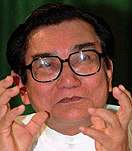
Ohn Gyaw | 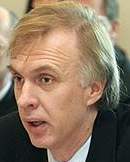
Ohryzko |
Ohn Gyaw (b. March 3, 1932, Nattalin, Burma [now Myanmar]), foreign minister of Myanmar (1991-98).
Ohouens, Barthélémy (b. Feb. 15, 1930, Porto-Novo, Dahomey [now Benin] - d. Feb. 14, 1996, Paris, France), interior minister (1967-68) and justice minister (1968-69, 1972-76) of Dahomey. He was also minister of industry and crafts (1976-80) and industry, mines, and energy (1980-84).
Ohrel, Alain (Robert Lucien Charles) (b. March 12, 1935, Le Havre, France - d. Oct. 11, 2010), high commissioner of French Polynesia (1983-85). He was also prefect of the French départements of Mayenne (1979-81), Charente (1981-83), Maine-et-Loire (1985-86), Somme (1986-89), Loire-Atlantique (1989-95), and Nord (1995-99).
Öhrn, (Bengt Ernst) Ingemar (b. Jan. 31, 1931, Växjö, Sweden - d. April 20, 2018, Stockholm, Sweden), governor of Västernorrland (1989-95).
Ohryzko, Volodymyr (Stanislavovych) (b. April 1, 1956, Kiev, Ukrainian S.S.R.), foreign minister of Ukraine (2007-09). He was ambassador to Austria in 1999-2004.
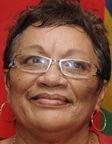
Ohsan-B. |
Ohsan-Bellepeau, Monique (Agnes), née Ohsan (b. 1942, Mauritius), vice president (2010-16) and acting president (2012, 2015) of Mauritius.
Oigawa, Kazuhiko (b. April 3, 1964), governor of Ibaraki (2017- ).
Oikonomou-Gouras, Pavlos, English Paul Economou-Gouras (b. Nov. 3, 1897, Korinthos, Greece - d. April 27, 1991), foreign minister of Greece (1963, 1966-67, 1967). He was also chargé d'affaires in the United States (1946-47), minister to Brazil (1950-52) and South Africa (1952-55), permanent representative to the United Nations (1960-61), and ambassador to Belgium (1962-63).
Oili, Said Omar (b. June 20, 1957), president of the General Council of Mayotte (2004-08). He became mayor of Dzaoudzi in 2014.
Oinas, Aleksander (b. Dec. 28, 1887, Tartu, Russia [now in Estonia] - d. March 3, 1942, Solikamsk, Molotov oblast, Russian S.F.S.R. [now in Perm kray, Russia]), interior minister (1919) and finance minister (1928-29) of Estonia. He was also auditor-general (1919, 1921-26) and minister of industry and commerce (1928-29) and transport (1931-32).
Oishi, Kengo (b. July 8, 1982), governor of Nagasaki (2022- ).

Oiterong |
Oiterong, Alfonso (Rebohong) (b. Oct. 9, 1924, Aimeliik, Babelthuap, Palau - d. Aug. 30, 1994, Manila, Philippines), vice president and minister of state (1981-85) and president (1985) of Palau.
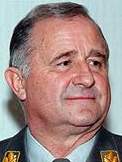
Ojdanic |
Ojdanic, Dragoljub (D.) (b. June 1, 1941, Ravni, near Uzice, Serbia - d. Sept. 6, 2020, Belgrade, Serbia), defense minister of Yugoslavia (2000). He was also chief of the general staff (1998-2000).
Ojeda (y Perpiñán), Emilio de (b. July 29, 1845, Zaragoza, Spain - d. June 4, 1911, Biarritz, France), acting foreign minister of Spain (1906). He was also ambassador to the Holy See (1906-11).
Ojeda Paullada, Pedro (b. Jan. 19, 1934, Mexico City, Mexico - d. Dec. 29, 2012), Mexican politician. He was attorney general (1971-76), minister of labour and social security (1976-81) and fisheries (1982-88), and president of the Institutional Revolutionary Party (1981-82).
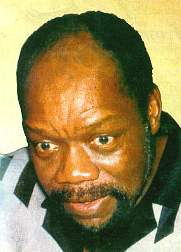
Ojukwu |
Ojukwu, Chukwuemeka Odumegwu (b. Nov. 4, 1933, Zungeru, northern Nigeria - d. Nov. 26, 2011, Reading, England), president of Biafra (1967-70). He joined the Nigerian army in 1957. He served with the Nigerian force in the UN Congo operations in 1961 and was named governor of the mainly Ibo-speaking Eastern Region of Nigeria after the coup of January 1966 by eastern officers that toppled the civilian administration. However, in July 1966 military officers from the northern and western reaches of the country staged another coup that killed Ibo general Johnson Aguiyi-Ironsi and installed Col. Yakubu Gowon as head of state. Ojukwu cooperated with the new regime until September 1966, when there was a general massacre of easterners living in the north. The ensuing mass of refugees crowded into the eastern region, severely taxing Ojukwu's ability to feed and house them. Great resentment then arose against the federal government, and calls for secession arose. Ojukwu and Gowon met briefly at Aburi, Ghana, in January 1967, to forestall the onset of violence, but the impasse remained. Feeling a threat of genocide against his people, Ojukwu reluctantly proclaimed the Eastern Region the independent Republic of Biafra in May 1967, thus precipitating the Biafran War, and for three years acted as head of state and supreme commander. Deaths in the war are estimated in the millions. When his forces were finally defeated in 1970, he fled to Ivory Coast. He returned to Nigeria under a general amnesty in 1982 and attempted to return to politics, joining the National Party of Nigeria, but his Senate bid was unsuccessful and the new military coup of December 1983 led to his imprisonment. He was released two years later but was banned from standing for president in the 1993 elections. In 1998 he founded his own party, the People's Democratic Congress. In 2003 and 2007 he was a minor presidential candidate, representing the All Progressives Grand Alliance. He also held the chieftaincy title of Ikemba of Nnewi.
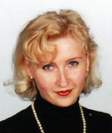
Ojuland | 
Oka |
Ojuland, Kristiina (b. Dec. 17, 1966, Kohtla-Järve, Estonian S.S.R.), foreign minister of Estonia (2002-05).
Oka, Ida Bagus (b. April 16, 1936, Denpasar, Bali, Netherlands East Indies [now Indonesia] - d. March 7, 2010, Denpasar), governor of Bali (1988-98). In 1998-99 he was state minister of population and chairman of the National Family Planning Board.
Okabe, Saturnin (b. Nov. 6, 1936, Makoua, French Equatorial Africa [now in Congo (Brazzaville)]), finance minister of Congo (1973-75). He was also minister of commerce (1975-77) and industry and tourism (1975-78).
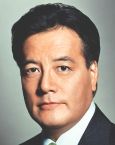
Katsuya Okada |
Okada, Katsuya (b. July 14, 1953, Yokkaichi, Mie prefecture, Japan), foreign minister of Japan (2009-10). He was also president of the Democratic Party (2004-05, 2014-16) and deputy prime minister (2012).
Okada, Keisuke (b. Jan. 20, 1868, Fukui, Japan - d. Oct. 17, 1952, Tokyo, Japan), prime minister of Japan (1934-36). He was also navy minister (1927-29, 1932-33). He was believed killed in an army coup attempt on Feb. 26, 1936, but when the rebellion was suppressed three days later, it emerged that his similar-looking brother-in-law had been killed instead.
Okala, Charles (René Guy) (b. Oct. 9, 1910, Bilomo, Cameroon - d. Sept. 16, 1973, Paris, France), foreign minister of Cameroon (1960-61). He was also minister of public works, transport, and mines (1958-59) and justice (1959-60).
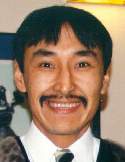
Okalik |
Okalik, Paul (b. May 26, 1964, Pangnirtung, Northwest Territories [now in Nunavut]), premier of Nunavut (1999-2008). In 1985, he began work for the Tungavik Federation of Nunavut (TFN) as a regional researcher and negotiator on the Nunavut Land Claim Agreement. He was quickly promoted to deputy chief negotiator and special assistant to the president of TFN in 1988. In this capacity, he was a vital member of the negotiating team for what became the largest land claim in Canadian history, signed in 1993. In 1993, he took on the task of acting director of Nunavut Tungavik Incorporated (NTI), where he ensured the provisions of the Nunavut Land Claim Agreement were being implemented by the Inuit. He also laid the groundwork for the creation of the Inuit Heritage Trust, the Nunavut Wildlife Management Board, the Nunavut Implementation Training Committee, and the Nunavut Social Development Council. On Feb. 15, 1999, the people of Iqaluit West elected him as their MLA in the first Nunavut Legislative Assembly. On March 5 the full caucus of Nunavut MLAs elected Okalik to be Nunavut's first premier. The new territory came into being on April 1. He lost his seat in the legislature in 2017.
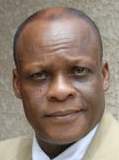
Okanla |
Okanla, Moussa (b. Sept. 2, 1950 - d. March 2, 2022), foreign minister of Benin (2007-08).
Okasha, Sarwat (b. Feb. 18, 1921, Cairo, Egypt - d. Feb. 27, 2012, Cairo), Egyptian politician. He was ambassador to Italy (1957-58), culture minister (1958-62, 1966-71), and deputy prime minister (1966-67).
Okazaki, Katsuo (b. July 10, 1897, Kanagawa prefecture, Japan - d. Oct. 10, 1965, Tokyo, Japan), foreign minister of Japan (1952-54). He was also chairman of the Shanghai Municipal Council (1942-43) and permanent representative to the United Nations (1961-63).
Ökçün, (Ahmet) Gündüz (b. 1936, Eskisehir, Turkey - d. Nov. 26, 1986), foreign minister of Turkey (1977, 1978-79).
Okday, Tevfik, until Jan. 1, 1935, Ahmed Tevfik Pasha (b. Feb. 11, 1845, Constantinople, Ottoman Empire [now Istanbul, Turkey] - d. Oct. 8, 1936, Istanbul), foreign minister (1895-1909) and grand vizier (1909, 1918-19, 1920-22) of the Ottoman Empire. He was also ambassador to Greece (1879-85), Germany (1885-95), and the United Kingdom (1909-14).
Okello, Basilio Olara (b. 1929 - d. Jan. 11, 1990, Khartoum, Sudan), chairman of the Military Council of Uganda (1985).

T. Okello |
Okello, Tito (Lutwa) (b. 1914, Namukora, northern Uganda - d. June 3, 1996, near Kampala, Uganda), president of Uganda (1985-86). He joined the King's African Rifles in 1940 and served as a corporal with the colonial forces in Somaliland during World War II. After the Somaliland campaign he underwent further military training in Kenya. Promoted to the rank of sergeant, he went to Burma at the close of the war. He finally returned to Uganda in 1955 and was given officer's rank when the country became independent seven years later. After independence he enjoyed rapid promotion and became army chief of staff in 1970. When Idi Amin seized power in 1971, Okello immediately went into exile in Tanzania and, with Milton Obote, played a major role in keeping alive the opposition to Amin's rule. In 1979 he led the Uganda National Liberation Army (UNLA), which, with the support of the Tanzanian military, succeeded in ending Amin's rule. He was made commander of the Ugandan armed forces. Though well past retirement age and no longer physically fit, Okello was retained in his post by Obote because of his past loyalty, his army seniority, and the fact of his being from the Acholi tribe, which made up at least half of the army's strength. Okello was one of the very last men whom Obote would have suggested of being disloyal to him. However, after the Acholi soldiers - dissatisfied over recent army promotions - decided to mutiny under the leadership of Brig. Basilio Okello (no relation), Tito Okello was invited to take over the country's leadership (July 1985). Six months later, he was overthrown by Yoweri Museveni, who had waged a 5-year bush war against Obote. Okello fled to southern Sudan with the remnants of his army. He returned home in 1993 under an amnesty granted by Museveni.

O'Kelly |
O'Kelly, Sean T(homas), Irish Seán Tomás Ó Ceallaigh (b. Aug. 25, 1882, Dublin, Ireland - d. Nov. 23, 1966, Dublin), president of Ireland (1945-59). He became associated with Arthur Griffith, principal founder of the Sinn Féin party, in the editing of various Irish journals in 1905 and was honorary secretary of Sinn Féin in 1908-10. He was also a formative influence in the Gaelic League, of which he was general secretary in 1915-20. From 1913 onward he was active in raising the Irish Volunteers and, during the Easter Rising of 1916, fought as a staff captain in the General Post Office, Dublin. On the collapse of the rising, he was imprisoned until the following year. In the election of 1918, Sinn Féin swept away the old Irish Nationalist Party, and O'Kelly was elected for College Green division (Mid-Dublin). Subsequently he was elected speaker (1919-21) of Dáil Éireann, the Irish assembly formed by 73 Sinn Féiners who had been elected to the British House of Commons. Until 1945, he represented at intervals various divisions of Dublin in the Dáil. In 1919 he was accredited by the Dáil to the World War I peace conference, Paris, as envoy of the Irish Republic, and later he acted in the same capacity at Rome and Washington. In the government of Eamon de Valera, he became vice president of the executive council (1932-45), minister of local government and public health (1932-39), and finance minister (1939-45). In June 1945 he was elected to a seven-year term as president, and in May 1952 he was reelected without opposition - a tribute of affection and respect from the Irish people. On the conclusion of his second term, he retired from public life.
Okemo, Chris(anthus Barnabas) (b. July 17, 1947), finance minister of Kenya (1999-2001). A Canadian-trained economist with extensive experience in the oil industry, he became energy minister in January 1998. He led negotiations with the IMF on energy sector reform and won funding to develop Kenya's geothermal and hydroelectric power output. In 1999 he swapped portfolios with Finance Minister Francis Masakhalia.
O'Kennedy, Michael, Irish Micheál Ó Cinnéide (b. Feb. 21, 1936, Nenagh, Ireland - d. April 15, 2022, Dublin, Ireland), foreign minister of Ireland (1977-79). He was also minister without portfolio (1972-73), minister of transport and power (1973), finance, public service, and economic planning and development (1979-80), agriculture and food (1987-91), and labour (1991-92), and European commissioner for personnel, administration, and the statistics office (1981-82).
Okeric, Sevkija (b. Feb. 25, 1956, Mjedenik village, near Gacko [now in Republika Srpska], Bosnia and Herzegovina), premier of Sarajevo canton (1996).
Oketa, Gazmend (Nuri) (b. Dec. 14, 1968, Durrës, Albania), defense minister of Albania (2008-09). He was also deputy prime minister (2007-08).
Okeyo, Michael G(eorge) (b. July 27, 1939, Kaswanga village [now in Rusinga West Location], Rusinga Island, Kenya - d. Sept. 25, 2011, Nairobi, Kenya), Kenyan diplomat. He was permanent representative to the United Nations (1988-91).
Okhunboboyev, Yoldosh (Uzbek), Russian Yuldash (Akhunbabayevich) Akhunbabayev (b. July 13 [July 1, O.S.], 1885, Dzhoy-Bazar, Fergana oblast, Russia [now in Uzbekistan] - d. Feb. 28, 1943, Tashkent, Uzbek S.S.R.), chairman of the Central Executive Committee (1925-38) and chairman of the Presidium of the Supreme Soviet (1938-43) of the Uzbek S.S.R.
Okilo, (Chief) Melford (Obiene) (b. Nov. 30, 1933, Amakalakala village [now in Bayelsa state], Nigeria - d. July 5, 2008, Yenagoa, Bayelsa), governor of Rivers (1979-83). He was also Nigerian minister of commerce and tourism (1993-95).
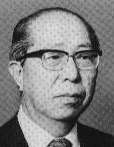
Okita |
Okita, Saburo (b. Nov. 3, 1914, Dalian, Manchuria, China - d. Feb. 9, 1993, Tokyo, Japan), foreign minister of Japan (1979-80). In 1937 he joined the Ministry of Posts as an engineer. He became chief of the research section of the Economic Stabilization Board (ESB) in 1947, and chief of the economic cooperation unit (1953), director general of the planning bureau (1957), and director general of the development bureau (1962) of the Economic Planning Agency (EPA), successor of the ESB. In these posts he was responsible for making various economic plans, including one in 1960 calling for doubling the Japanese people's income. Implemented by Prime Minister Hayato Ikeda's government (1960-64), it greatly accelerated Japan's economic growth. He was president of the official Overseas Economic Cooperation Fund (1973-77), president (1964-73) and chairman (1973-79) of the Japan Economic Research Centre, then minister of foreign affairs, and thereafter the government's representative responsible for external economic relations until December 1981. In 1977 he unsuccessfully ran for the House of Councillors for the New Liberal Club, a splinter group of the Liberal-Democratic Party. He received many awards at home and abroad, including Japan's Grand Cordon of the Order of the Rising Sun in 1986.
Okongwu, (Sonny P.) Chu (b. Sept. 23, 1934, Nnewi [now in Anambra state], Nigeria - d. Jan. 12, 2022, Enugu, Anambra, Nigeria), finance minister of Nigeria (1986-90). He was also minister of national planning (1985-86), cabinet affairs (1990), budget and planning (1990-92), special duties (1992), and petroleum and mineral resources (1992-93).
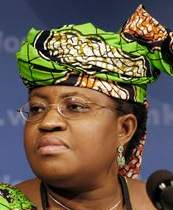
Okonjo-Iweala |
Okonjo-Iweala, Ngozi (b. June 13, 1954, Ogwashi-Uku [now in Delta state], Nigeria), finance minister (2003-06, 2011-15) and foreign minister (2006) of Nigeria and director-general of the World Trade Organization (2021- ). She took dual U.S. citizenship in 2019.
Okonski, Zbigniew (Wojciech) (b. Feb. 12, 1949, Gdansk, Poland), defense minister of Poland (1995).
Okorocha, (Owelle) Rochas Anayo (Ethelbert) (b. Sept. 22, 1962, Ogboko [now in Imo state], Nigeria), governor of Imo (2011-19).
Okotie-Eboh, Festus (Samuel), original surname Edah (b. July 18, 1912, Warri province [now Delta state], Nigeria - d. [killed] January 1966), finance minister of Nigeria (1957-66). He was also minister of labour and welfare (1955-57).
Okoto (Lolakombe), Jean-Charles (b. Feb. 2, 1955, Luluabourg, Belgian Congo [now Kananga, Congo (Kinshasa)]), foreign minister of Congo (Kinshasa) (1998-99) and governor of Kasaï Oriental (1999). In 2000 he became head of the state diamond mining company Miba, but was dismissed by Pres. Joseph Kabila in November 2002, two weeks after being identified by a UN panel as one of the figures plundering the natural resources of war-divided Congo. He was under investigation by Belgian authorities from January 2003, being suspected of having funnelled $80 million from the company via the Belgian bank Belgolaise and having used part of this sum to buy arms from Ukrainian and Czech arms companies in violation of a UN embargo, and Belgium issued an international arrest warrant in June 2004, after a Miba employee in Brussels was kidnapped, held for several hours, and beaten by assailants who demanded information on the investigation. He was acquitted in 2013. He has also been ambassador to Uganda (2009-15) and China (2015- ).
Okoumba d'Okwatsegue, Paul (b. Dec. 30, 1933, Franceville, Gabon - d. Oct. 26, 2020, Libreville, Gabon), foreign minister of Gabon (1974-76).
Okovic, Emir (b. Dec. 29, 1977), premier of Bosnian Podrinje-Gorazde (2015-19).
Okowa, Ifeanyi (Arthur) (b. July 8, 1959, Owa-Alero [now in Delta state], Nigeria), governor of Delta (2015- ).
Okoyomov, Nikolay (Nikolayevich) (b. Nov. 21 [Nov. 9, O.S.], 1897, Kurbusakhsky nasleg [village], Yakutsk oblast [now in Sakha republic], Russia - d. [executed] June 25, 1939, Yakutsk, Yakut A.S.S.R., Russian S.F.S.R. [now Sakha republic, Russia]), acting executive secretary of the Communist Party committee of the Yakut A.S.S.R. (1930).
Okpara, Michael (Iheonukara) (b. December 1920 - d. Dec. 17, 1984), premier of Eastern Region, Nigeria (1959-66). He was also commissioner for health and education of Biafra (1967-68).
Oksvik, Olav Berntsen (b. May 7, 1887, Stranda, Romsdals amt [now Møre og Romsdal fylke], Norway - d. Sept. 16, 1958, Oslo, Norway), governor of Møre og Romsdal (1952-58). He was also Norwegian agriculture minister (1947-48, acting for Kristian Fjeld).
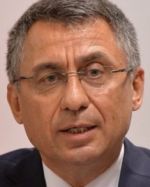
Oktay |
Oktay, Fuat (b. 1964, Yozgat, Turkey), vice president of Turkey (2018- ).
Okudzhava, Mikhail (Stepanovich) (b. 1887 - d. [executed] 1937), executive secretary of the Communist Party of the Georgian S.S.R. (1922). He was also deputy premier (1922?).
Okuk, Sir Iambakey (Palma) (b. 1944?, Pari, New Guinea [now in Simbu province, Papua New Guinea] - d. Nov. 14, 1986, Port Moresby, Papua New Guinea), deputy prime minister of Papua New Guinea (1980-82); knighted 1986. He was also minister of agriculture (1972-74), transport and civil aviation (1974-75, 1980-82), education (1975-76), and primary industry (1985-86) and leader of the opposition (1978-80, 1983-84).
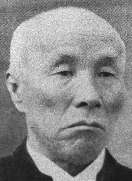
Okuma |
Okuma, Shigenobu, in full (from 1916) Koshaku (marquess) Shigenobu Okuma (b. March 11, 1838, Saga, Japan - d. Jan. 10, 1922, Tokyo, Japan), prime minister of Japan (1898, 1914-16). He and his friends in Saga were not able to persuade their lord to join the great southwestern fiefs in the Restoration movement of 1868, which reestablished the power of the emperor, and as a result they took second place to leaders from those fiefs in the new Meiji government. Okuma's ability and courage, however, made up for some of these disadvantages, and he played an important role in politics. He became chief secretary of the Finance Ministry and then finance minister and was principally responsible for the modernization of Japan's fiscal system. In 1881 he responded to an imperial request for recommendations by presenting a draft of a new constitution which his colleagues considered too radical, and as a result he was forced out of the government. But the emperor promised that a constitution would be readied by 1890, and it was in fact promulgated on Feb. 1, 1889. In 1882 Okuma formed the Rikken Kaishinto ("Progressive Party"), oriented toward British parliamentary concepts. Rejoining the government in 1888, he served as foreign minister several times (1888-89, 1896-97, 1898, 1915) and was also minister of agriculture and commerce (1897) and home affairs (1914-15, 1915). In 1898 he joined forces with Taisuke Itagaki, the founder of the Jiyuto ("Liberal Party"), to form the Kenseito ("Constitutional Party"). They formed a government with Okuma as prime minister, but it foundered within months over patronage disputes. He retired from politics in 1907, but was recalled as prime minister in 1914. During this term Japan entered World War I and experienced a great economic boom; Japanese demands led to a deterioration of relations with China. He resigned in 1916 and retired from politics because of ill health.
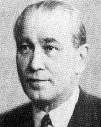
Okyar |
Okyar, Ali Fethi, until Jan. 1, 1935, Ali Fethi Bey (b. 1880 - d. May 7, 1943, Istanbul, Turkey), prime minister (1923, 1924-25), defense minister (1924-25), and justice minister (1939-41) of Turkey. He was also ambassador to Bulgaria (1913-17), France (1925-30), and the United Kingdom (1934-39) and speaker of the Grand National Assembly (1923-24).
Olachea Avilés, Agustín (b. Sept. 3, 1880, San Venancio ranch, Todos Santos, Baja California Sur, Mexico - d. April 13, 1973, La Paz, Baja California, Mexico), governor of Baja California Sur (1929-31, 1946-56) and Baja California (1931-32, 1932-35) and defense minister of Mexico (1958-64). He was also president of the Institutional Revolutionary Party (1956-58).
Olaechea (y Olaechea), Daniel Agustín (b. May 5, 1884, Lima, Peru - d. Nov. 15, 1956, Lima), justice and education minister of Peru (1933); son of Manuel Pablo Olaechea; brother of Manuel Augusto Olaechea; cousin of Pedro Carlos Olaechea. He was also president of the Central Reserve Bank (1952).
Olaechea (y Olaechea), (José) Manuel Augusto (b. March 19, 1880, Lima, Peru - d. May 3, 1946, Lima), finance minister of Peru (1930-31); son of Manuel Pablo Olaechea; cousin of Pedro Carlos Olaechea. He was also president of the Central Reserve Bank (1931-34).
Olaechea (Guerrero), Manuel Pablo (b. Jan. 25, 1843, Ica, Peru - d. Oct. 9, 1913, Lima, Peru), prime minister of Peru (1896-97). He was also mayor of Lima (1895), president of the Senate (1895-96), and minister of justice and education (1896-97).
Olaechea (y Olaechea), Pedro Carlos (de la Cruz) (b. May 3, 1865, Ica, Peru - d. May 3, 1907, Petrópolis, Rio de Janeiro, Brazil), justice and education minister of Peru (1900); nephew of Manuel Pablo Olaechea.
Ólafsson, Björn (b. Nov. 26, 1895, Akranes, Iceland - d. Oct. 11, 1974, Reykjavík, Iceland), finance minister of Iceland (1942-44, 1949-50). He was also minister of commerce (1942-44, 1949-53) and education (1950-53).
Oláh, István (b. Dec. 16, 1926, Nádudvar, Hungary - d. Dec. 15, 1985, Budapest, Hungary), defense minister of Hungary (1984-85). He was also chief of the General Staff (1973-84).
Olanescu, Constantin P(ana) (b. August 1844, Bucharest, Walachia [now in Romania] - d. May 14, 1928, Bucharest), interior minister of Romania (1900-01). He was also minister of public works (1891-95) and president of the Chamber of Deputies (1899-1900, 1911-12).
Olañeta (y Güemes), (José Joaquín) Casimiro (b. March 3, 1795, La Plata, Viceroyalty of La Plata [now Sucre, Bolivia] - d. Aug. 12, 1860, Sucre), foreign minister of Bolivia (1828, 1832-33, 1838-39, 1848) and the Peru-Bolivian Confederation (1837-38). He was also Bolivian minister to Peru (1830-31), Peru-Bolivian (1836-37) and Bolivian (1842-43) minister to Chile, Peru-Bolivian acting finance minister (1837), and president of the Bolivian Supreme Court of Justice (1858-60).
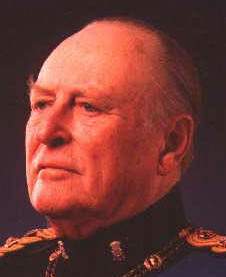
Olav V |
Olav V, original name Prince Alexander (Edward Christian Frederik) of Denmark (b. July 2, 1903, Appleton House, near Sandringham, Norfolk, England - d. Jan. 17, 1991, Oslo, Norway), king of Norway (1957-91). The unassuming and much-loved folkekongen ("people's king") was the son of Prince Carl of Denmark and Princess Maud, daughter of the British monarch Edward VII. When Norway gained its independence from Sweden in 1905, the Storting (parliament) offered the newly restored throne to Prince Carl, who took the historic Norwegian royal name Haakon VII and renamed his two-year-old son Crown Prince Olav. Olav studied at the Norwegian military academy and at Balliol College, Oxford (1924-26). An avid skier and sailor, he participated in international ski-jumping competitions and won a gold medal in yachting at the 1928 Olympic Games. In 1929 he married his cousin Princess Märtha of Sweden (b. March 28, 1901 - d. April 5, 1954); they had three children, Ragnhild (1930-2012), Astrid (b. 1932), and Harald (b. 1937). During World War II Olav worked with the Norwegian government-in-exile, and in 1944 he was named commander of the free Norwegian armed forces. Olav twice served as regent, between the liberation of Norway and the return of King Haakon VII in 1945 and again from 1955 when a badly broken leg left Haakon unable to carry out his duties. He formally ascended to the throne on his father's death in 1957. As a constitutional monarch, his duties were largely ceremonial. After he suffered a serious stroke in June 1990, he relinquished most of his duties to his son, who succeeded him as King Harald V.
Olavarría (Bravo), Arturo (b. April 2, 1900, Curicó, Chile - d. Jan. 12, 1977, Santiago, Chile), interior minister (1940-41, 1954-55) and foreign minister (1952-53) of Chile. He was also agriculture minister (1938-40).
Olaya Herrera, Enrique (Alfredo) (b. Nov. 2, 1881, Guateque, Boyacá, Colombia - d. Feb. 18, 1937, Rome, Italy), foreign minister (1910-11, 1921, 1935) and president (1930-34) of Colombia. He was also minister to Argentina and Chile (1911-14) and the United States (1922-30), minister of agriculture and commerce (1921), and ambassador to the Vatican (1935-37).
Olcay, Osman (Esim) (b. Jan. 17, 1924, Istanbul, Turkey - d. Sept. 12, 2010, Ankara, Turkey), foreign minister of Turkey (1971). He was also ambassador to Finland (1964-66) and India and Ceylon (1966-68) and permanent representative to the UN (1972-75) and NATO (1978-88).
Oldenburg, Sergey (Fyodorovich) (b. Sept. 26 [Sept. 14, O.S.], 1863, Byankino, Zabaikalsky oblast [now in Zabaikalsky kray], Russia - d. Feb. 28, 1934, Leningrad, Russian S.F.S.R. [now St. Petersburg, Russia]), education minister of Russia (1917). Known as an Orientalist, he was also permanent secretary of the Academy of Sciences (1904-29).
Oldenburgsky, Prints Georgy (Petrovich), German Peter Friedrich Georg Prinz von Oldenburg (b. May 9, 1784, Oldenburg, Duchy of Oldenburg [now in Niedersachsen, Germany] - d. Dec. 27 [Dec. 15, O.S.], 1812, Tver, Russia), Russian official; son of Peter I; brother-in-law of Aleksandr I. He was governor-general of Novgorod, Tver, and Yaroslavl (1809-12) and head of the Administration of Water and Land Communications (1809-11) and the Chief Administration of Communications (1811-12).
Oldevig, Hans Fredrik (b. Oct. 12, 1793, Karlskrona, Blekinge, Sweden - d. June 26, 1866, near Karlstad, Värmland, Sweden), governor of Värmland (1841-64).
Oldham, W(illiam) K(avanaugh) (b. May 29, 1865, Richmond, Ky. - d. May 6, 1938, Pettus, Ark.), acting governor of Arkansas (1913); brother-in-law of James P. Eagle.
Olea Muñoz, Xavier (b. Dec. 1, 1923, Iguala, Guerrero, Mexico - d. Dec. 1, 2015, Taxco, Guerrero), provisional governor of Guerrero (1975). He was also Mexican ambassador to France (1976-77) and Japan and South Korea (1977-79).
O'Leary, Desmond Vincent, byname Des O'Leary (d. April 2, 1996, Malvern, Vic.), administrator of Norfolk Island (1976-79).
O'Leary, Sir Humphrey Francis (b. Feb. 12, 1886, Redwoodtown, N.Z. - d. Oct. 16, 1953, Auckland, N.Z.), acting governor-general of New Zealand (1952); knighted 1947. He was chief justice (1946-53).
O'Leary (Urdapilleta), Juan Emiliano (b. June 12, 1879, Asunción, Paraguay - d. Oct. 31, 1969, Asunción), acting foreign minister of Paraguay (1948-49). He was chargé d'affaires (1925-29) and minister (1936) to Spain, minister to Italy (1936-37, 1947-48), and ambassador to the Vatican (1951-54).
O'Leary, Michael, Irish Micheál Ó Laoire (b. May 8, 1936, Cork, Ireland - d. May 11, 2006, France), Irish politician. He was elected to the Dáil in 1965 for Dublin North-Central. He is best remembered as minister for labour in 1973-77, when European law on equal pay and rights for workers had to be transposed into Irish law. In 1979 he successfully stood for the European Parliament. He succeeded Frank Cluskey as Labour Party leader when the latter lost his seat in the 1981 general election. He subsequently became Tánaiste (deputy prime minister) and minister for energy in the 1981-82 Fine Gael-Labour coalition that was formed under Garret FitzGerald. After that government collapsed, he defected to Fine Gael. He remained in parliament until 1987. He was appointed a district court judge in 1997, retiring in May 2006, just days before his death.
O'Leary, Terence Daniel (b. Aug. 18, 1928, London, England - d. July 11, 2006, Wellington, New Zealand), governor of Pitcairn Island (1984-87). He was also British high commissioner to Sierra Leone (1981-84) and New Zealand and Western Samoa (1984-87).
Olechowski, Andrzej (Marian) (b. Sept. 9, 1947, Kraków, Poland), finance minister (1992) and foreign minister (1993-95) of Poland. He was a presidential candidate in 2000, winning 17% of the vote, and in 2010, winning 1.4%.
Olechowski, Tadeusz (b. Jan. 10, 1926, Wilno, Poland [now Vilnius, Lithuania] - d. Jan. 4, 2001, Warsaw, Poland), foreign minister of Poland (1988-89). He was also ambassador to France (1969-72, 1976-80), Egypt and The Sudan (1974-76), and West Germany (1983-86) and minister of foreign trade (1972-74).
Oleka, Kazimieras (b. March 4, 1880, Zardeliai, Russia [now in Lithuania] - d. Dec. 13, 1971, Munich, West Germany), interior minister of Lithuania (1922-23).
Olekas, Juozas (b. Oct. 30, 1955, Krasnoyarsk kray, Russian S.F.S.R.), defense minister of Lithuania (2006-08, 2012-16). He was also minister of health (1990-92, 2003-04).

Oleksy | 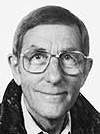
Olesen |
Oleksy, Józef (b. June 22, 1946, Nowy Sacz, Poland - d. Jan. 9, 2015, Warsaw, Poland), prime minister (1995-96) and interior minister and a deputy prime minister (2004) of Poland. He was also speaker of the Sejm (1993-95, 2004-05). He stepped down from that post in 2005 after a Warsaw court ruled that he had worked for the country's Communist-era secret services and illegally concealed the collaboration; he denied the allegations.
Olenin, Aleksey (Nikolayevich) (b. Dec. 9 [Nov. 28, O.S.], 1763, Moscow, Russia - d. April 29 [April 17, O.S.], 1843, St. Petersburg, Russia), Russian secretary of state (1814-27); great-grandson of Knyaz Semyon Meshchersky.
Olesen, Kjeld (Støttrup) (b. July 8, 1932, Copenhagen, Denmark), defense minister (1971-73) and foreign minister (1979-82) of Denmark. He was also minister of public works (1977-78).
Olesen, Søren (b. Sept. 27, 1891, Giver sogn [now part of Vesthimmerland municipality], Denmark - d. Aug. 29, 1973, Hirtshals, Denmark), interior minister of Denmark (1957-60).
Olesiak, Kazimierz (Piotr) (b. Feb. 22, 1937, Huta Drewniana, Poland), Polish politician. He was a deputy premier and minister of agriculture, forestry, and food economy (1988-89).
Olesk, Lui (b. Oct. 12 [Sept. 30, O.S.], 1876, Kavastu parish, Tartu county, Russia [now in Estonia] - d. Feb. 19, 1932, Tartu, Estonia), justice minister (1919) and interior minister (1920-21) of Estonia. He was also minister of labour and welfare (1920-21).
Olewale, Sir (Niwia Batebate) Ebia (b. 1940, Tureture village, Papua [now in Papua New Guinea] - d. Jan. 13, 2009), foreign minister of Papua New Guinea (1977-80); knighted 1983. He was also minister of education (1972-74), commerce (1974-75), justice (1975-77), and provincial affairs (1975-76) and deputy prime minister (1978-80).
Olewale, Tatie (Kapio) (d. Oct. 17, 2004, Port Moresby, Papua New Guinea), premier of Western province, Papua New Guinea (1977-83).
Olewinski, Marian (b. Sept. 15, 1912, Warsaw, Poland - d. Nov. 15, 1982), a deputy premier of Poland (1969-70). He was also minister of construction and building materials industry (1960-69).
Olguín (Buche) de Baltra, (Luz) Adriana (Margarita) (b. Nov. 18, 1915, Valparaíso, Chile - d. Dec. 24, 2015, Viña del Mar, Chile), justice minister of Chile (1952). She was the first woman in a Chilean cabinet. She was married to Alberto Baltra (1912-1981), minister of economy and commerce (1947-50).
Olhaye, Roble (b. April 24, 1944 - d. July 21/22, 2015, U.S.), Djiboutian diplomat. He was permanent representative to the United Nations (1988-2015) and ambassador to the United States (1988-2015) and Canada (1989-2015).
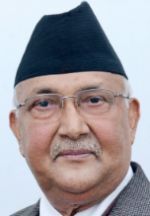
Oli |
Oli, K(hadga) P(rasad) Sharma (b. Feb. 22, 1952, Iwa, Terhathum district, Nepal), home minister (1994-95), foreign minister (2006-07, 2021), prime minister (2015-16, 2018-21), and defense minister (2020-21) of Nepal.
Oliart Saussol, Alberto (Carlos) (b. July 29, 1928, Mérida, Spain - d. Feb. 13, 2021, Madrid, Spain), defense minister of Spain (1981-82). He was also minister of industry and energy (1977-78) and health and social security (1980-81).
Olikong, Santos, minister of state of Palau (1990-92). He was also speaker of the House of Delegates (1985-88) and ambassador to Japan (2003-06).
Olinda, Pedro de Araújo Lima, visconde e marquês de (b. Dec. 22, 1793, Sirinhaém, Pernambuco, Brazil - d. June 7, 1870, Rio de Janeiro, Brazil), principal minister (1823, 1827-28, 1837), foreign minister (1832, 1848-49), regent (1837-40), and chairman of the Council of Ministers (1848-49, 1857-58, 1862-64, 1865-66) of Brazil. He was also president of the Chamber of Deputies (1827-28, 1829-30, 1835-37) and minister of justice (1832) and interior (1857-58, 1862-64, 1865-66). He was made viscount in 1841 and marquess in 1854.
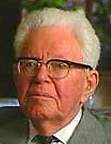
Oliphant |
Oliphant, Sir Mark, original name Marcus Laurence Elwin Oliphant (b. Oct. 8, 1901, Adelaide, S.Aus. - d. July 14, 2000, Canberra, A.C.T.), governor of South Australia (1971-76). He studied at Adelaide University and under British physicist Ernest Rutherford at the Cavendish Laboratory at Britain's Cambridge University. His work with the Cavendish team included the successful splitting of the atom in 1932. Oliphant later led a team of British scientists who traveled to the United States in 1943 to assist with the Los Alamos National Laboratory's top-secret Manhattan Project working to develop the atomic bomb. But profoundly shocked at the use by the United States of nuclear weapons against Japan in 1945, he turned his focus to promote peaceful uses of nuclear power. His part in the development of the bomb haunted Oliphant throughout life. He once described himself as a "war criminal" for his role in the development of the atomic bomb. Ahead of World War II, Oliphant also worked on research into radar, successfully developing the cavity magnetron, which allowed radars to be built small enough to fit in aircraft. Descendants of that device now form the basis of microwave ovens. Oliphant returned to Australia in 1950, continuing his research in the capital, Canberra. He was a founder of the Australian Academy of Science and founding director of the Research School of Physical Sciences at the Australian National University (ANU). He retired from the ANU in 1967. In recognition of his achievements, he was appointed governor of South Australia. He was knighted in 1959.
Olisemeka, Ignatius C(hukwuemeka) (b. March 12, 1932, Kaduna, Nigeria), foreign minister of Nigeria (1998-99). He was also high commissioner to Kenya (1970-73) and Canada (1991-93) and ambassador to Spain and the Vatican (1976-81), the United States (1984-87), and Israel (1993-98).
Oliva (Neyra), Carlos (Augusto) (b. Dec. 16, 1964), economy and finance minister of Peru (2018-19).
Oliva (Ojeda), Moisés (d. 1926, Italy), member of the Provisional Government Junta of Ecuador (1925).
Olivares Santana, Enrique (b. Aug. 22, 1920, San Luis de Letras, Aguascalientes, Mexico - d. March 16, 2004, Mexico City, Mexico), governor of Aguascalientes (1962-68) and interior minister of Mexico (1979-82). He was also ambassador to Cuba (1985-87) and the Vatican (1992-94).
Oliveira, Antonio Correia de (b. 1833? - d. Oct. 30, 1921, Porto Alegre, Brazil), acting president of Rio Grande do Sul (1880).
Oliveira, Antonio de Almeida e (b. Oct. 17, 1843, Codó, Maranhão, Brazil - d. Oct. 27, 1887, Rio de Janeiro, Brazil), president of Santa Catarina (1879-80). He was also Brazilian navy minister (1883-84).
Oliveira, António Dias de (b. July 20, 1804, Valongo, Portugal - d. April 1, 1863), prime minister and interior and justice minister of Portugal (1837).
Oliveira, Antônio Pereira da Silva e (b. July 17, 1848, Vila Nova do Príncipe, São Paulo [now Lapa, Paraná], Brazil - d. Nov. 18, 1938, Florianópolis, Santa Catarina, Brazil), acting governor of Santa Catarina (1902-05, 1905-06, 1924-25). He was also mayor of Florianópolis (1891, 1894, 1902-11).
Oliveira, Armando de Salles (b. Dec. 24, 1887, São Paulo, Brazil - d. May 17, 1945, São Paulo), federal interventor/governor of São Paulo (1933-36). He was a declared candidate for the 1937 presidential elections before they were cancelled by Pres. Getúlio Vargas.
Oliveira, Bento da França Pinto de (b. 1833, Porto, Portugal - d. 1889, Aveiro, Portugal), governor of Portuguese Timor (1882-83).
Oliveira, Brazilio Augusto Machado de (b. Sept. 4, 1848, São Paulo, Brazil - d. March 5, 1919, São Paulo), president of Paraná (1884-85); son of José Joaquim Machado de Oliveira.
Oliveira, Cândido Batista de (b. Feb. 15, 1801, Porto Alegre, Brazil - d. May 26, 1865, on board the Pélouse, near São Salvador da Bahia [now Salvador], Brazil), foreign and finance minister of Brazil (1839). He was also minister to Sardinia (1835-37), Russia (1839-43), and Austria (1843-44), navy minister (1847-48), and president of the Bank of Brazil (1859-66).
Oliveira, Cândido Luís Maria de (b. July 6, 1845, Ouro Preto, Minas Gerais, Brazil - d. Aug. 23, 1919, Rio de Janeiro, Brazil), war minister of Brazil (1884-85). He was also justice minister (1889).
Oliveira, César Cals de, Filho (b. Dec. 30, 1926, Fortaleza, Ceará, Brazil - d. March 10, 1991, Fortaleza), governor of Ceará (1971-75). He was also Brazilian minister of mines and energy (1979-85).
Oliveira, Dante Martins de (b. Feb. 6, 1952, Cuiabá, Mato Grosso, Brazil - d. July 6, 2006, Cuiabá), governor of Mato Grosso (1995-2002). He was also mayor of Cuiabá (1986, 1987-89, 1993-94) and Brazilian minister of agrarian reform and development (1986-87).
Oliveira, Domingos Augusto Alves da Costa e (b. July 31, 1873, Lisbon, Portugal - d. Dec. 24, 1957, Lisbon), prime minister of Portugal (1930-32). He was also interim justice minister (1930).
Oliveira, Edison Freitas de (b. April 27, 1930, Aparecida do Taboado, Mato Grosso [now in Mato Grosso do Sul], Brazil - d. July 13, 2021, Cuiabá, Mato Grosso), acting governor of Mato Grosso (1990-91).
Oliveira, Eunício (Lopes de) (b. Sept. 30, 1952, Lavras de Mangabeira, Ceará, Brazil), Brazilian politician. He was minister of communications (2004-05) and president of the Senate (2017-19).
Oliveira, Francisco Gurgel de (b. Sept. 7, 1848, Caraúbas, Rio Grande do Norte, Brazil - d. Jan. 7, 1910, São Sebastião, Mossoró municipality, Rio Grande do Norte), acting president of Rio Grande do Norte (1891). He was also mayor of Mossoró (1877-80).
Oliveira, Francisco José de (b. Dec. 4, 1808, Desterro [now Florianópolis], Santa Catarina, Brazil - d. June 26, 1877, Desterro), acting president of Santa Catarina (1863-64, 1865, 1868).
Oliveira, Ignacio Dias de, acting president of Sergipe (1835, 1836).
Oliveira, Inocêncio Gomes de (b. Oct. 21, 1938, Serra Talhada, Pernambuco, Brazil), Brazilian politician. He was president of the Chamber of Deputies (1993-95).
Oliveira, João Alfredo Correia de (b. Dec. 12, 1835, Ilha de Itamaracá, Pernambuco, Brazil - d. March 6, 1919, Rio de Janeiro, Brazil), chairman of the Council of Ministers and finance minister of Brazil (1888-89). He was also president of Pará (1869-70) and São Paulo (1885-86) and minister of interior (1870-75) and agriculture (1870-71).
Oliveira, João Chrysostomo de (d. 1879), acting president of Ceará (1847, 1848).
Oliveira, João Cleofas de (b. Sept. 22, 1899, Vitória de Santo Antão, Pernambuco, Brazil - d. Sept. 17, 1987, Rio de Janeiro, Brazil), Brazilian politician. He was minister of agriculture (1951-54) and president of the Senate (1970-71).
Oliveira, Joaquim Bento de, Junior (b. Dec. 10, 1846, Conceição do Serro, Minas Gerais, Brazil - d. March 6, 1878, São Paulo, Brazil), president of Paraná (1877-78).
Oliveira, Joaquim José de, president of Espírito Santo (1835-36) and Mato Grosso (1848-49).
Oliveira, Jorge Teixeira de (b. June 1, 1921, General Câmara, Rio Grande do Sul, Brazil - d. Jan. 28, 1987, Rio de Janeiro, Brazil), governor of Rondônia (1979-85). He was also mayor of Manaus (1975-79).
Oliveira, José Aparecido de (b. Feb. 17, 1929, Mato Dentro, Minas Gerais, Brazil - d. Oct. 19, 2007, Belo Horizonte, Minas Gerais), governor of Distrito Federal (1985-88). He was also Brazilian minister of culture (1985, 1988-90) and ambassador to Portugal (1993-95).
Oliveira, José Joaquim Machado de (b. July 8, 1790, São Paulo, Brazil - d. Aug. 16, 1867, São Paulo), president of Pará (1832-33), Alagoas (1834-35), Santa Catarina (1837), and Espírito Santo (1840-41).
Oliveira, José Melo de (b. Sept. 6, 1946, Manaus, Amazonas, Brazil), governor of Amazonas (2014-17).
Oliveira, José Nicolau Nunes de (b. Oct. 1, 1890, Lousã, Portugal - d. Jan. 9, 1954), governor-general of Mozambique (1938-40).
Oliveira, José Simeão de (b. Sept. 26, 1838, Porto Alegre, Rio Grande do Sul, Brazil - d. June 20, 1893, New York), governor of Pernambuco (1889-90) and Brazilian minister of war (1891-92).
Oliveira, Nísio Batista de (b. July 7, 1889, Juiz de Fora, Minas Gerais, Brazil - d. Dec. 9, 1969, Belo Horizonte, Minas Gerais), federal interventor in Minas Gerais (1945-46).
Oliveira, Paulo Sérgio Nogueira de (b. Aug. 28, 1958, Iguatu, Ceará, Brazil), defense minister of Brazil (2022-23). He was also commander of the army (2021-22).
Oliveira, Pedro Ferreira de (b. Feb. 19, 1801, Rio de Janeiro, Brazil - d. March 10, 1860), president of Rio Grande do Sul (1850-51).
Oliveira, Pedro Francisco Corrêa de (b. June 24, 1860, Recife, Pernambuco, Brazil - d. April 15, 1933, Recife), president of Paraíba (1888-89).
Oliveira (y Sayán), Pedro M(áximo) (b. Oct. 15, 1882, Lima, Peru - d. June 18, 1958, Buenos Aires, Argentina), foreign minister of Peru (1930). He was also minister to Colombia (1920-22) and Bolivia (1925-26) and minister of justice, education, and worship (1926-29) and education (1939-43).
Oliveira, Ruy Barbosa de (b. Nov. 5, 1849, Salvador, Bahia, Brazil - d. March 1, 1923, Petrópolis, Rio de Janeiro, Brazil), finance minister (1889-91) and acting justice minister (1889) of Brazil. He was a presidential candidate in 1910 and 1919.
Oliveira, Victor de, president of Pernambuco (1851-52).
Oliver, Frank, original name Francis Robert Bowsfield (b. September 1853, Peel county, Canada West [now Ontario] - d. March 31, 1933, Ottawa, Ont.), interior minister of Canada (1905-11). He was also superintendent-general of Indian affairs (1905-11).
Oliver, Joe (b. May 20, 1940, Montreal, Que.), finance minister of Canada (2014-15). He was also minister of natural resources (2011-14).
Oliver, Reed B(ermin) (b. June 24, 1958), governor of Pohnpei (2020- ).
Olivera Vega, Fernando (b. July 26, 1958, Lima, Peru), foreign minister of Peru (2005). He was also a presidential candidate (2001), justice minister (2001-02), and ambassador to Spain (2002-05).

Oliverio |
Oliverio, Mario (b. Jan. 4, 1953, San Giovanni in Fiore, Calabria, Italy), president of Calabria (2014-20).
Olivier, Marcel (Achille) (b. Nov. 29, 1879, Nîmes, Gard, France - d. 1945), lieutenant governor of Haut-Sénégal-Niger/French Sudan (1919-21) and governor-general of Madagascar (1924-29).
Olivieri (Sinelli), Aníbal (Osvaldo) (b. July 16, 1903, Ramos Mejía, Buenos Aires province, Argentina - d. Oct. 24, 1984, San Miguel, Buenos Aires province), Argentine admiral. He was navy minister (1951-55) and permanent representative to the United Nations (1955-56).
Olivo, Rosario (b. April 18, 1940, Catanzaro, Calabria, Italy), president of Calabria (1987-91). He was also mayor of Catanzaro (2006-11).
Olldashi, Sokol (Vangjel) (b. Dec. 17, 1972, Durrës, Albania - d. [car accident] Nov. 20, 2013, Kërraba hills, Albania), interior minister of Albania (2005-07). In 2007-13 he was minister of public works and transport.
Ollennu, (Raphael) Nii Amaa (b. May 21, 1906, Labadi, Accra, Gold Coast [now in Ghana] - d. Dec. 19, 1986), acting president of Ghana (1970). He was speaker of the National Assembly (1969-72). His daughter Amerley Ollennu Awua-Asamoa was ambassador to Denmark (2017-21).
Ollila, Esko (Juhani) (b. July 14, 1940, Rovaniemi, Finland - Dec. 1, 2018, Porvoo, Finland), finance minister of Finland (1986-87). He was also minister of trade and industry (1982-83).
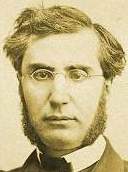
Ollivier |
Ollivier, (Olivier) Émile (b. July 2, 1825, Marseille, France - d. Aug. 20, 1913, Saint-Gervais-les-Bains, Haute-Savoie, France), French statesman. At the outbreak of the revolution of 1848 he was appointed commissioner-general (and later prefect) of the Bouches-du-Rhône département, but his idealistic policy there alienated both radicals and conservatives and in July he was demoted to the less important prefecture of Haute-Marne. After Louis-Napoléon became president of the republic in December, Ollivier was dismissed in January 1849 and held no public office until 1857, when he was elected to the Legislative Assembly. There he became one of the republican minority known as "the Five." But when Emperor Napoléon III made liberal concessions in November 1860, Ollivier offered his support to the empire if Napoléon would establish representative government. He gradually separated from his old associates and then worked with the duc de Morny for a "liberal empire" that would incorporate elements of parliamentary government. On Jan. 2, 1870, Napoléon appointed him minister of justice and in effect prime minister, although that office was not nominally recognized by the constitution. He drew up a new constitution (approved in a plebiscite in May by more than 80% of the voters) and set up numerous commissions to reform such areas as labour, education, and law. He seemed to have transformed the Second Empire from despotism to constitutional monarchy without any violence. But his work was soon ruined by the outbreak of the Franco-German War. He had no desire for war, but lost control of events; considering Prussian chancellor Otto von Bismarck's Ems telegram an intolerable insult to France, he declared war on Prussia on July 19. The French military reverses obliged him to resign on August 9, and thereafter he took no major part in politics.
Ollongren, Kajsa, byname of Karin Hildur Ollongren (b. May 28, 1967, Leiden, Netherlands), interior minister (2017-19, 2020-22), a deputy prime minister (2017-19, 2020-22), and defense minister (2022- ) of the Netherlands. She was a minister without portfolio in 2019-20.
Olmedo (y Maruri), José Joaquín (Eufrasio) de (b. March 20, 1780, Guayaquil, New Granada [now in Ecuador] - d. Feb. 19, 1847, Guayaquil), political chief (1820) and president of the Governing Junta (1820-22) of Guayaquil and president of the Provisional Government of Ecuador (1845). He was also known as a poet.
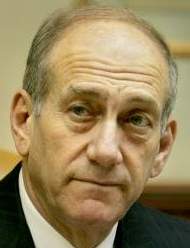
Olmert |
Olmert, Ehud (b. Sept. 30, 1945, Nahalat Jabotinsky [now part of Binyamina], Palestine [now in Israel]), prime minister of Israel (2006-09). He entered parliament for the right-wing Likud party in 1973 and entered the cabinet in 1988, as minister for minority affairs. In 1990 he became health minister. He opposed both the 1978 Camp David accords with Egypt and the 1993 Oslo agreement with the Palestinians. In 1993 he was elected mayor of Jerusalem, defeating longtime incumbent Teddy Kollek. During his ten-year stint in the municipality, Jerusalem declined to become one of the poorest cities in Israel, and also witnessed a mass exodus of secular, liberal residents. In 2003 he returned to parliament and was appointed minister of trade and industry and deputy prime minister. In that year he admitted his realization that the goal of a Greater Israel to which he had dedicated his whole career could lead only to the Jews playing second fiddle in an Arab-dominated united Palestine: "The most painful moment of my life was the day I discovered that simple arithmetic was more powerful than the history and geography of Israel." In August 2005 he was appointed finance minister, and in November he joined Prime Minister Ariel Sharon in breaking away from Likud and forming the new Kadima party. In January 2006 he was appointed acting prime minister when Sharon was hospitalized by a massive stroke. He also took over the Kadima leadership and led it to victory in the March elections. In April he officially became prime minister as Sharon was considered permanently incapacitated. He formed his own government in May, a coalition with the Labour, Pensioners, and religious Shas parties. After the July-August Lebanon war, his approval ratings plummeted. In October he expanded his coalition to include the hawkish nationalist Yisrael Beiteinu party. In 2008 he resigned as Kadima leader; his successor, Tzipi Livni, failed to form a government, so he remained in office until after new elections were held in 2009. In 2012 he was given a suspended one-year jail sentence relating to favours he granted a former colleague while he was trade and industry minister. In 2014 he was convicted of accepting bribes while mayor of Jerusalem, and sentenced to six years in prison (on appeal reduced to 18 months in 2015). In 2015 he was also found guilty of accepting illegal payments from a U.S. businessman and sentenced to 8 months in prison. He served a total of 16 months in 2016-17.
Olney, Richard (b. Sept. 15, 1835, Oxford, Mass. - d. April 8, 1917, Boston, Mass.), U.S. attorney general (1893-95) and secretary of state (1895-97).
Olofin-Moyin, Kayode (b. May 13, 1950, Ilawe-Ekiti [now in Ekiti state], Nigeria), governor of Ogun (1998-99).
Olózaga (Almandoz), Salustiano (de) (b. June 8, 1805, Oyón, Álava province, Spain - d. Sept. 26, 1873, Enghien-les-Bains, Seine-et-Oise [now in Val-d'Oise], France), prime minister and foreign minister of Spain (1843). He was also ambassador to France (1840-43, 1854-55, 1869, 1873).
Olpinski, Karol (Mieczyslaw) (b. Oct. 22, 1876, Lemberg, Austria [now in Lviv, Ukraine] - d. April 16, 1944, Swider [now part of Otwock], near Warsaw, Poland), governor of Tarnopolskie województwo (1921-23).
Olry, Jean Baptiste Léon (b. Feb. 8, 1832, Nancy, Meurthe-et-Moselle, France - d. Nov. 10, 1890, Paris, France), governor of New Caledonia (1879-80).
Olsen, Ann-Kristin (b. March 29, 1945, Stockholm, Sweden), governor of Svalbard (1995-98) and Vest-Agder (1998-2015).
Olsen, Hroar (b. April 30, 1859, Trondhjem [now Trondheim], Norway - d. Aug. 26, 1941), governor of Søndre Bergenhus (1898-1918), Akershus (1919-30), and Kristiania/Oslo (1924-30).
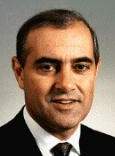
J. Olsen |
Olsen, John (Wayne) (b. June 7, 1945, Kadina, S.Aus.), premier of South Australia (1996-2001).
Olsen, Olaj Johan (b. April 6, 1851, Bergen, Norway - d. June 16, 1920), minister of finance (1888 [acting], 1888-89, 1889), justice and police (1888), and interior (1897-98) of Norway and governor of Nordre Bergenhus (1889-1902).
Olsen, Per Arne (Lodding) (b. Feb. 21, 1961, Tønsberg, Vestfold [now in Vestfold og Telemark], Norway - d. Nov. 18, 2022), governor of Vestfold (2016-19), Telemark (2019), and Vestfold og Telemark (2020-22). He was also mayor of Tønsberg (2003-09).
Olsen Beck (de Figueres), (Rita) Karen (b. Jan. 31, 1933, Copenhagen, Denmark), Costa Rican diplomat; wife of José Figueres Ferrer. She was ambassador to Israel (1982-83).
Olsen Nielsen, Kaare (b. 1908, Iquique, Chile - d. May 2, 1985), foreign minister of Chile (1955-56).

Olson |
Olson, Bud, byname of Horace Andrew Olson (b. Oct. 6, 1925, Iddesleigh, Alberta - d. Feb. 14, 2002, Medicine Hat, Alberta), lieutenant governor of Alberta (1996-2000). After entering federal politics as a Social Credit MP for Medicine Hat in 1957, he was defeated in 1958 during John Diefenbaker's Tory sweep but was reelected in 1962, 1963, 1965, and finally, as a Liberal, in 1968. For his 1967 switch to the Liberals he was rewarded with a cabinet post and, in 1977, a Senate appointment. Once Alberta's most powerful Liberal, Olson had the unenviable task of selling Prime Minister Pierre Trudeau's national energy program in the West. Olson lunched often with the prime minister at 24 Sussex Drive and served as minister of agriculture (1968-72), minister of economic and regional development (1980-84), and chairman of the cabinet committee on economic development (1980-83). He was regarded as one of Trudeau's most powerful ministers and served as government leader in the Senate from 1982 to 1984. As lieutenant governor, he caused a stir when he said he might refuse to sign special warrants for spending that hadn't been scrutinized by the legislature. He was openly critical of the Conservative government's practice of approving controversial spending behind the closed doors of cabinet. But his tenure is best remembered for the war of words that erupted with former lieutenant governor Gordon Towers over his decision to cast off a 90-year-old tradition and move the New Year's levee out of Edmonton to Medicine Hat, closer to his home. Olson was upset that Towers, a longtime political rival, had stuck his nose into his office after promising not to do so.
Olsson, Bengt (Karl) (b. Feb. 25, 1918, Stora Kopparberg socken, Kopparberg [now Dalarna], Sweden - d. May 23, 1990), governor of Kopparberg (1974-80).
Olsson, Elvy (Eleonora), née Södergren (b. Jan. 10, 1923, Hammar, Örebro, Sweden - d. Feb. 23, 2022), governor of Örebro (1980-89). She was also Swedish minister of housing (1976-78).
Olsson, Karl Johan (b. May 6, 1893, Östmark, Värmland, Sweden - d. July 9, 1980, Örebro, Sweden), governor of Örebro (1947-60).
Olssøn, (Christian) Wilhelm (Engel Bredal) (b. April 4, 1844, Horten, Jarlsberg og Laurvigs amt [now in Vestfold og Telemark fylke], Norway - d. Nov. 3, 1915, Hovinsholm [now part of Ringsaker municipality], Hedemarkens amt [now in Innlandet fylke], Norway), defense minister of Norway (1893-94, 1895-98, 1905-07). He was also commanding general (1910-12).
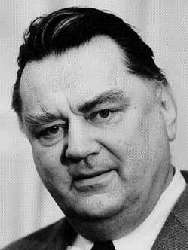
J. Olszewski |
Olszewski, Jan (Ferdynand) (b. Aug. 20, 1930, Warsaw, Poland - d. Feb. 7, 2019, Warsaw), prime minister of Poland (1991-92). He was a presidential candidate in 1995; in 2000 he withdrew before the election.
Olszewski, Kajetan Boleslaw (b. Aug. 7 or 20, 1858, Kolno, Poland - d. Aug. 20, 1944, Warsaw, Poland), governor of Wolynskie województwo (1924-25).
Olszewski, Kazimierz (b. Aug. 9, 1917, Trzesniów, Austria [now in Poland] - d. Aug. 29, 2014), a deputy premier of Poland (1972-77). He was also minister of foreign trade (1971-72, 1974) and shipping (1973-74) and ambassador to the Soviet Union (1978-82).
Olszowski, Stefan (b. Aug. 28, 1931, Torun, Poland), foreign minister of Poland (1971-76, 1982-85). He was also ambassador to East Germany (1980).
Olt, Károly (b. May 14, 1904, Zagreb, Austria-Hungary [now in Croatia] - d. March 22, 1985, Budapest, Hungary), finance minister of Hungary (1950-56). He was also minister of public welfare (1947-49) and president of the National Assembly (1949).
Olteanu, Constantin (b. July 5, 1928, Branesti, Dâmbovita county, Romania - d. April 30/May 1, 2018), defense minister of Romania (1980-85).

Olter |
Olter, Bailey (b. March 27, 1932, Mwoakilloa, Pohnpei, Micronesia [now in Federated States of Micronesia] - d. Feb. 16, 1999, Kolonia, Pohnpei), president of the Federated States of Micronesia (1991-97). His career included serving as Pohnpei state treasurer, chairman of external affairs in the FSM first and second congresses, and Micronesian advisor to the U.S. delegation to the UN Trusteeship Council. He was the second vice president of the FSM (1983-87) before being elected president in 1991 and again in 1995. He was incapacitated after suffering a stroke in 1996.
Oltványi, Imre, until 1936 Imre Ártinger (b. Feb. 20, 1893, Bácsalmás, Hungary - d. Jan. 13, 1963, Budapest, Hungary), finance minister of Hungary (1945). He was also governor of the Hungarian National Bank (1945, 1945-46) and minister to Switzerland (1947-48).
Olubolade, Omoniyi Caleb (b. Nov. 30, 1954, Ipoti [now in Ekiti state], Nigeria), administrator of Bayelsa (1997-98). He was also Nigerian minister of special duties (2010-11) and police affairs (2011-14).
Olubuse I, Adelekan (d. 1910), ruler of Ile Ife (1894-1910).
Olubuse II, Okunade Adele Sijuwade (b. Jan. 1, 1930, Ile-Ife [now in Osun state], Nigeria - d. July 28, 2015, London, England), ruler of Ile Ife (1980-2015); grandson of Adelekan Olubuse I.
Olukoya, (Sunday) Abiodun (b. April 6, 1949, Ijebu-Ode [now in Ogun state], Nigeria - d. Aug. 24, 2021), governor of Ondo (1990-92).
Olumilua, Dele, byname of Bamidele Isola Olumilua (b. April 13, 1940, Ikere-Ekiti [now in Ekiti state], Nigeria - d. June 4, 2020, Ikere-Ekiti), governor of Ondo (1992-93).
Olunloyo, Victor (Omololu Sowemimo) (b. April 14, 1935, Ibadan, Nigeria), governor of Oyo (1983).
Olurin, Adetunji (Idowu) (b. Dec. 3, 1944, Ilaro [now in Ogun state], Nigeria - d. Aug. 21, 2021, Ikeja, Lagos state, Nigeria), governor of Oyo (1985-88) and administrator of Ekiti (2006-07).
Olvera Ruiz, Francisco (b. June 15, 1956, Pachuca, Hidalgo, Mexico), governor of Hidalgo (2011-16). He was also mayor of Pachuca (2009-10).
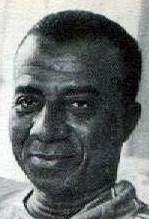
Olympio |
Olympio, Sylvanus (Epiphanio) (b. Sept. 6, 1902, Lomé, Togo - d. Jan. 13, 1963, Lomé), president of Togo (1961-63). A leader of the Committee of Togolese Unity, formed early in World War II as a cultural organization, he was elected president of the first representative territorial assembly in 1946 and soon came into conflict with the French authorities. His party lost its majority at the 1951 elections and boycotted those of 1955. One of his early concerns was to unite the Ewe people, who were divided between British and French Togoland, but his hopes were dashed in 1956, when the British part voted to join the Gold Coast to become independent Ghana in 1957. When Togo became autonomous in 1956, his rival Nicolas Grunitzky became prime minister. In UN-supervised elections in 1958, however, Olympio's party won a clear majority, and he became prime minister, leading Togo to complete independence in 1960. He also held the finance and justice portfolios. Relations with Ghana were bad, Olympio denouncing his former friend Kwame Nkrumah, president of Ghana, as a "black imperialist." His sympathies were with the West, but he disclaimed any interest in the "cold war." Togo became a virtual one-party state, and he was elected president as the sole candidate in 1961, under a constitution granting extensive presidential powers. The regime's authoritarianism was widely resented, especially by Western-educated Togolese; northern leaders felt left out of the predominantly southern government, and the more radical members of Juvento (once the party's youth wing) wanted him to be less dependent on French aid. Juvento leaders were arrested and other opposition figures left the country. He was assassinated in the first successful military coup in postwar sub-Saharan Africa.
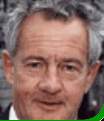
Desmond O'Malley |
O'Malley, Desmond (Joseph), Irish Deasún Ó Máille (b. Feb. 2, 1939, Limerick, County Limerick, Ireland - d. July 21, 2021, Dublin, Ireland), Irish politician. When his uncle, Minister for Education Donogh O'Malley, died, he decided to contest the by-election despite the intention of his uncle's widow to seek the nomination. He won the seat and entered the Dáil (parliament) in 1968 as a member of Fianna Fáil. His ability was quickly recognized, and in less than a year he became parliamentary secretary to Prime Minister John Lynch. In 1970-73 he was minister for justice, where his tough, abrasive style won him grudging admiration. Later (1977-81, 1982, 1989-92) he became what was described as the most capable minister for industry and commerce that Ireland had known. Considered by many members of Fianna Fáil to be the natural heir to Lynch, he suffered a turn for the worse in his career when Charles Haughey took over the party leadership in 1979. O'Malley subsequently was involved in three unsuccessful attempts to remove Haughey. His final break with the party came when he criticized his leader's interpretation of the report of the New Ireland Forum. O'Malley was expelled in May 1985 for "conduct unbecoming," a phrase that was to become famous in Irish politics. In December 1985 he launched the Progressive Democrats party, and the instantaneous reaction from the public was one of strong support. Much of this was a vote for his proven ability as a politician. His right-wing economic views were especially appealing to the business sector, but support also came from all across the spectrum for a party that was seen to be attempting to break the mold of "civil-war" politics that prevailed within Ireland's two traditional parties, Fine Gael and Fianna Fáil. In 1989 he led his party into a coalition government with Fianna Fáil. He retired as party leader in 1993.
O'Malley, Donogh (Brendan), Irish Donnchadh Ó Máille (b. Jan. 18, 1921, Limerick, Ireland - d. March 10, 1968, Limerick), Irish politician. He was minister of health (1965-66) and education (1966-68).
O'Malley, King (b. July 4, 1858, Stamford Farm, Canada East [now Quebec], or Valley Falls, Kan. - d. Dec. 20, 1953, Albert Park, Melbourne, Vic.), home affairs minister of Australia (1910-13, 1915-16).
O'Malley, Martin (Joseph) (b. Jan. 18, 1963, Washington, D.C.), mayor of Baltimore (1999-2007) and governor of Maryland (2007-15). In 2015 he became a candidate for the 2016 Democratic presidential nomination, dropping out after the February 2016 Iowa caucus.
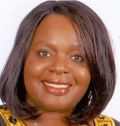
R. Omamo |
Omamo, Raychelle (Awuor) (b. July 18, 1962, Nairobi, Kenya), defense minister (2013-20) and foreign minister (2020-22) of Kenya; daughter of William Odongo Omamo. She was also ambassador to France and the Vatican (2004-08).
Omamo, William Odongo (b. March 28, 1928, North Sakwa Location, Siaya district, Kenya - d. April 27, 2010), Kenyan politician. He was minister of natural resources and environment (1982-83) and agriculture (1983-87).

Omanidze | 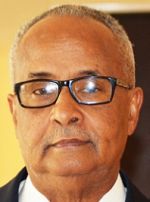
A.H. Omar |
Omanidze, Murman (Melitonovich) (b. Nov. 7, 1938, Tbilisi, Georgian S.S.R. - d. Nov. 20, 2020, St. Petersburg, Russia), foreign minister (1991-92) and acting prime minister (1991) of Georgia.
Omar, Abdisalan Hadliye, Somali Cabdisalaan Hadliye Cumar (b. 1954?), foreign minister of Somalia (2015-17). He was also governor of the central bank (2013).
Omar, Haji Farah Ali (b. 1907, Obbia [now Hobyo], Somalia - d. ...), finance minister (1967-69) and foreign minister (1969) of Somalia. He was also minister of economic affairs (1956-59) and industry and commerce (1959-60) and permanent representative to the United Nations (1960-61).
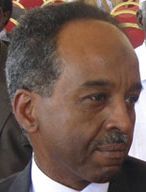
M.A. Omar
(Somalia) | 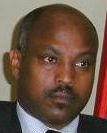
M.A. Omar
(Somaliland) |
Omar, Mohamed Abdullahi, foreign minister of Somalia (2009, 2010-11). He was also minister of water and minerals (August-December 2009) and culture and higher education (2009-10).
Omar, Mohamed Abdullahi, foreign minister of Somaliland (2010-13). He was also commerce minister (2013-14).

M.M. Omar |
Omar (Akhund), Mullah Mohammad (b. 1960, Chah-i-Himmat village, Kandahar province [or 1959, Nodeh village, near Kandahar, or 1962, Uruzgan province], Afghanistan - d. April 23, 2013, Karachi, Pakistan?), Afghan leader. He joined the jihad against the Soviet occupation in the 1980s. He lost an eye fighting the Soviets as a deputy chief commander in the Harakat-i Inqilab-i Islami party of Mohammad Nabi Mohammadi. In 1994, disgusted by the power struggles among the various Afghan militias, he took up arms again and founded the Taliban movement. On April 3, 1996, about 1,000 so-called Muslim clergymen chose Omar as Amir al-Mo´menin (Supreme Leader of the Muslims). They branded Pres. Burhanuddin Rabbani, a former mujahideen leader, as a criminal. The Taliban moved mercilessly against their opponents and established a very strict, religiously toned dictatorship in the rapidly expanding territory under their rule. They promulgated a traditionalist version of Islam, strongly influenced by the conservative world of the Pashtun village. In September 1996 they took over Kabul. Omar, who remained in Kandahar and never made public appearances and refused to speak to journalists directly, was considered to be one of the most mysterious figures in Afghan politics. There was hardly a government anywhere as obscure as that of the Taliban, who came to rule 95% of Afghanistan. The Taliban's commandments and proscriptions, which the people were obliged to take note of daily over Radio Sharia (formerly Radio Kabul) or in the Friday sermon at their local mosque, included that women had to be veiled from head to foot, men had to wear traditional clothing and be bearded, alcoholic drinks were forbidden, as were dancing, music, soccer, television, possession of portrait photos (considered "idol worship"), and much more. The Taliban regime was overthrown in 2001, but Omar eluded capture and his whereabouts remained unknown. In July 2015 the Afghan government said he died in 2013 in Pakistan; his death was then confirmed by the Taliban. A report in 2019, however, said he never hid in Pakistan and lived until his death in Zabul province, Afghanistan.
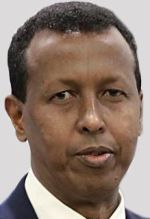
Y.G. Omar |
Omar, Yusuf Garaad (b. June 26, 1960, Mogadishu, Somalia), foreign minister of Somalia (2017-18). He was also permanent representative to the United Nations (2016-17).
Omar bin Haji Serudi, Haji, Bruneian diplomat. He was permanent representative to the United Nations (1984-86).
Omarov, Magomed (Khasiyevich) (b. 1902, Doykar-Evla, Terek oblast, Russia - d. ...), executive secretary of the Communist Party committee (1932) and chairman of the Executive Committee (1932-34) of Chechen autonomous oblast.
Omazic, Anto (b. Sept. 6, 1963, Podhum, near Livno [now in Federation of Bosnia and Herzegovina]), acting governor (2000-01) and premier (2001-02) of West Bosnia.
Omehia, Celestine (Ngozichim) (b. Sept. 15, 1959, Ubima [now in Rivers state], Nigeria), governor of Rivers (2007).
Omelchenko, Oleksandr (Oleksandrovych) (b. Aug. 9, 1938, Zozov [Zoziv], Vinnitsa [Vinnytsya] oblast, Ukrainian S.S.R.), Ukrainian politician. He was mayor of Kiev (1996-2006) and a minor presidential candidate (2004).
Ömeroglu, Hamdi (b. 1914, Rize, Ottoman Empire [now in Turkey] - d. 2004), interior minister of Turkey (1971). He was also governor of Isparta (1960-62) and Samsun (1962-66).
Omeruah, Samson (Emeka) (b. Aug. 14, 1943, Zaria [now in Kaduna state], Nigeria - d. Dec. 4, 2006, London, England), governor of Anambra (1985-87).
Omholt, Anton (Thorkildsen) (b. Nov. 7, 1861, Ytre Sandsvær [now part of Kongsberg], Norway - d. Jan. 28, 1925), governor of Nordland (1908-13) and finance minister of Norway (1913-19).
Omi, Koji (b. Dec. 14, 1932, Numata, Gunma, Japan - d. April 14, 2022, Tokyo, Japan), finance minister of Japan (2006-07). He was also director-general of the Economic Planning Agency (1997-98).
Omirou, Giannakis (L.) (b. Sept. 18, 1951, Kato Paphos, Cyprus), defense minister of Cyprus (1998-99). He was also president of the Movement of Social Democrats (2001-15) and president of the House of Representatives (2011-16).
Omu, Paul (Ufuoma) (b. July 1, 1940, Igbide [now in Delta state], Nigeria), governor of South-Eastern/Cross River (1975-78).
Omura, Hideaki, Omura also spelled Ohmura (b. March 9, 1960), governor of Aichi (2011- ).
Omuraliyev, Esengul (Kasymovich) (b. Sept. 14, 1950, Ton, Kirgiz S.S.R. - d. Feb. 25, 2018, Kyrgyzstan), Kyrgyz politician. He was minister of industry (1991-92) and foreign trade and industry (1998-2000), a deputy prime minister (1992-94, 1999-2000), ambassador to Belarus (1997-98), Ukraine (2001-05), and Kazakhstan (2012-16), and head of Issyk-Kul oblast (2005-06).
On Sein, Burmese diplomat. He was ambassador to Pakistan (1956-59), the United States (1959-65), and Canada (1959-63) and permanent representative to the United Nations (1962).
Ona, Francis (b. 1953? - d. July 24, 2005, Guava village, near Panguna, Bougainville, Papua New Guinea), Bougainville rebel leader. In 1989 he was instrumental in launching Bougainville's long secessionist conflict which dragged on through the 1990s and cost the lives of more than 10,000 people. The spark for the conflict was landowner anger over the giant Bougainville Copper Ltd. mine at Panguna and the environmental damage it was causing. In 1990 he proclaimed the island independent from Papua New Guinea, styling himself president of the "Republic of Mekamui." Under a 2001 peace agreement, Bougainvilleans were promised a referendum on independence in 10 to 15 years' time. Opposing the 2005 election of a new autonomous government, Ona, who had in 2004 crowned himself as king with the name Francis Dominic Dateransy Domanaa, emerged from 16 years of seclusion in his mountain retreat at Panguna in the lead-up to the election only to repeat his claim that Bougainville was already independent; he did not promote outright disruption of the election, however.

Ona Ondo |
Ona Ondo, Daniel (b. July 10, 1945, Oyem, Gabon), prime minister of Gabon (2014-16). He was minister of culture, arts, and popular education (1999-2002), youth and sports (1999-2002), national education (2002-04), and posts and telecommunications (2004-06).
Onaga, Takeshi (b. Oct. 2, 1950, Naha, Okinawa - d. Aug. 8, 2018, Urasoe, Okinawa), governor of Okinawa (2014-18).
Önal, Sedat (b. Aug. 11, 1963, Kayseri, Turkey), Turkish diplomat. He has been ambassador to Jordan (2012-16) and permanent representative to the United Nations (2023- ).
Onana Awana, Charles (b. 1923, Ngoulémakong, French Cameroons [now in Cameroon] - d. Jan. 10, 1999, Paris, France), finance minister of Cameroon (1960-64, 1972-75). He was also minister of planning and territorial development (1970-72).
Oñate Laborde, Santiago (b. May 24, 1949, Mexico City, Mexico), Mexican politician. He was minister of labour and social security (1994-95), president of the Institutional Revolutionary Party (1995-96), and ambassador to the United Kingdom (1997-2001) and the Netherlands (2001-03).
Oncieu de la Bâtie, Auguste Marie Édouard d' (b. Nov. 25, 1833, Chambéry, Savoie, France - d. April 18, 1904, Alassio, Italy), governor of the French Settlements in Oceania (1877-78).
Ondar, Chimit-Dorzhu (Bayirovich) (b. April 28, 1932, Kyzyl-Tayga, Tannu Tuva [now Tuva republic, Russia]), chairman of the Council of Ministers (1977-84), chairman of the Presidium of the Supreme Soviet (1984-90), and chairman of the Supreme Soviet (1990-91) of the Tuva A.S.S.R.
Ondekane (Inkale), Jean-Pierre (b. Jan. 1, 1962, Coquilhatville [now Mbandaka], Congo [Léopoldville (now Kinshasa)]), defense minister of Congo (Kinshasa) (2003-05).
Ondo, Bonjean François (b. 1932 - d. March 3/4, 2019, Libreville, Gabon), Gabonese politician; son of Jean-François Ondo. He was permanent representative to the United Nations (1965-66), ambassador to West Germany (1968-70), and minister of transport and civil aviation (1970-73) and agriculture (1973-75).
Ondo, Jean-François (b. 1916, Mékaga, near Oyem, Gabon - d. 1972, Oyem), foreign minister of Gabon (1963). He was also minister of national education, youth, and sports (1958-60), defense (1960-61), cultural and social affairs, youth, and sports (1961-62), justice (1962-63), and labour (1963).
Ondoga, Michael (D.Y.) (d. [killed] between March 7 and 9, 1974), foreign minister of Uganda (1973-74). He was also ambassador to the Soviet Union (1971-73) and East Germany (1973).
Ondongo, Gilbert (b. 1960, Owando, Congo [Brazzaville]), finance and budget minister of Congo (Brazzaville) (2009-16). He has also been minister of labour, employment, and social security (2005-09) and economy and industrial development (2016- ).
Ondrejcsák, Róbert (b. May 23, 1977, Rimavská Sobota, Slovakia), acting defense minister of Slovakia (2011). He has also been ambassador to the United Kingdom (2022- ).
O'Neal, Edward A(sbury) (b. Sept. 20, 1818, Madison county, Ala. - d. Nov. 7, 1890, Florence, Ala.), governor of Alabama (1882-86).
O'Neal, Emmet (b. Sept. 23, 1853, Florence, Ala. - d. Sept. 7, 1922, Birmingham, Ala.), governor of Alabama (1911-15); son of Edward A. O'Neal.

R. O'Neal | 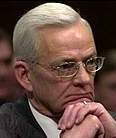
Paul O'Neill |
O'Neal, Ralph (Telford) (b. Dec. 15, 1933, Virgin Gorda island, British Virgin Islands - d. Nov. 11, 2019, Tortola island, British Virgin Islands), chief minister (1995-2003) and premier (2007-11) of the British Virgin Islands. He previously served as deputy chief minister (1988-94, 1995).
O'Neil, William A(ndrew) (b. June 6, 1927, Ottawa, Ont.), secretary-general of the International Maritime Organization (1990-2003).
O'Neill, Paul (Henry) (b. Dec. 4, 1935, St. Louis, Mo. - d. April 18, 2020, Pittsburgh, Pa.), U.S. treasury secretary (2001-02).
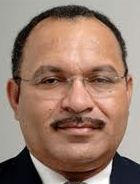
Peter O'Neill |
O'Neill, Peter (Charles Paire) (b. Feb. 13, 1965, Pangia district, Southern Highlands province, Papua New Guinea), prime minister of Papua New Guinea (2011-19). He was also minister of labour and industrial relations (2002-03), public service (2003-04, 2007-11), finance (2010-11, 2012), and works and transport (2011). In 2004-07 he was leader of the opposition.

T.P. O'Neill |
O'Neill, Thomas P(hilip), Jr., byname Tip O'Neill (b. Dec. 19, 1912, Cambridge, Mass. - d. Jan. 5, 1994, Boston, Mass.), U.S. politician. While attending college, he ran for Cambridge city council and suffered his only electoral defeat. In 1936 he was elected as a Democrat to the Massachusetts House of Representatives. He became a strong advocate of New Deal liberalism, which he never abandoned. He was speaker of the state House in 1949-52. In 1952 he was elected to the U.S. House, succeeding John F. Kennedy who gave up his seat to run for the Senate. He was reelected every two years, never losing touch with his constituency, until he retired in 1987. In 1967 he was the first member of the House leadership to oppose Pres. Lyndon Johnson vocally on the Vietnam War. He became House majority whip (1971-73), majority leader (1973-77), and then the longest-serving speaker of the House (1977-87). He was an old-fashioned, behind-the-scenes politician who insisted that "all politics is local," a shrewd manipulator who marshaled support in the back rooms of the Capitol rather than on the House floor. He earned the respect of his younger colleagues for approving legislative reform, including a new ethics code and a limit on outside income. Even a Republican-sponsored advertisement featuring an O'Neill look-alike who was meant to symbolize a bloated, freewheeling Congress not only failed to detract from his popularity but rather enhanced it. He received the Presidential Medal of Freedom in 1991.
O'Neill, William A(tchison) (b. Aug. 11, 1930, Hartford, Conn. - d. Nov. 24, 2007, East Hampton, Conn.), governor of Connecticut (1980-91). He lost campaigns for state representative in 1960 and 1962, but won in 1966. He managed Ella T. Grasso's victorious gubernatorial campaign in 1974 and became House majority leader. With her endorsement, he succeeded the legendary John M. Bailey as Democratic state chairman after Bailey's death in 1975. In 1976, Grasso backed Peter G. Kelly to lead the state organization, but O'Neill refused to back down and established his own power base. In 1978, Grasso did not endorse a running mate, but O'Neill was nominated and became lieutenant governor, then succeeded on Dec. 31, 1980, when cancer forced Grasso's resignation. O'Neill, a conservative Democrat, was underestimated by Republicans and, even more so, by a younger generation of liberal Democrats. He was elected to a full four-year term in 1982 and reelected in 1986, each time thwarting liberals in his own party and then handily defeating Republican opponents. Over 10 years and 10 days as the state's 84th governor (the longest-serving in nearly 200 years), he assembled a bright, ideologically diverse administration that poured money into education, health care, and the state's long-neglected infrastructure. He rode the crest of the state's booming economy, presiding over an era of expansion. Over the decade, state spending jumped by 140%. But as the economy again began to sour, the state budget deficit soared. He did not run for reelection in 1990. It may have been his resistance to the income tax, which his successor Lowell Weicker persuaded the legislature to pass eight months after O'Neill left office, that compounded the state's fiscal problems and led to his political downfall.

Baron O'Neill |
O'Neill of the Maine, Terence (Marne) O'Neill, Baron (b. Sept. 10, 1914, County Antrim, Ireland - d. June 12, 1990, Lymington, Hampshire, England), prime minister of Northern Ireland (1963-69). He entered the Northern Ireland parliament (1946) as a member of the Protestant Unionist Party. He held portfolios as secretary of health (1948-53) and minister of home affairs (1956). In 1956 he was named finance minister and deputy premier, and when Lord Brookeborough stepped down as prime minister in 1963 after some 20 years in office, O'Neill succeeded him. As prime minister he recognized the need for change in Ulster's discriminatory political system and sought to institute moderate civil reforms. In 1965 he invited Irish Prime Minister Sean Lemass to Belfast to hold the first formal meetings between the two leaders. O'Neill, however, was unable to reconcile the Unionist Party to his modest reforms or to convince Roman Catholics of his sincerity. Internal party divisions, combined with Roman Catholic mistrust and a rising tide of Protestant extremism, drove him out of office soon after he won the 1969 general election. By the end of the year, British troops had been called in to combat the escalating violence, and O'Neill retired to southern England. He was made a life peer in 1970.
Oneya, Dominic (Obukadata) (b. May 26, 1948, Agbarho [now in Delta state], Nigeria - d. Aug. 5, 2021, Effurun, Delta), administrator of Kano (1996-98) and Benue (1998-99).
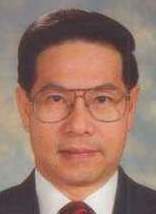
Ong T.C. |
Ong Teng Cheong, Pinyin Wang Dingchang (b. Jan. 22, 1936, Singapore - d. Feb. 8, 2002, Singapore), president of Singapore (1993-99). He was a member of parliament and served the government as minister of communications, minister of culture, minister of labour, and deputy prime minister before he resigned to become the city state's first elected president in 1993. He chose not to run for a second six-year term after his party, the ruling People's Action Party, announced it would not back him because of concerns about his health. When he said that he had faced a "long list" of problems in trying to fulfill his constitutional role, he sparked a lengthy debate on the role of the president in the local media, culminating in Senior Minister Lee Kuan Yew declaring that the position was mostly ceremonial.
Ong Yoke Lin, Tun (Omar) (b. July 23, 1917, Kuala Lumpur, Selangor, Federated Malay States [now in Malaysia] - d. July 1, 2010, Kuala Lumpur), Malaysian politician. He was minister of posts and telecommunications (1955-56), transport (1956-57), labour and social welfare (1957-59), and health and social welfare (1959-62), permanent representative to the United Nations (1962-64), ambassador to the United States (1962-72) and Brazil (1967-72), high commissioner to Canada (1967-68), minister without portfolio (1964-73), and president of the Dewan Negara (1973-80). He was awarded the title Tun in 1979.
Ongagou(-Datchou), Alphonse (b. 1935, Aboua, Middle Congo [now Congo (Brazzaville)]), Congo (Brazzaville) official. He was prefect of Sangha (1963-64), permanent representative to the United Nations (1968-69), and ambassador to West Germany (1975-78) and Belgium (1978-80).

Onganía |
Onganía (Carballo), Juan Carlos (b. March 17, 1914, Buenos Aires, Argentina - d. June 8, 1995, Buenos Aires), president of Argentina (1966-70). He graduated from the National Military College as a second lieutenant in 1934, was promoted to brigadier general in 1959, and in 1962 briefly served as commander of the Cavalry Corps before leading a revolt against an opposing army faction and becoming army commander in chief. He helped put down an attempted coup and secured the way for elections that made Arturo Illia, a liberal democrat, president. But like many others he became disillusioned with a democratic government that was ineffective in the face of resurgent Peronism and economic troubles, and he resigned his commission in 1965 to take power himself. Following his installation by the military in 1966, he moved speedily to buttress his power with repressive measures extraordinary even in Argentina's dictatorship-studded history. Congress was dissolved, all political parties were declared illegal, Supreme Court judges were replaced, trade unions were curbed, and the press and the arts came under government censorship. Universities were deprived of their autonomy, and he authorized riot police to storm the University of Buenos Aires and drive out faculty members as well as students in what became known as the "night of the long truncheons." In 1969 rioting by workers and students erupted in Córdoba, and those riots eventually led to Onganía's ouster in 1970, when a three-man ruling military junta unseated him. In February 1995 he was put under house arrest for two weeks after he accused the government of corruption. He planned to run as candidate of a small rightist party in the May 1995 presidential election, but withdrew.
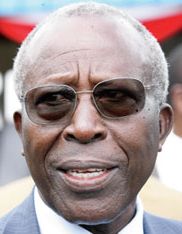
Ongeri |
Ongeri, Sam(son Kegeo) (b. Feb. 23, 1938), foreign minister of Kenya (2012-13). He was also minister of education (2008-12).
Onglo, William (Gogl) (b. Dec. 21, 1969), defense minister of Papua New Guinea (2019). He was also minister of energy (2020), higher education, science, research, and technology (acting, 2020), and police (2020-22).
Oni, J(oseph) O(layeni) (b. July 5, 1938, Lagos, Nigeria), administrator of Niger state, Nigeria (1978-79).
Oni, Olusegun (Adebayo), byname Segun Oni (b. Sept. 5, 1954, Ifaki-Ekiti [now in Ekiti state], Nigeria), governor of Ekiti (2007-09, 2009-10).
Onís (y Mercklein), Mauricio Carlos de (baptized Sept. 17, 1790, Dresden, Saxony [Germany] - d. Nov. 26, 1861, Madrid, Spain), foreign minister of Spain (1840). He was also president of the Senate (1843-44).
Onishchuk, Mykola (Vasylyovych) (b. Oct. 26, 1957, Dolinovka [Dolynivka], Zhitomir [Zhytomyr] oblast, Ukrainian S.S.R.), justice minister of Ukraine (2007-10).
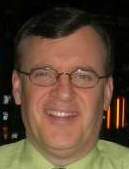
Onley |
Onley, David (Charles) (b. June 12, 1950, Midland, Ont. - d. Jan. 14, 2023), lieutenant governor of Ontario (2007-14).
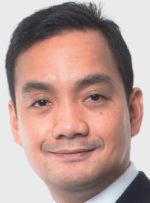
Onn Hafiz |
Onn Hafiz (bin) Ghazi, Datuk (b. March 2, 1979, Simpang Renggam, Johor, Malaysia), chief minister of Johor (2022- ). He was awarded the title Datuk in 2018.
Onn (bin) Jaafar, Dato' Sir (b. 1895, Johor Bahru, Johor [now in Malaysia] - d. Jan. 19, 1962, Johor Bahru), chief minister of Johor (1947-50); son of Datuk Jaafar Mohamed. He was the founding president (1946-51) of the United Malays National Organization (UMNO) party. He was awarded the title Dato' in 1940 and knighted in 1953.
Ono, Motohiro (b. Nov. 12, 1963, Kawaguchi, Saitama, Japan), governor of Saitama (2019- ).
Onoh, Christian (Chukwuma) (b. April 27, 1927, Enugu-Ngwo [now Ngwo], Nigeria - d. May 5, 2009, Ngwo), governor of Anambra (1983).
Onoja, Lawrence (Anebi) (b. Aug. 10, 1948, Idekpa-Okpiko [now in Benue state], Nigeria), governor of Plateau (1986-88) and Katsina (1988-89).
Onopenko, Vasyl (Vasylyovych) (b. April 10, 1949, Velikiye Krushlintsy [Velyki Krushlyntsi], Vinnitsa [Vinnytsya] oblast, Ukrainian S.S.R.), Ukrainian politician. He was justice minister (1992-95), a minor presidential candidate (1999), and chairman of the Supreme Court (2006-11).
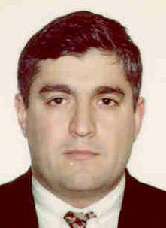
Onoprishvili |
Onoprishvili, David (Tengizovich) (b. Jan. 8, 1961), finance minister of Georgia (1998-2000). A former World Bank official, he headed parliament's committee for economic reforms before being named finance minister.
Onorio, Rota (b. Oct. 26, 1919, Gilbert and Ellice Islands [in present Kiribati]), chairman of the Council of State of Kiribati (1982-83). He was also speaker of the House of Assembly (1979-82).
Onorio, Teima (b. c. 1960), vice president of Kiribati (2003-16); daughter of Rota Onorio. She was also minister of education, youth, and sports development (2003-07, 2008-12), commerce, industry, and cooperatives (2007-08), and internal and social affairs (2012-16).
Onslow, Sir Alexander Campbell (b. July 17, 1842, Trichinopoly [now Tiruchchirappalli], India - d. Oct. 20, 1908, Duffield, Derbyshire, England), acting governor of Western Australia (1895, 1900-01); knighted 1895. He was chief justice (1883-1901).
Onslow, Arthur (b. Oct. 1, 1691, London, England - d. Feb. 17, 1768, London), British speaker of the House of Commons (1727-61); nephew of Richard Onslow, Baron Onslow.
Onslow, Richard Onslow, (1st) Baron (b. June 23, 1654 - d. Dec. 5, 1717, London, England), British speaker of the House of Commons (1708-10) and chancellor of the exchequer (1714-15). He succeeded as (3rd) Baronet in 1688 and was created baron in 1716.
Onslow, William Hillier Onslow, (4th) Earl of (b. March 7, 1853, Alresford, Hampshire, England - d. Oct. 23, 1911, London, England), governor of New Zealand (1889-92); great-great-great-grandson of Arthur Onslow. He was also president of the (U.K.) Board of Agriculture (1903-05). He succeeded as earl in 1870.
Onu, Ogbonnaya (b. Dec. 1, 1951, Uburu [now in Ebonyi state], Nigeria), governor of Abia (1992-93). He was also Nigerian minister of science and technology (2015-22).
Onu, Peter (b. 1931 - d. Jan. 17, 1997, Kent, England), Nigerian diplomat. A top civil servant of the Nigerian government, Onu spent 13½ years in the Organization of African Unity (OAU), arriving in 1972 to take up the post of assistant secretary general in charge of finance and administration. He then moved to political affairs until 1983 when he became interim secretary general of the OAU. He held this post until 1985 and in February 1986 left the organization. Onu was the longest serving elected official in the history of the OAU. Until his death, Onu served as a special advisor on political affairs to the Nigerian government.
Onufriy, secular name Orest (Volodymyrovych) Berezovskiy (b. Nov. 5, 1944, Vilavche [now Korytnoye] village, Chernovtsy oblast, Ukrainian S.S.R.), metropolitan of Kiev (2014- ). He was also bishop (1990-92, 1992-94), archbishop (1994-2000), and metropolitan (2000-14) of Chernivtsi and Bukovyna and bishop of Ivano-Frankivsk (1992).
Onuka, M(ohammed) A(bdul-)S(alam), governor of Edo (1993-94).
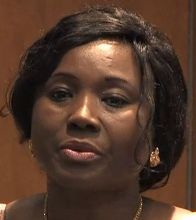
Onwuliri |
Onwuliri, Viola (Adaku) (b. June 18, 1956, Umuokisi [now in Imo state], Nigeria), acting foreign minister of Nigeria (2013-14).
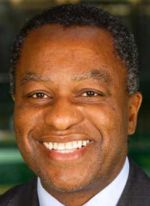
Onyeama |
Onyeama, Geoffrey (Jideofor) (b. Feb. 2, 1956), foreign minister of Nigeria (2015- ).
Onyearugbulem, Anthony (Ibe) (b. July 9, 1955, Imo state, Nigeria - d. July 27, 2002, Kaduna, Nigeria), governor of Ondo (1996-98) and Edo (1998-99).
Onyonka, Zachary (Theodore) (b. Feb. 28, 1939, Meru, Kenya - d. Oct. 22, 1996, London, England), foreign minister of Kenya (1987-88). He was also minister of economic planning and development (1969-70, 1979-83), information and broadcasting (1970-73), health (1973-74), education (1974-78), housing and social services (1978-79), planning and national development (1988-93), and research, technical training, and technology (1993-96).
Onyszkiewicz, Janusz (Adam) (b. Dec. 18, 1937, Lwów, Poland [now Lviv, Ukraine]), defense minister of Poland (1992-93, 1997-2000). He was also leader of the Democratic Party (2006-09).
Oorzhak, Sherig-ool (Dizizhikovich) (b. July 24, 1942, Shekpeer settlement, Tuva [now in Russia]), prime minister (1990-92), president (1992-2002), and chairman of the government (2002-07) of Tuva.
Oostbroek en de Bilt, Daniël Jacob van Ewijck, heer van (b. Nov. 13, 1786, Utrecht, Netherlands - d. Dec. 15, 1858, Utrecht), governor of Drenthe (1832-40) and governor/king's commissioner of Noord-Holland (1840-55).
Oosterom, Karel (Jan Gustaaf) van (b. Jan. 11, 1958, Utrecht, Netherlands), Dutch diplomat. He was permanent representative to the United Nations (2013-20).
Öövel, Andrus (b. Oct. 17, 1957, Tallinn, Estonian S.S.R.), defense minister of Estonia (1995-99).
Op Kim Ang (b. 1923, Prey Veng province, Cambodia - d. [killed] April? 1975), defense minister (1966-67), finance minister (1969-70), and interior minister (1970-71) of Cambodia. He was also minister of public works (1973-74) and a deputy prime minister (1969-70, 1973-74).
Opangault, Jacques (b. Dec. 13, 1907 - d. Aug. 20, 1978, Brazzaville, Congo), premier (1957-58) and vice president (1961-62) of Congo (Brazzaville). He was also minister of justice (1961) and public works (1962).
Opazo Letelier, Pedro (b. June 12, 1876, Talca, Chile - d. April 9, 1957, Santiago, Chile), war and marine minister of Chile (1920). He was also acting minister of industry, public works, and railways (1920) and president of the Senate (1930-32, 1944).

Opertti |
Opertti (Badán), Didier (b. April 23, 1937, Montevideo, Uruguay), interior minister (1995-98) and foreign minister (1998-2005) of Uruguay and president of the UN General Assembly (1998-99).
Oplanchuk, Vladimir (Yakovlevich) (b. Feb. 13, 1919, Vladivostok, Russia - d. Aug. 19, 1991), joint acting chairman of the Presidium of the Supreme Soviet of the Tadzhik S.S.R. (1984).
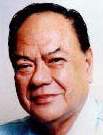
Ople |
Ople, Blas (Fajardo) (b. Feb. 3, 1927 - d. Dec. 14, 2003, Taoyuan county, Taiwan), foreign secretary of the Philippines (2002-03). He was appointed labour minister by Pres. Ferdinand Marcos in 1967 and held the post until Marcos was ousted in a popular revolt in 1986. Ople served as a senator under an opposition party starting in 1992 and was Senate president in 1999-2000. He relinquished his Senate post in July 2002 when Pres. Gloria Macapagal-Arroyo appointed him as foreign secretary, replacing Teofisto Guingona, with whom Arroyo had a spat over his opposition to the U.S. military presence in the Philippines. Ople dealt with major foreign-policy issues, including the Philippines' decision to allow American counter-terrorist training forces in the country, a tiff with Malaysia over its crackdown on Filipino illegal migrant workers, and Manila's support of the U.S.-led invasion of Iraq. He died in a Taiwan hospital after falling ill on a flight from Tokyo to Bangkok.
Oplesnin, Ivan (Ilich) (b. Sept. 9 [Aug. 27, O.S.], 1903, Ust-Sysolsk, Vologda province [now Syktyvkar, Komi republic], Russia - d. 1972, Sverdlovsk, Russian S.F.S.R. [now Yekaterinburg, Russia]), chairman of the Council of People's Commissars of the Komi A.S.S.R. (1938-39).
Opmann, Mart (b. March 27, 1956, Surju, Estonian S.S.R.), finance minister of Estonia (1995-99).

Opoku Ware |
Opoku Ware II, Otumfuo Nana, original name Barima Kwaku Adusei, Christian name Jacob Matthew Poku (b. Nov. 30, 1919, Kumasi, Gold Coast [now Ghana] - d. Feb. 25, 1999, Kumasi), Asantehene (king of the Ashanti people, 1970-99). Born into the Ashanti royal family, he was raised a Christian and attended Anglican school at Adisadel College, Cape Coast, Ghana. He worked as a surveyor until 1951, when he left to study law at the University of Exeter, U.K. When called to the bar at the Middle Temple in 1962, he returned to his homeland to practice law. He later founded a private law practice in Kumasi. In 1986, he served as commissioner for transport and communications under the National Liberation Council; he opened a new automatic long-distance dialling exchange and led bilateral trade delegations to Europe and the United States. Jacob Matthew Poku was designated ambassador to Italy when he was suddenly transformed into Otumfuo Opoku Ware II, the 15th keeper of the Golden Stool, in July 1970, succeeding his late uncle Otumfuo Osei Agyeman Prempe II. Contrary to tradition, he had just one wife, with whom he had three children; she died in 1995.
Oppen, Carl Lauritz Mechelborg (b. Jan. 11, 1830 - d. 1914), governor of Nordre Bergenhus amt (1875-89) and Stavanger amt (1889-1910).
Oprea, Gabriel (b. Jan. 1, 1961, Fundulea, Calarasi county, Romania), interior minister (2008-09, 2014-15) and defense minister (2009-12) of Romania.
Oprea, Gheorghe (b. April 15, 1927, Baicoi, Prahova county, Romania - d. 1998), a deputy prime minister (1974-78) and a first deputy prime minister (1978-89) of Romania.

Orabi | 
Oral |
Orabi, Mohamed al-, Arabic Muhammad al-`Urabi (b. 1951), foreign minister of Egypt (2011). He was also ambassador to Germany (2001-08).
Orakhelashvili, Mamia (Dmitriyevich) (b. June 10 [May 29, O.S.], 1881, Shorapan district, Kutaisi province, Russia [now in Georgia] - d. [executed] Dec. 11, 1937), executive secretary of the Communist Party of the Georgian S.S.R. (1922) and chairman of the Council of People's Commissars (1922-27, 1931-32) and first secretary of the party committee (1926-29, 1931-32) of the Transcaucasian S.F.S.R. He was also deputy premier (1921-22, 1922-23) and people's commissar of education (1922-23) of the Georgian S.S.R. and a deputy premier of the U.S.S.R. (1923-25).
Oral, Sümer (b. 1938, Izmir, Turkey), finance minister of Turkey (1991-93, 1999-2002). He was also minister of social security (1979-80).
Oramas Oliva, Óscar (b. Nov. 12, 1936, Cienfuegos, Cuba), Cuban diplomat. He was chargé d'affaires in Algeria (1965-66), ambassador to Guinea (1966-73), Mali and Equatorial Guinea (1970-73), and Angola and São Tomé and Príncipe (1975-77), and permanent representative to the United Nations (1984-90).
Orazgeldiyev, Esenmurad, Turkmen Esenmyrat Orazgeldiýew (b. 1966, Ashkhabad, Turkmen S.S.R. [now Ashgabat, Turkmenistan]), a deputy prime minister of Turkmenistan (2015-16, 2017-22). He was also minister of agriculture (2006-10) and head of Dashoguz (2011-15) and Akhal (2016-17) velayats.
Orazmukhamedov, Nury (Orazovich) (b. 1949, Mary, Turkmen S.S.R.), Turkmen politician; son of Oraz Orazmukhamedov. He was minister of construction and architecture (1994-95), mayor of Ashgabat (1995-96), and ambassador to Russia (1996-2000) and Moldova (2000-01).
Orazmukhamedov, Oraz (Nazarovich) (b. May 15, 1928, Mary, Turkmen S.S.R.), chairman of the Council of Ministers and foreign minister of the Turkmen S.S.R. (1969-75). He was also a deputy premier (1961-66).
Orazov, Deryageldi (Nuriyevich), Turkmen Derýageldi (Nuryýewiç) Orazow (b. 1962, Ashkhabad, Turkmen S.S.R. [now Ashgabat, Turkmenistan]), a deputy prime minister of Turkmenistan (2008-12). He was also chairman of the State Committee for Physical Culture and Sports (2007) and mayor of Ashgabat (2007-08).
Orazov, Khudayberdy (Artykovich), Turkmen Hudaýberdy (Artykowiç) Orazow (b. 1951), a deputy prime minister of Turkmenistan (1999-2000). He was also chairman of the State Bank for Foreign Economy (1992-93) and the Central Bank (1993-99).
Orazov, Kurban(murad Muradovich), Turkmen Gurban (Myradowiç) Orazow (b. 1941, Bayaut, Tashkent oblast, Uzbek S.S.R.), a deputy prime minister of Turkmenistan (1992-96). He was also first secretary of the party committee of Mary oblast (1988-91) and head of Mary velayat (1992-96).
Orban, Leonard (b. June 28, 1961, Brasov, Romania), Romanian politician. He was EU commissioner for multilingualism (2007-10) and minister of European affairs (2011-12).
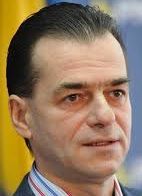
Ludovic Orban |
Orban, Ludovic (b. May 25, 1963, Brasov, Romania), prime minister of Romania (2019-20); brother of Leonard Orban. He was also minister of transport (2007-08) and president of the Chamber of Deputies (2020-21).

Orbán |
Orbán, Viktor (Mihály) (b. May 31, 1963, Székesfehérvár, Hungary), prime minister of Hungary (1998-2002, 2010- ). He was part of a circle of twenty-somethings who in 1988 founded the youth party Fidesz. Fidesz is the Hungarian acronym for the Alliance of Young Democrats but also resembles the Latin word for Faith. In the summer of 1989 he was the new party's outspoken representative in the so-called Round Table Talks between the Communist government, opposition groups, and trade unions on preparing a new democratic constitution. The party at the time had a rule saying no one over the age of 35 could be a member and was much more liberal than today. Fidesz put up a good showing in the 1990 elections, its 22 fresh-faced MPs transforming a chamber previously occupied by rows of grey-suited party cadres. But the new national-minded conservative prime minister József Antall saw Fidesz as too liberal to include in his new coalition and Orbán went into opposition with his then allies, the liberal Free Democrats (SZDSZ), made up mostly of anti-Communist dissidents. Orbán's decision to split with the SZDSZ and move the party closer to Antall's Democratic Forum was seen by some as a means of positioning for power rather than as a shift of belief and prompted the defection to the SZDSZ of several Fidesz leaders. His party won only 5% of parliamentary seats in the 1994 election. Orbán concluded if Fidesz was to assume power it had to widen its right-wing base, and having scrapped the upper age limit for membership, he moved to embrace the Democratic Forum and centrist Christian Democrats in a broad-based alliance designed to appeal to all ages. In 1998 his Fidesz Hungarian Civic Party won the biggest number of parliament seats, and he became prime minister. He was criticized for his confrontational style and vocal nationalism and lost the 2002 elections to the Socialists, but returned to power in 2010, when his party won a landslide two-thirds majority in parliament. He used it to create an authoritarian system that tended to perpetuate his party's dominance through control of the media, judiciary, and other institutions and a reshaped electoral system, and was accordingly reelected in 2014, 2018, and 2022. At the same time he portrayed himself as a defender of Western civilization against the phantom menace of Muslim migration and made Hungarian-born Jewish American financier George Soros into public enemy number one, forcing his Central European University out of Hungary. In 2019 Fidesz was suspended from the European People's Party (he withdrew in 2021 before it could be expelled). During the 2020 coronavirus crisis, he used his two-thirds majority in parliament to proclaim an indefinite state of emergency, suspending parliament and elections and allowing him to rule by decree. Later that year he became Hungary's longest-serving prime minister. In 2022 he declared another state of emergency over the war in Ukraine.
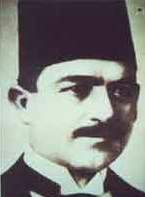
Orbay |
Orbay, Hüseyin Rauf, until Jan. 1, 1935, Hüseyin Rauf Bey (b. 1881, Cibali district, Constantinople, Ottoman Empire [now Istanbul, Turkey] - d. July 16, 1964), prime minister of Turkey (1922-23). He was also ambassador to the United Kingdom (1942-44).
Orbegoso (y Moncada Galindo), Luis José (de) (b. Aug. 25, 1795, Huamachuco, Peru - d. Feb. 5, 1847, Trujillo, Peru), provisional president of Peru (1833-36) and North Peru (1837-38). He was also prefect of La Libertad (1824-25).
Orbegoso (y Martínez de Pinillos), Nemecio (de) (b. Dec. 20, 1828, Trujillo, Peru - d. ...), interior and police minister of Peru (1879-81); son of Luis José Orbegoso. He was also prefect of La Libertad (1865-67) and mayor of Lima (1871-72).
Örbom, (Carl Gustaf) Axel (b. July 29, 1836, Stockholm, Sweden - d. May 30, 1889, Stockholm), justice minister of Sweden (1888-89).
Orczy de Orczi, Béla báró (b. Jan. 16, 1822, Pest [now part of Budapest], Hungary - d. Feb. 7, 1917, Vienna, Austria), Hungarian politician. He was minister a latere (1879-90) and also held the portfolios of defense (1882, 1884), public works and transport (1886), and interior (1887-89).
Ord, Sir Harry St. George (b. June 17, 1819, North Cray, Kent, England - d. Aug. 20, 1885, Homburg [now Bad Homburg], Germany), governor of Dominica (1857-60), Bermuda (1861-66), the Straits Settlements (1867-73), and Western Australia (1877-80); knighted 1867.
Ordaz Coppel, Quirino (b. Oct. 24, 1962, Mazatlán, Sinaloa, Mexico), governor of Sinaloa (2017-21); son of Quirino Ordaz Luna. He has also been Mexican ambassador to Spain (2022- ).
Ordaz Luna, Quirino (b. 1932, Mexico City, Mexico - d. Jan. 24, 2005, Mexico City), Mexican politician. He was mayor of Mazatlán (1984-86).
Ordóñez, Cleto, byname of José Anacleto Ordóñez (b. 1778, Santa Lucía district, Granada [now in Nicaragua] - d. 18...), General en Jefe del Ejército Protector y Libertador de Granada (1823-25) and commandant-general of Nicaragua (1827).
Ordoñez, Sedfrey (A.) (b. Sept. 1, 1921, Gapan, Nueva Ecija, Philippines - d. Nov. 18, 2007, Makati, Philippines), justice secretary of the Philippines (1987-90). He was also permanent representative to the United Nations (1990-92).
Ordóñez García, Mariano (b. March 8, 1874, Madrid, Spain - d. June 3, 1938, Madrid), finance minister of Spain (1921). He was also minister of justice (1920-21, 1922) and the navy (1922).
O'Rear, John D(avis) (b. March 21, 1868, near Mexico, Mo. - d. July 14, 1918, La Paz, Bolivia), U.S. diplomat; great-grandson of Josiah Bartlett. He was minister to Bolivia (1913-18).
Orehag, (Nils) Lennart (Helge) (b. Feb. 15, 1925, Gävle, Gävleborg, Sweden - d. March 8, 2012), governor of Skaraborg (1986-90).
Oreja Aguirre, Marcelino, (from 2010) marqués de Oreja (b. Feb. 13, 1935, Madrid, Spain), foreign minister of Spain (1976-80) and secretary-general of the Council of Europe (1984-89). He was also EU commissioner for transport and energy (1994-95) and relations with the European Parliament, culture and audiovisual policy, and institutional matters (1995-99).
Orejuela Bueno, Raúl (b. 1929 - d. June 20, 1995, Bogotá, Colombia), interior minister of Colombia (1989). He was also governor of Valle del Cauca (1974-76), minister of health (1976-78), and ambassador to Sweden (1982-84) and Uruguay (1987-89).
Örek, Osman (Nuri) (b. Dec. 26, 1925, Nicosia, Cyprus - d. March 24, 1999), defense minister of Cyprus (1959-63) and prime minister of North Cyprus (1978). He was also defense minister and vice president (1974-76) and parliament speaker (1976-78) of North Cyprus (until 1975 Turkish Cypriot Executive Council).
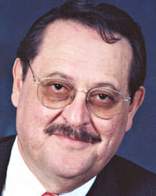
Á.E. Orellana |
Orellana (Mercado), Ángel Edmundo (b. Oct. 20, 1948), interior minister (2007-08), foreign minister (2008-09), and defense minister (2009) of Honduras. He was also permanent representative to the United Nations (1999-2002).
Orellana (Pinto), José María (b. July 11, 1872, El Jícaro, El Progreso department, Guatemala - d. Sept. 26, 1926, Antigua Guatemala, Guatemala), president of Guatemala (1921-26).
Orellana Rojas, Gabriel (b. Dec. 2, 1947), foreign minister of Guatemala (2000-02).
Orepic, Vlaho (b. Nov. 16, 1968, Capljina, Bosnia and Herzegovina), interior minister of Croatia (2016-17).
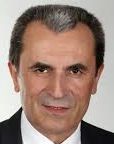
Oresharski | 
Oreskovic |
Oresharski, Plamen (Vasilev) (b. Feb. 21, 1960, Dupnitsa, Bulgaria), finance minister (2005-09) and prime minister (2013-14) of Bulgaria. He was a presidential candidate in 2016.
Oreskovic, Tihomir, byname Tim Oreskovic (b. Jan. 1, 1966, Zagreb, Croatia), prime minister of Croatia (2016).
Oreste (Lafontant), Michel, dit Michel-Oreste (b. April 8, 1859, Jacmel, Haiti - d. Oct. 28, 1918, New York City), president of Haiti (1913-14).
Orfila, Alejandro (b. Feb. 27, 1894, Mendoza, Argentina - d. Dec. 11, 1958, Buenos Aires, Argentina), governor of Mendoza (1926-28).
Orfila, (Washington) Alejandro (José Luis) (b. March 9, 1925, Mendoza, Argentina - d. June 9, 2021, San Diego, Calif.), secretary-general of the Organization of American States (1975-84); son of the above. He was also Argentine ambassador to Japan (1960-62) and the United States (1974-75).
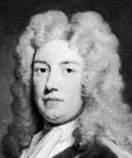
Orford |
Orford, Robert Walpole, (1st) Earl of (b. Aug. 26, 1676, Houghton Hall, Norfolk, England - d. March 18, 1745, London, England), British statesman. After his father's death in 1700, he was elected to the family parliamentary seat at Castle Rising, transferring in 1702 to King's Lynn, which he represented, with one short intermission, for the next 40 years. He rapidly made his mark as a clear, forceful speaker in the House of Commons. In the Whig administration he became secretary at war in 1708 and treasurer of the navy in 1710, but he was dismissed on Jan. 2, 1711, with the advent of the Tory Party to power after the general election of 1710. He attacked the new government so strongly that in 1712, to remove him from the scene, he was impeached for corruption while secretary at war, found guilty, expelled from the Commons, and sent to the Tower of London for six months. Reelected to Parliament in 1713, he was made paymaster general of the forces at the accession of George I in 1714, and became first lord of the treasury and chancellor of the exchequer in 1715. He left the ministry in 1717 but returned as paymaster general of the forces in 1720 and again became first lord of the treasury and chancellor of the exchequer in 1721, offices that he was to hold until 1742. He and his brother-in-law, Charles Townshend, Viscount Townshend, headed the ministry but in 1730 Walpole forced Townshend's resignation; he is today considered the first British prime minister, although he himself rejected the title. In 1739 he reluctantly declared war against Spain (the War of Jenkins' Ear). Many did not consider him capable of directing the war vigorously enough and his resignation was forced on Feb. 2, 1742, on a minor issue. The king then created him Earl of Orford; he had been knighted in 1725.
Organov, Nikolay (Nikolayevich) (b. Feb. 27 [Feb. 14, O.S.], 1901, Zaraysk, Ryazan province, Russia - d. May 5, 1982, Moscow, Russian S.F.S.R.), chairman of the Presidium of the Supreme Soviet of the Russian S.F.S.R. (1959-62). He was also first secretary of the party committees of Primorsky (1947-52) and Krasnoyarsk (1952-58) kraya and Soviet ambassador to Bulgaria (1963-67).
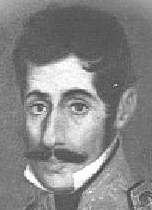
Oribe |
Oribe (y Viana), Manuel (Ceferino) (b. Aug. 27, 1792, Montevideo, Río de la Plata [now in Uruguay] - d. Nov. 12, 1857, Montevideo), president of Uruguay (1835-38). After serving with José Gervasio Artigas, he became a member of the Treinta y Tres Orientales, the legendary 33 nationalists who successfully fought for Uruguayan independence in the Cisplatine War (1825-28). He became the second president of Uruguay, succeeding Fructuoso Rivera. Although he had been allied with Rivera, their ambitions clashed. As Oribe sought to extend government control over rural districts ruled by Rivera and accused Rivera of financial mismanagement during his term in office, Rivera revolted in 1836, eventually forcing Oribe's resignation in 1838. Oribe then went to Buenos Aires along with his supporters. He had become friendly with the Argentine dictator Juan Manuel de Rosas and was given a military commission by him. Oribe began a long civil war that nearly destroyed Uruguay. He defeated Rivera's army with Argentine troops in 1842, then returned to Uruguay and laid siege to Montevideo for almost nine years (1843-51). The nation was divided into rival factions named Blanco (White) and Colorado (Red), led by Oribe and Rivera, respectively. The Blancos represented the conservative rural population and the Colorados the liberals. The two parties would dominate Uruguayan politics up to the early 21st century. A combined force of Brazilians, rebellious Argentines under Justo José de Urquiza, and the besieged Colorados defeated the Blancos; Oribe was forced into exile in Europe in 1853-55. But after his death, eight more years of civil strife followed, before the Colorados finally established their control, ruling almost continuously for 93 years thereafter.
Orihuela (Tejada), Telémaco (b. Sept. 20, 1857, Yucay, Cusco, Peru - d. Nov. 4, 1915, Cusco, Peru), justice and education minister of Peru (1902-03).
Oriol y Urquijo, Antonio María de (b. Sept. 15, 1913, Guecho, Vizcaya province, Spain - d. March 22, 1996, Madrid, Spain), justice minister of Spain (1965-73). He was also president of the Council of State (1973-79).
Oris, Juma (Abdallah) (d. March 2001), foreign minister of Uganda (1975-78). He was also minister of information and broadcasting (1974-75, 1977-78) and lands and water resources (1977-79). He later became commander of the West Nile Bank Front rebel group. Although he was reported to have been killed by the government's Uganda People's Defense Force in March 1997, he was apparently only wounded.
Orji, Joseph (Iloabanafor), administrator of Gombe (1996-98).
Orlandic, Marko (b. Sept. 28, 1930, Seoca, Yugoslavia [now in Montenegro] - d. Dec. 20, 2019, Podgorica, Montenegro), chairman of the Executive Council (1974-78), president of the Presidency (1983-84), and secretary of the Central Committee of the League of Communists (1984-86) of Montenegro. He was also Yugoslav ambassador to the Soviet Union (1979-82).
Orlando, Andrea (b. Feb. 8, 1969, La Spezia, Italy), justice minister of Italy (2014-18). He has also been minister of environment (2013-14) and labour and social policy (2021- ).
Orlando, Vittorio Emanuele (b. May 19, 1860, Palermo, Italy - d. Dec. 1, 1952, Rome, Italy), prime minister of Italy (1917-19). He was also minister of education (1903-05), justice (1907-09, 1914-16), and interior (1916-19) and president of the Chamber of Deputies (1919-20).
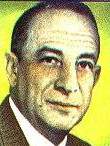
Orlich |
Orlich Bolmarcich, Francisco José (b. March 10, 1907, San Ramón, Costa Rica - d. Oct. 29, 1969, San José, Costa Rica), president of Costa Rica (1962-66). He was also minister of public works (1948-49, 1953-57). He was an unsuccessful presidential candidate in 1958.
Orlov, Knyaz Aleksey (Fyodorovich) (b. Oct. 19 [Oct. 8, O.S.], 1786, Moscow, Russia - d. May 21 [May 9, O.S.], 1861, St. Petersburg, Russia), chairman of the Imperial State Council and the Committee of Ministers of Russia (1856-61). He was also envoy to the Ottoman Empire (1829-30). He became Knyaz (prince) in 1856.
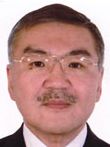
A. (M.) Orlov | 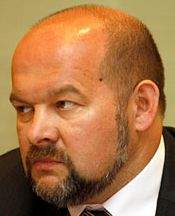
I. Orlov |
Orlov, Aleksey (Maratovich) (b. Oct. 9, 1961, Elista, Kalmyk A.S.S.R., Russian S.F.S.R.), head of the republic of Kalmykia (2010-19).
Orlov, Dmitry (Aleksandrovich) (b. March 17 [March 5, O.S.], 1894, Penza, Russia - d. [executed] Jan. 16, 1938), executive secretary of the Communist Party committee of the Tatar A.S.S.R. (1920-21). He was also executive secretary of the party committee of Penza province (1923-25) and chairman of the Executive Committee of Voronezh oblast (1935-37).
Orlov, Igor (Anatolyevich) (b. Aug. 17, 1964, Debaltsevo, Donetsk oblast, Ukrainian S.S.R.), governor of Arkhangelsk oblast (2012-20).
Orlov, Nikolay (Alekseyevich) (b. April 27, 1827, St. Petersburg, Russia - d. March 17, 1885, Fontainebleau, France), Russian diplomat; son of Aleksey (Fyodorovich) Orlov. He was minister to Belgium (1859-69), Austria-Hungary (1869-70), and the United Kingdom (1870-71) and ambassador to France (1871-84) and Germany (1884-85).
Orlov, Petr (Aleksandrovich) (b. Jan. 1, 1938, Pagori, Belorussian S.S.R. [now in Vitsebsk voblast, Belarus]), chairman of the Central Council of the Old Believer Pomorian Church in Belarus (2001- ).
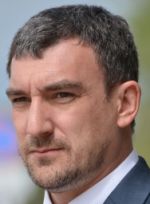
Vasily Orlov |
Orlov, Vasily (Aleksandrovich) (b. April 14, 1975, Blagoveshchensk, Amur oblast, Russian S.F.S.R.), governor of Amur oblast (2018- ).
Orlov, Viktor (Petrovich) (b. March 23, 1940, Chernogorsk, Khakass autonomous oblast, Krasnoyarsk kray, Russian S.F.S.R. [now in Khakassia, Russia] - d. Aug. 23, 2021), Russian politician. He was chairman of the Committee on Geology and Mineral Resources (1992-96) and minister of natural resources (1996-98, 1998-99).
Orlov, Vladimir (Pavlovich) (b. Aug. 16, 1921, Kotovo, Kaluga province, Russia - d. April 4, 1999, Moscow, Russia), chairman of the Presidium of the Supreme Soviet of the Russian S.F.S.R. (1985-88). He was also first secretary of the party committees of Novokuybyshevsk city (1958-60) and Kuybyshev oblast (1967-79), chairman of the Executive Committee of Kuybyshev oblast (1962-64 [industrial], 1965-67), and first deputy premier (1979-85).
Orlov, Vladimir (Yefimovich) (b. Nov. 28, 1936, Moscow, Russian S.F.S.R.), finance minister of the Soviet Union (1991).
Orlov-Davydov, Graf (Count) Vladimir (Vladimirovich), original surname Orlov (b. Nov. 25 [Nov. 13, O.S.], 1837 - d. April 19 [April 7, O.S.], 1870, Corfu island, Greece), governor of Simbirsk (1866-68); grandson of Knyaz Ivan (Ivanovich) Baryatinsky; nephew of Knyaz Aleksandr (Ivanovich) Baryatinsky. He became Graf Orlov-Davydov in 1856.
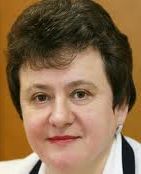
Orlova |
Orlova, Svetlana (Yuryevna) (b. Oct. 23, 1954, Obluchye, Yevreyskaya autonomous oblast, Khabarovsk kray, Russian S.F.S.R. [now in Yevreyskaya autonomous oblast, Russia]), governor of Vladimir oblast (2013-18).
Orlovsky, Konstantin (Ivanovich) (b. 1810 - d. March 20 [March 8, O.S.], 1876, Tiflis, Russia [now Tbilisi, Georgia]), governor of Tiflis (1860-76).
Ormières, Louis Auguste Bertrand (b. Jan. 20, 1851, Saint-Denis, Réunion - d. 19...), resident of Anjouan (188...-95), lieutenant governor of Gabon (1904-05), and acting governor of French Somaliland (1905-06).
Ornano, Camille d' (b. 1917 - d. 1989), high commissioner of the French Territory of the Afars and Issas (1976-77). He was also French ambassador to Luxembourg (1978-82).
Ornelas Küchle, Óscar (b. Nov. 30, 1920, Chihuahua, Chihuahua, Mexico - d. Nov. 8, 2000), governor of Chihuahua (1980-85). He was also mayor of Chihuahua (1974-76).
Ornellas, Manoel Joaquim de (b. 175... - d. July 9, 1830), acting president of São Paulo (1828-29).
Ornes Coiscou, Horacio Julio (b. Sept. 15, 1922, Puerto Plata, Dominican Republic - d. May 11, 1991, Santo Domingo, Dominican Republic), Dominican Republic diplomat. He was permanent representative to the United Nations (1968-70).
Örnfelt, Jonas Fredrik friherre (b. April 25, 1674, Stockholm, Sweden - d. Sept. 23, 1733, Nyköping, Södermanland, Sweden), governor of Södermanland (1732-33). He was made friherre (baron) in 1719.
Örnsköld, Per Abraham friherre, originally Per Abraham Löth-Örnsköld (b. Nov. 18, 1720 - d. April 16, 1791, Nyköping, Södermanland, Sweden), governor of Västernorrland (1762-69) and Södermanland (1769-91). He was made friherre (baron) in 1771.
O'Rourke, Beto, byname of Robert Francis O'Rourke (b. Sept. 26, 1972, El Paso, Texas), U.S. politician. He was a representative from Texas (2013-19) and a candidate for the 2020 Democratic presidential nomination.
O'Rourke, Mary, née Lenihan, Irish Máire Uí Ruairc, née Ní Luineacháin (b. May 31, 1937, Athlone, County Westmeath, Ireland), Irish minister of education (1987-91), health (1991-92), and public enterprise (1997-2002); sister of Brian Lenihan.
Orovio, Manuel de Orovio Echagüe, marqués de (b. July 17, 1817, Alfaro, La Rioja, Spain - d. May 18, 1883, Madrid, Spain), finance minister of Spain (1868, 1877-80). He was also minister of development (1865, 1866-68, 1874-75) and overseas (interim, 1879). He was made marqués in 1868.
Orozco (Graterol), Moisés (Antonio) (b. Sept. 4, 1944), defense minister of Venezuela (1995-96) and governor of the Distrito Federal (1998-99). He was also commander of the army (1994).
Orozco Romero, Alberto (b. April 3, 1925, Guadalajara, Jalisco, Mexico - d. Aug. 28, 2007, Guadalajara), governor of Jalisco (1971-77).
Orpo, (Antti) Petteri (b. Nov. 3, 1969, Köyliö, Finland), interior minister (2015-16) and finance minister (2016-19) of Finland. He was also minister of agriculture and forestry (2014-15).
Orr, James L(awrence) (b. May 12, 1822, Craytonville, S.C. - d. May 5 [April 23, O.S.], 1873, St. Petersburg, Russia), governor of South Carolina (1865-68). He was also speaker of the U.S. House of Representatives (1857-59) and minister to Russia (1873).

K.A. Orr |
Orr, Kay A(vonne), née Stark (b. Jan. 2, 1939, Burlington, Iowa), governor of Nebraska (1987-91).
Orr, Robert D(unkerson) (b. Nov. 17, 1917, Evansville, Ind. - d. March 10, 2004, Indianapolis, Ind.), governor of Indiana (1981-89). He was Vanderburgh County Republican chairman and was elected to the state Senate in 1968. He spent 16 years in the state's top two offices, serving two terms as lieutenant governor beginning in 1973 before serving as governor. As governor, he presided over the strengthening of the state's economy following the recession of the early 1980s. He also oversaw the removal of the state license branch system from political control and an aggressive effort to promote the export of Indiana products - a crusade he maintained long after leaving office. Orr's major achievement was passage of a sweeping educational reform package in 1987. The "A-Plus" package required student achievement exams, a new school accreditation system based on performance, and rewards for schools that showed improvement. He also pushed two major tax increases through the General Assembly, one in 1987 to pay for the education program and one in 1982 - just after the November election - to fix budget problems. He was barred from a third term. After leaving office, he was U.S. ambassador to Singapore (1989-92).
Orr, Thomas (b. Feb. 5, 1857, Loughgall, Armagh, Ireland - d. May 11, 1937), finance minister of South Africa (1917-20).
Orrego (González), Juan Antonio (b. 1859?, Concepción, Chile - d. af. 1931), Chilean politician. He was minister of war and navy (1893-94), justice and education (1898), and interior (1900-01, 1905).
Orrego (González), Rafael (b. 1862, Colchagua, Chile - d. Nov. 2, 1937), foreign minister (1910-11, 1915) and interior minister (1911, 1913-14) of Chile. He was also president of the Chamber of Deputies (1906-07, 1907).
Orrego Aguinaga, Juan, justice minister of Peru (1962-63).
Orrego Luco, Augusto (Antonio) (b. May 2, 1849, Valparaíso, Chile - d. Aug. 26, 1933, Valparaíso), interior minister of Chile (1897). He was also president of the Chamber of Deputies (1886-88) and minister of justice and education (1898, 1915-16).
Orrego Luco, Luis (b. May 18, 1866, Santiago, Chile - d. Dec. 3, 1948, Santiago), justice (and education) minister of Chile (1918-19); brother of Augusto Orrego Luco. He was also known as a writer.
Orselli, Georges (Louis Joseph) (b. May 24, 1896, Nice, France - d. Aug. 11, 1971, Cannes, France), governor of French Polynesia (1941-45), Martinique (1946-47), and Ivory Coast (1948).
Orsetti, Christian (Ernest Marie) (b. April 1, 1923, Montpellier, Hérault, France - d. Oct. 2, 2022, Paris, France), prefect of Martinique (1973-75). He was also prefect of the départements of Essonne (1968) and Lot-et-Garonne (1975-77) and ambassador of Monaco to France (1977-2006).
Orsolic, Marijan (b. March 12, 1965, Vidovice [now in Federation of Bosnia and Herzegovina]), premier of Bosnian Posavina (2011-15).
Ørsted, Anders Sandøe (b. Dec. 21, 1778, Rudkøbing, Denmark - d. May 1, 1860, Copenhagen, Denmark), prime minister (1853-54) and interior minister (1853-54) of Denmark. He was also minister of education and ecclesiastical affairs (1853-54) and justice (1854).
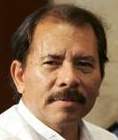
D. Ortega |
Ortega (Saavedra), (José) Daniel (b. Nov. 11, 1945, La Libertad, Chontales, Nicaragua), president of Nicaragua (1985-90, 2007- ); nephew of Alfonso Ortega Urbina. He joined the Sandinista National Liberation Front (FSLN), which was fighting against the ruling Somoza family, in 1963, and in 1966 became the leader of the insurgency's urban guerrilla front. In November 1967 he was arrested for his part in a bank robbery; he was released in December 1974, along with a number of other Sandinista prisoners, in exchange for high-level Somocista hostages. With the other released prisoners, he was exiled to Cuba, where he received several months of guerrilla training. After secretly returning to Nicaragua, he played a major role in the conciliation of various FSLN factions and in 1977 designed a policy of alliances with business and political groups which gradually turned the guerrilla campaign into a full-fledged civil war and led to the Sandinista victory in 1979. He became one of the five members of the ruling junta, was named coordinator of the junta in 1981, and in 1984 was elected president of Nicaragua in voting most observers considered free and fair, although some opposition groups boycotted the vote. He traveled widely seeking international support against the U.S. effort to assist the contra rebels; his cause attracted widespread support from leftists around the world. As part of an agreement to end the civil war he held elections in 1990, allowing an unfettered campaign by the opposition. He lost his reelection bid to Violeta Barrios de Chamorro. He failed to make a comeback in two more elections in 1996 and 2001 but won in 2006. Having long traded in his trademark army fatigues for collarless shirts and jeans, he campaigned to the tune of John Lennon's "Give Peace a Chance" and vowed to eradicate poverty through "peace, love, and reconciliation." After the Supreme Court declared the country's two-term presidential limit invalid in 2009, he ran again in 2011 - for the sixth time in a row - and was reelected in a landslide, as he was again in 2016 and 2021.
Ortega (Saavedra), Humberto (b. Jan. 10, 1947, Juigalpa, Nicaragua), defense minister of Nicaragua (1979-90); brother of Daniel Ortega. He remained army chief until 1995.
Ortega, José María (b. 1793, Mexico City, Mexico - d. Nov. 1, 1871, Mexico City), governor of Nuevo León (1841-44) and Jalisco (1853-55).
Ortega (Camarena), Melchor (b. Jan. 16, 1896, Comonfort, Guanajuato, Mexico - d. [shot in an ambush] March 9, 1971, north of Acapulco, Mexico), governor of Guanajuato (1932-35). He was also president of the National Revolutionary Party (1933).
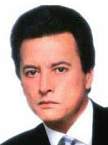
R. Ortega |
Ortega (Saavedra), Ramón (Bautista), byname Palito Ortega (b. Feb. 28, 1941, Lules, Tucumán, Argentina), governor of Tucumán (1991-95). He is best known as a singer.
Ortega (de Carrizalez), Yubirí (b. Roblecito, Guárico, Venezuela), Venezuelan politician; wife of Ramón Carrizalez. She was environment minister (2007-10).
Ortega Aguayo, Abraham (b. June 14, 1891, Lumaco, Chile - d. Sept. 20, 1951, Santiago, Chile), foreign minister of Chile (1938-40). He was also governor of Concepción (1924-28).
Ortega Bernés, Fernando (Eutimio) (b. Feb. 16, 1958, Campeche, Campeche, Mexico), governor of Campeche (2009-15). He was also mayor of Campeche (2003-06).
Ortega Durán, Oydén (Jesús) (b. July 6, 1944), foreign minister of Panama (1983-84). He was also minister of labour and social welfare (1978-83).
Ortega Martínez, Lauro (b. June 8, 1910, Mexico City, Mexico - d. July 22, 1999), governor of Morelos (1982-88). He was also president of the Institutional Revolutionary Party (1965-68).
Ortega Masson, Rudecindo (b. June 3, 1899, Temuco, southern Chile - d. Oct. 10, 1962, Santiago, Chile), president of the UN General Assembly (1956). He was also Chilean minister of education (1938-40) and permanent representative to the UN (1953-56).

I. Ortega |
Ortega Pacheco, Ivonne (Aracelly) (b. Nov. 26 or 27, 1972, Dzemul, Yucatán, Mexico), governor of Yucatán (2007-12). She was also secretary-general of the Institutional Revolutionary Party (2012-15).
Ortega Urbina, Alfonso (b. Feb. 24, 1925, Granada, Nicaragua - d. Oct. 3, 2006, Managua, Nicaragua), foreign minister of Nicaragua (1962-67). He served as ambassador to Honduras (1959-61), Mexico (1967-72), Paraguay and Bolivia concurrently (1972-75), Brazil (1975-79), Paraguay and Brazil concurrently (1992-95), Canada (1997-98), Colombia (1998), and the United States (2000-02) and permanent representative to the United Nations (1998-2000).

Ortez |
Ortez Colindres, Enrique (b. Oct. 29, 1931, Juticalpa, Honduras - d. March 30, 2022, Tegucigalpa, Honduras), foreign minister (2009) and interior minister (2009) of Honduras. He was also permanent representative to the United Nations (1982-83) and ambassador to France (1999-2002).
Ortigão, António de Macedo Ramalho (b. Aug. 5, 1876 - d. April 6, 1963), governor of Cape Verde (1910-11).
Ortiz (Argeñal), Anastasio J., vice president (1893-94) and war and navy minister (1893-94) of Nicaragua.
Ortiz (Antelo), Óscar (Miguel) (b. Sept. 28, 1969, Santa Cruz, Bolivia), economy and finance minister of Bolivia (2020). He was also president of the Senate (2008-10), a minor presidential candidate (2019), and minister of productive development and plural economy (2020).
Ortiz (Lizardi), (Jaime Gerardo) Roberto M(arcelino María) (b. Sept. 24, 1886, Buenos Aires, Argentina - d. July 15, 1942, Buenos Aires), president of Argentina (1938-42). He was also minister of public works (1925-28) and finance (1935-37).
Ortiz Arana, Fernando (b. Oct. 26, 1944, Querétaro, Querétaro, Mexico), Mexican politician. He was president of the Chamber of Deputies (1985, 1991) and president of the Institutional Revolutionary Party (1993-94).
Ortiz Ávila, José (b. 1917 - d. June 7, 2002, Tampico, Tamaulipas, Mexico), governor of Campeche (1961-67).
Ortiz Brennan, Benjamín (b. 1944), foreign minister of Ecuador (1999-2000). Until February 1999 he was the director of Hoy, one of the top five newspapers in Ecuador.
Ortiz de Rozas (del Valle), Carlos (Alberto) (b. April 26, 1926, Buenos Aires, Argentina - d. March 13, 2014), Argentine diplomat. He was chargé d'affaires in Bulgaria (1952-54), ambassador to Austria (1967-70), the United Kingdom (1980-82), France (1984-89), and the United States (1991-93), and permanent representative to the United Nations (1970-77).
Ortiz de Zevallos (y Paz Soldán), Carlos (Ricardo) (b. May 5, 1908, Lima, Peru - d. April 18, 1983, Lima), Peruvian diplomat; grandson of Ricardo Ortiz de Zevallos. He was ambassador to Guatemala (1963-69).
Ortiz de Zevallos (y Vidaurre), Emilio (b. April 13, 1885, Paris, France - d. Sept. 9, 1965, Lima, Peru), Peruvian diplomat; son of Ricardo Ortiz de Zevallos. He was minister (1940-44) and ambassador (1945-52) to Panama.
Ortiz de Zevallos (Madueño), Felipe (Arturo) (b. Aug. 28, 1947, Lima, Peru), Peruvian diplomat; great-grandson of Ricardo Ortiz de Zevallos. He was ambassador to the United States (2006-09).
Ortiz de Zevallos (Thorndike), (Francisco) Javier (Leopoldo) (b. Nov. 15, 1917, Chorrillos, Peru - d. May 15, 2014), Peruvian politician; son of Emilio Ortiz de Zevallos. He was president of the Chamber of Deputies (1958-60).
Ortiz de Zevallos (y García), Manuel (b. 1809, Quito, New Granada [now in Ecuador] - d. April 24, 1882, Lima, Peru), foreign minister (1857-58), finance minister (1857-58), and prime minister (1858) of Peru.
Ortiz de Zevallos (y Tagle), Ricardo (León Ignacio), marqués de Torre Tagle (b. Feb. 20, 1844, Lima, Peru - d. July 18, 1915, Lima), foreign minister of Peru (1895-96); son of Manuel Ortiz de Zevallos; grandson of José Bernardo de Tagle y Portocarrero. He was also president of the Supreme Court (1907-09).
Ortiz Garza, Nazario S(ilvestre) (b. Dec. 31, 1893, Saltillo, Coahuila, Mexico - d. Oct. 10, 1991, Mexico City, Mexico), governor of Coahuila (1929-33). He was also Mexican minister of agriculture (1946-52).
Ortiz Martín, Gonzalo (Jesús Rafael José M. de los Ángeles) (b. June 28, 1908, Cartago, Costa Rica - d. Sept. 11, 1993, San José, Costa Rica), Costa Rican diplomat. He was ambassador to Argentina, Chile, and Uruguay (1953-54) and permanent representative to the United Nations (1958-62).
Ortiz Martínez, Guillermo (b. July 21, 1948, Mexico City, Mexico), finance minister of Mexico (1994-98). He was also minister of transport and communications (1994) and governor of the Bank of Mexico (1998-2009).
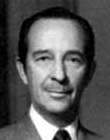
A. Ortiz |
Ortiz Mena, Antonio (b. Sept. 22, 1908, Hidalgo del Parral, Chihuahua, Mexico - d. March 13, 2007, Mexico City, Mexico), finance minister of Mexico (1958-70) and president of the Inter-American Development Bank (1971-88).
Ortiz Mercado, José (b. Jan. 5, 1940 - d. Jan. 1, 2004, Santa Cruz, Bolivia), defense minister (1970-71, 1982-83) and foreign minister (1983-84) of Bolivia. He was also minister of planning (1969-70) and education (1970).
Ortiz Ortiz, Héctor (Israel) (b. July 28, 1950, Tejupan, Oaxaca, Mexico), governor of Tlaxcala (2005-11). He was also mayor of Tlaxcala (2002-05).
Ortiz Rubio, Pascual (b. March 10, 1877, Morelia, Michoacán, Mexico - d. Nov. 4, 1963, Mexico City, Mexico), governor of Michoacán (1917-18) and president of Mexico (1930-32). He was also minister of communications and public works (1920-21), minister to Germany (1923-26), and ambassador to Brazil (1926-29).
Ortiz Sanz, Fernando (b. Dec. 27, 1914, Sucre, Bolivia - d. 2004), Bolivian diplomat. Also known as a writer, he was chargé d'affaires at the Vatican (1946-47, 1948-49), permanent representative to the United Nations (1964-68, 1980-82), and UN special representative for West New Guinea (1968-69).
Ortiz Vega, Juan Emilio (b. June 24, 1869, Copiapó, Chile - d. May 5, 1929, Santiago, Chile), war minister of Chile (1924-25, 1927). He was also inspector-general of the army (1925-27) and minister of public works, commerce, and communications (1927).
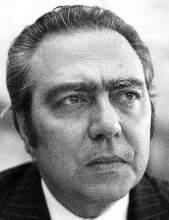
Ortoli |
Ortoli, François-Xavier (b. Feb. 16, 1925, Ajaccio, Corse, France - d. Nov. 29, 2007, Paris, France), president of the European Commission (1973-77). Later he was a vice president of the Commission and commissioner for economic and financial affairs and credit and investment (1977-84). He was also French minister of equipment and housing (1967-68), education (1968), economy and finance (1968-69), and industrial and scientific development (1969-72).
Ortona, Egidio (b. Sept. 16, 1910, Casale Monferrato, Italy - d. Jan. 10, 1996, Rome, Italy), Italian diplomat. He was permanent representative to the United Nations (1958-61) and ambassador to the United States (1967-75).
Ortúzar Escobar, Enrique (b. Nov. 7, 1914, Santiago, Chile - d. Feb. 26, 2005), interior minister (1958-59), justice minister (1960-64), and acting foreign minister (1963) of Chile.
Ortúzar Rojas, (Juan) Jerónimo (b. June 24, 1894, Rengo [now in O'Higgins region], Chile - d. 1949), justice minister of Chile (1942).
Oruçi, Bahri (b. June 18, 1931, Kosovska Mitrovica, Yugoslavia [now in Kosovo] - d. Nov. 16, 2011, Ulcinj, Montenegro), chairman of the Executive Council of Kosovo (1978-81).
O'Ryan Orrego, (Juan) Francisco (b. Jan. 23, 1901, Olmué, Chile - d. June 7, 1968), defense minister (1955-57) and interior minister (1957-58) of Chile. He was also commander-in-chief of the navy (1954-58).
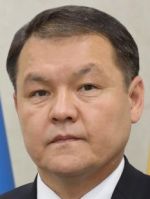
A. Orynbayev |
Orynbayev, Amanbay (Tleubayevich), chairman of parliament of Karakalpakstan (2022- ).
Orynbayev, Yerbol (Turmakhanovich) (b. June 29, 1971, Chimkent, Kazakh S.S.R. [now Shymkent, Kazakhstan]), a deputy prime minister of Kazakhstan (2007-08, 2011-13).
Orzechowski, Marian (Odon) (b. Oct. 24, 1931, Radom, Poland - d. June 29, 2020, Wroclaw, Poland), foreign minister of Poland (1985-88). He was also rector of the University of Wroclaw (1972-75).
Orzhevsky, Pyotr (Vasilyevich) (b. Aug. 23 [Aug. 11, O.S.], 1839 - d. April 12 [March 31, O.S.], 1897), governor-general of Vilna, Kovno, and Grodno (1893-97).
Osadebay, Dennis (Chukwudebe) (b. June 29, 1911, Asaba [now in Delta state], Nigeria - d. Dec. 26, 1994, Asaba), administrator (1963-64) and premier (1964-66) of Midwest Region, Nigeria. He was also known as a poet.
Osafo Maafo, Yaw (b. Dec. 24, 1942), finance minister of Ghana (2001-05). He was also minister of education and sports (2005-06).
Osawa, Masaaki (b. Jan. 21, 1946), governor of Gunma (2007-19).
Osborn, Luther Wood (b. Dec. 14, 1843, Ithaca, N.Y. - d. Oct. 27, 1901, Apia, Samoa), U.S. consul at Apia, Samoa (1897-1901).
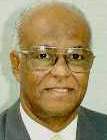
B. Osborne | 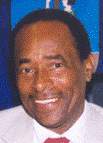
J. Osborne |
Osborne, Bertrand (Beresford) (b. April 18, 1935 - d. Sept. 4, 2018), chief minister of Montserrat (1996-97).
Osborne, George (Gideon Oliver), originally Gideon Oliver Osborne ("George" added at age 13) (b. May 23, 1971, London, England), British chancellor of the exchequer (2010-16).
Osborne, John (Alfred) (b. May 27, 1936 - d. Jan. 2, 2011, Kentucky, U.S.), chief minister of Montserrat (1978-91, 2001-06).
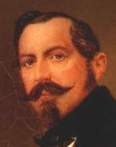
Oscar I |
Oscar I, in full Joseph François Oscar (b. July 4, 1799, Paris, France - d. July 8, 1859, Stockholm, Sweden), king of Sweden and Norway (1844-59). When his father, the French marshal Jean-Baptiste Bernadotte, became Swedish crown prince in 1810 and King Carl XIV Johan in 1818, Oscar became prince and then crown prince. By his marriage (1823) with Josephine of Leuchtenberg, he had four sons (of whom two succeeded to his throne) and one daughter. As crown prince he was much influenced by liberal and progressive ideas, especially in connection with fiscal policy, freedom of the press, education, and penal reform. Despite his liberalism, his relations with his more conservative father remained good. After his accession in 1844 he furthered various reforms, such as instituting equal rights of inheritance for men and women (1845) and the right of unmarried women to come of age at 25 (1858); he became increasingly conservative in constitutional questions, especially after the 1848 revolutions elsewhere in Europe, and he sought to emulate Napoléon III. In foreign affairs he reversed his father's pro-Russian policy. He supported Denmark against the Germans in 1848, sending Swedish and Norwegian troops to the Danish island of Fyn. During the Crimean War (1854-56) he made a treaty (1855) with Great Britain and France against Russia. He prepared an expedition to recover Finland but the peace of Paris in 1856 frustrated his design. He followed a strongly pan-Scandinavian policy. In 1857 he became ill, and for the next two years his functions were performed by his son, the future Carl XV.

Oscar II |
Oscar II, in full Oscar Fredrik (b. Jan. 21, 1829, Stockholm, Sweden - d. Dec. 8, 1907, Stockholm), king of Sweden (1872-1907) and Norway (1872-1905); son of Oscar I. As prince he was Duke of Östergötland. He married Sophie of Nassau in 1857 and had four sons. Associated with the navy from childhood, he always retained a special interest in its development and organization. He was an outstanding orator, loved music and literature, and himself published several books of verse and wrote on historical subjects. He succeeded to the throne on the death of his older brother, Carl XV, in 1872. In home politics a conservative, in foreign policy he favoured Scandinavian cooperation. He supported Germany, hoping that that country would provide a bulwark against Russia, and encouraged the Germanophile trend characterizing Swedish political and cultural life during his reign. During the struggle over customs duties in the 1880s his sympathies were with the free traders. In the 1890s he supported the efforts of Prime Minister Erik Gustaf Boström to strengthen Swedish military power. Much of his reign was taken up with friction between his two kingdoms of Sweden and Norway. He resisted Norwegian demands for full equality with Sweden and was much grieved when the conflict reached a state of crisis in 1905 and the Norwegian parliament declared the union dissolved. He refused to allow the use of force against the Norwegians but forbade any prince of his house to accept the Norwegian crown.
Osei-Adjei, Akwasi (b. Dec. 27, 1949), foreign minister of Ghana (2007-09).

Osei Tutu |
Osei Tutu II, Otumfuo Nana, original name Barima Kwaku Dua (b. May 6, 1950, Kumasi, Gold Coast [now Ghana]), ruler of Asanteman (Asantehene) (1999- ). He was adopted by his uncle Oheneba Mensah Bonsu, one of the chiefs of the court of the Manhyia Palace, who groomed him. Oheneba Mensah Bonsu did not send his nephew to the prestigious schools, such as Prempeh College or Opoku Ware where most of Asante royals schooled. Rather he was shipped off to Sefwi Wiawso, to live with the then Sefwi chief Nana Kwadwo Aduhene, who had him enrolled at the town's secondary school in 1964, but later returned to Kumasi to complete his A levels. Nana Duah moved to Accra in 1971, to pursue a course in accountancy at the Institute of Professional Studies, Legon. In 1973, he proceeded to the United Kingdom where he studied at the Kilburn polytechnic before enrolling at the University of North London for a diploma in management and public administration. He became a member of the Institute of Personnel Management in the U.K. in 1985. He worked as a finance officer at the food processing company Oxo in London and as personnel administrator at the manpower services commission attached to Brent Council. In 1980, he moved to Canada and worked for a year as a senior consultant with the Mutual of Omaha Insurance Company's sponsored course in insurance at the University of Toronto. He returned to Ghana in 1989 to set up his own business, Transpomech International Ghana Limited, of which he remains the executive director. After Otumfuo Opoku Ware II died on Feb. 25, 1999, Kwaku Dua became his successor under the stool name Otumfuo Osei Tutu II.
Oshima, Kenzo (b. May 14, 1943 - d. May 29, 2021), Japanese diplomat. He was ambassador to Australia (2003-04) and permanent representative to the United Nations (2004-07).
Oshiomhole, Adams (Aliyu) (b. April 4, 1953, Iyamoh [now in Edo state], Nigeria), governor of Edo (2008-16).
Osho, Pierre (b. May 5, 1945, Porto-Novo, Dahomey [now Benin]), foreign minister (1996-98), defense minister (1998-2006), and acting interior minister (2003) of Benin.
Osiatynski, Jerzy (Epaminondas) (b. Nov. 2, 1941, Riga, Latvia - d. Feb. 4, 2022, Warsaw, Poland), finance minister of Poland (1992-93). He was also minister-head of the Central Planning Office (1989-91).
Osipov, Aleksandr (Mikhailovich) (b. Sept. 28, 1969, Rostov-na-Donu, Russian S.F.S.R.), governor of Zabaikalsky kray (2018- ).
Osipov, Georgy (Ivanovich) (b. 1906, Tver, Russia - d. April 18, 1980, Moscow, Russian S.F.S.R.), first secretary of the Communist Party committees of the Komi A.S.S.R. (1948-57) and the Mordovian A.S.S.R. (1958-68).
Osipov, Grigory (Mikhailovich) (b. 1739 - d. March 7, 1802), governor of Siberia (1780-82), Tobolsk (1782-84), Tver (1784-93), and Belorussia (1796-1801) and governor-general of Smolensk and Pskov (1793-96).
Osis, Uldis (b. April 10, 1948, Riga, Latvian S.S.R.), finance minister of Latvia (1993-94).
Oskanyan, Vartan (Minasi), Vartan also spelled Vardan (b. Feb. 7, 1955, Aleppo, Syria), Armenian politician. He joined Armenia's Foreign Ministry in 1992, first as deputy head of the Middle East Department and then as head of the North American Department. In November 1994, he was appointed deputy foreign minister, and in January 1997, promoted to first deputy foreign minister. He headed Armenia's delegation to the Karabakh negotiations since 1994. In 1998-2008 he was foreign minister.
Osma (y Ramírez de Arellano), Ignacio de (b. Dec. 9, 1822, Lima, Peru - d. Aug. 10, 1893, Lima), interior, police, and public works minister of Peru (1884); brother of Joaquín José de Osma, Javier de Osma, and Juan Ignacio de Osma. He was also president of the Chamber of Deputies (1876-77) and mayor of Lima (1876, 1884-86).
Osma (y Ramírez de Arellano), Javier de (b. May 9, 1820, Lima, Peru - d. July 20, 1896), war minister of Peru (1884-85 [government of Miguel Iglesias], 1894); brother of Joaquín José de Osma.
Osma (y Ramírez de Arellano), Joaquín (Domingo) José (Esteban) de (b. Aug. 3, 1812, Lima, Peru - d. Feb. 5, 1896, Madrid, Spain), foreign minister of Peru (1852). He was also minister to the United States (1846-48, 1852-53) and the United Kingdom (1848-50) and president of the Chamber of Deputies (1851-52).
Osma (y Ramírez de Arellano), Juan Ignacio de (b. July 1, 1821, Lima, Peru - d. ...), Peruvian politician; brother of Joaquín José de Osma and Javier de Osma. He was chargé d'affaires (1848-50, 1850-52, 1853-54, 1855-56) and minister (1856-58) to the United States. In 1857 he was named minister of interior, worship, and public works, but did not take office.
Osma y Pardo, Felipe de (b. May 26, 1865, Lima, Peru - d. July 29, 1924, Lima), foreign minister of Peru (1900-01); grandson of Felipe Pardo y Aliaga. He was also minister to Bolivia (1901-04, 1916-17), Argentina (1904), Spain (1904-11), and Brazil (1917-19).
Osma y Pardo, Pedro de (b. Jan. 28, 1868, Lima, Peru - d. Nov. 10, 1936), Peruvian politician; brother of Felipe de Osma y Pardo. He was president of the Chamber of Deputies (1902-03) and mayor of Lima (1915-16).
Osma y Scull, Guillermo Joaquín de, conde de Valencia de Don Juan (b. Jan. 24, 1853, Havana, Cuba - d. Feb. 7, 1922, Biarritz, France), finance minister of Spain (1903-04, 1907-08); son of Juan Ignacio de Osma.
Osman, Abdillahi Said (b. 1939, Berbera, British Somaliland [now Republic of Somaliland] - d. Jan. 27, 2016, U.S.), Somali diplomat. He was permanent representative to the United Nations (1984-90).
Osman, Abdirahman Omar, byname Engineer Yarisow (b. 1966? - d. Aug. 1, 2019, Doha, Qatar), Somali politician. He lived in London after fleeing Somalia's civil war in 1991 and was a local councillor in Ealing. Returning to Somalia in 2008, he became minister of treasury (2009-10) and information (2010) and mayor of Mogadishu (2018-19). He died a week after being wounded in a suicide attack in the mayor's office in Mogadishu.
Osman, Abukar Dahir, Somali diplomat. He has been permanent representative to the United Nations (2017- ).
Osman, Ahmed, Arabic Ahmad `Uthman (b. Jan. 3, 1930, Oujda, Morocco), prime minister of Morocco (1972-79); brother-in-law of Hassan II. He was also ambassador to West Germany (1961-62) and the United States, Canada, and Mexico (1967-70) and president of the Chamber of Representatives (1984-92).
Osman, Babiker al-Nur (d. [executed] July 26, 1971), chairman of the Revolutionary Council of The Sudan (1971).
Osman, Daffa-Alla Elhag Ali (b. 1955, Sinja, Sudan), Sudanese diplomat. He was ambassador to Pakistan and Bangladesh (2004-10) and permanent representative to the United Nations (2010-13).
Osman, Rahamtalla Mohamed (b. 1953, Sudan), Sudanese diplomat. He was ambassador to Brazil (2004-08), Chile (2005-08), and Argentina and Venezuela (2006-08) and permanent representative to the United Nations (2014-15).
Osman, Sir (Abdool) Raman (Mahomed) (b. Aug. 29, 1902 - d. Nov. 16, 1992), governor-general of Mauritius (1972-77); knighted 1973.
Osman, Yacoub (b. 1912, Sudan), Sudanese diplomat. He was permanent representative to the United Nations (1956-59) and ambassador to the Soviet Union, Czechoslovakia, Poland, Hungary, and Bulgaria (1959-64) and Ethiopia (1964-69).
Osman (bin Haji) Aroff, Tan Sri (Dato' Seri Haji) (b. Nov. 23, 1940, Kampung Kelubi, Jitra, Kedah [now in Malaysia]), chief minister of Kedah (1985-96). He received the title Dato' in January 1980, Dato' Paduka in July 1983, Dato' Seri on Jan. 25, 1987, and Tan Sri on June 5, 1991.
Osman (bin) Sapian, Datuk (b. Dec. 24, 1951, Segamat, Johor, Malaya [now in Malaysia] - d. Dec. 21, 2021, Petaling Jaya, Selangor, Malaysia), chief minister of Johor (2018-19). He was awarded the title Dato' (commonly Datuk) in 2007.
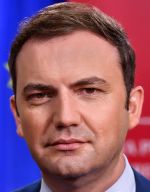
B. Osmani | 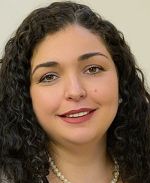
V. Osmani |
Osmani, Bujar (b. Sept. 11, 1979, Skopje, Macedonia [now North Macedonia]), foreign minister of North Macedonia (2020- ). He was also minister of health (2008-11) and deputy prime minister in charge of European affairs (2017-20).
Osmani(-Sadriu), Vjosa (b. May 17, 1982, Mitrovica, Kosovo, Serbia), president of Kosovo (2020-21 [acting], 2021- ). She was president of the Assembly in 2020-21.
Osmany, Mohammad Ataul Ghani (b. 1919, Sylhet, Bengal, India [now in Bangladesh] - d. Feb. 16, 1984, London, England), Bangladesh army officer. He served with the Indian Army during World War II, became a major at age 23, then joined the Pakistan Army after the partition of India in 1947. When the Awami League won the elections in East Pakistan in 1970, he took command of the Bangladesh guerrilla forces and after independence established the army of the new state. In 1973, after resigning from the Army and contesting the elections, he was appointed minister of defense but opposed plans for a one-party state. After Prime Minister Mujibur Rahman's assassination in 1975, Osmany became defense adviser before forming the National People's Party. He ran twice unsuccessfully for the presidency. A firm believer in parliamentary rule, he quarreled with Army Chief of Staff (later president) Hossain Mohammad Ershad's plan to give a greater political role to the Army.
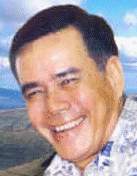
L. Osmeña |
Osmeña, Lito, byname of Emilio Mario Renner Osmeña (b. Sept. 11, 1938, Cebu City, Philippines - d. July 19, 2021, Cebu City), Philippine politician; grandson of Sergio Osmeña; nephew of Sergio Osmeña, Jr. He was governor of Cebu (1988-92), chief economic adviser (1993-97), and a presidential candidate (1998).

S. Osmeña |
Osmeña (y Suico), Sergio (b. Sept. 9, 1878, Cebú [now Cebu City], Philippines - d. Oct. 19, 1961, Manila, Philippines), president of the Philippines (1944-46). He served the Philippine revolution as a courier for its leader, Emilio Aguinaldo. After Spain's cession of the Philippines to the United States, the U.S. colonial administration appointed him governor of the province of Cebu and fiscal (district attorney) for the provinces of Cebu and Negros Oriental in 1904. He was elected governor of Cebu in 1906. In 1907 he was elected delegate to the National Assembly, the first Philippine legislature, and founded the Nationalist Party (Partido Nacionalista), which came to dominate Philippine political life. He lost the leadership of the party to Manuel Quezon in 1922. He was speaker of the Assembly (1907-16) and in its successor, the bicameral Congress, he was speaker of the House of Representatives (1916-22) and president pro tempore of the Senate (1922-34). In 1933 he went to Washington, D.C., to negotiate the provisions of the Hare-Hawes-Cutting independence bill, but Quezon objected to the bill's provision to retain U.S. military bases after independence, and blocked its ratification in the Philippines. It was superseded by the Tydings-McDuffie Act of 1934, making the Philippines a commonwealth with a large measure of autonomy. In 1935 Osmeña was elected vice president, with Quezon as president. After the Japanese occupation (1942), he followed Quezon into exile in Washington, D.C., and on the latter's death in August 1944, he succeeded as president. Returning to the Philippines in October, he was defeated in the April 1946 elections by Manuel Roxas, who became the first president of the independent Republic of the Philippines. He then retired from politics.
Osmeña, Sergio, Jr., byname Serging Osmeña (b. Dec. 4, 1916, Cebu City, Philippines - d. March 25, 1984, Los Angeles, Calif.), Philippine politician; son of Sergio Osmeña. He was governor of Cebu (1951-55), mayor of Cebu City (1955-71), and a presidential candidate (1969).
Osmeña, Tomas (dela Rama) (b. July 26, 1948, Manila, Philippines), Philippine politician; son of Sergio Osmeña, Jr.; cousin of Lito Osmeña. He was mayor of Cebu City (1988-95, 2001-10, 2016-19).
Osoba, Segun, byname of Aremo Olusegun Osoba (b. July 1, 1941), governor of Ogun (1992-93, 1999-2003).

Osóbka-Morawski |
Osóbka-Morawski, Edward (Boleslaw) (b. Oct. 5, 1909 - d. Jan. 9, 1997), prime minister (1944-47) and foreign minister (1944-45) of Poland.
Osondu, Christopher (Ibe), administrator of Cross River (1998-99).
Osores (Cabrera), Arturo (b. Feb. 10, 1868, Chota, Cajamarca, Peru - d. April 1, 1936, Lima, Peru), interior minister of Peru (1914). He was also minister of justice, education, and worship (1919) and a presidential candidate (1931).
Osorio, Albano de Souza, acting president of Mato Grosso (1857-58, 1866-67, 1868).
Osorio, Felipe, foreign minister of Peru (1867). He was also minister of justice, education, and worship (1867-68).
Osorio, José Francisco de Miranda (b. March 19, 1800, Oeiras, Piauí, Brazil - d. Dec. 15, 1877, Parnaíba, Piauí), acting president of Piauí (1872, 1873).
Osorio (García), José Ulises (b. June 14, 1864, San Juan Nepomuceno, Bolívar, Colombia - d. Oct. 29, 1933, Cartagena, Colombia), war minister (1922-23) and interior minister (1923-24) of Colombia. He was also governor of Bolívar (1909) and Atlántico (1928-30).
Osorio (Hernández), Óscar (b. Dec. 14, 1910, Sonsonate, El Salvador - d. March 6, 1969, Houston, Texas), president of El Salvador (1950-56). A professional soldier, he was exiled to Mexico in 1945, after being implicated in a conspiracy. He returned to El Salvador in 1948, after the overthrow of Pres. Salvador Castaneda Castro, and became a member of the Revolutionary Council of Government, which formed the Revolutionary Party of Democratic Unification (PRUD). He resigned in 1949 to run for the presidency as PRUD nominee in 1950. He defeated Col. José Ascencio Menéndez in the election. In office, he implemented centre-left reforms, including the legalization of labour unions and collective bargaining, the introduction of social security, improvement of housing, and promotion of tourism and light industrial development, through the Salvadoran Institute for Development of Production. Meanwhile, Communist opponents of the regime were rounded up and elections were rigged, leading to an opposition boycott of the 1956 presidential contest, which was won by his handpicked successor, Interior Minister José María Lemus.
Osorio, Pedro Leite (b. Nov. 22, 1852, Cuiabá, Mato Grosso, Brazil - d. Dec. 7, 1907, Rio de Janeiro, Brazil), acting president of Mato Grosso (1906-07).
Osorio Chong, Miguel Ángel (b. Aug. 5, 1964, Pachuca, Hidalgo, Mexico), governor of Hidalgo (2005-11) and interior minister of Mexico (2012-18).
Osorio Londoño, Néstor (b. Aug. 7, 1947, Bogotá, Colombia), Colombian diplomat. He was permanent representative to the United Nations (2010-14) and ambassador to the United Kingdom and Ireland (2014-19).
Osorno, Ambrosio O'Higgins, marqués de (b. 1720?, Ballynary, County Sligo, Ireland - d. March 18, 1801, Lima, Peru), governor of Chile (1788-96) and viceroy of Peru (1796-1801). He was created marqués in 1796.
Osorno (Arana), David (Nicolás) (b. 1845, Granada, Nicaragua - d. May 31, 1918, Granada), interior minister (1887-89) and acting president (1889) of Nicaragua.
Ospina (Bernal), Camilo (Alfonso) (b. Dec. 23, 1959, Bogotá, Colombia), defense minister of Colombia (2005-06).
Ospina (Vásquez), Pedro Nel (Ignacio Tomás de Villanueva) (b. Sept. 18, 1858, Bogotá, Granadine Confederation [now Colombia] - d. July 1, 1927, Medellín, Colombia), president of Colombia (1922-26); son of Mariano Ospina Rodríguez. He was also minister of war (1901), minister to the United States (1911-12) and Belgium (1915-18), and governor of Antioquia (1918-20).
Ospina Camacho, José Domingo (b. Jan. 9, 1843, Bogotá, New Granada [now Colombia] - d. March 1, 1908), interior minister (1888-89, 1895) and war minister (1890 [acting], 1893-94, 1900-01) of Colombia. He was also minister of education (1886-88), governor of Boyacá (1888), president of the Senate (1892-93), and acting governor of Cundinamarca (1895).
Ospina Pérez, (Luis) Mariano (b. Nov. 24, 1891, Medellín, Colombia - d. April 14, 1976, Bogotá, Colombia), president of Colombia (1946-50); son of Mariano Ospina Vásquez; nephew of Pedro Nel Ospina. He entered politics in 1915 as a Conservative and held many elective offices. He was minister of public works in 1926-27. At a time of developing interparty conflict, he was elected president but failed to check the growth of violence despite recourse to coalition government. The more moderate upper-class segment of the Conservative Party, of which Ospina was a major figure, commonly opposed the majority faction headed by Laureano Gómez, who succeeded him as president; the hostility between the two Conservative leaders presented a serious problem for the National Front government of Colombia.
Ospina Rodríguez, Mariano (b. Oct. 18, 1805, Guasca, New Granada [now in Colombia] - d. Jan. 11, 1885, Medellín, Colombia), president of New Granada (1857-61). He was also foreign and interior minister (1841-45) and governor of Antioquia (1845-47) and Cundinamarca (1847-49).
Ospina Vásquez, Mariano (b. 1869, Guatemala - d. Dec. 10, 1941, Bogotá, Colombia), war minister of Colombia (1910-11); son of Mariano Ospina Rodríguez; brother of Pedro Nel Ospina. He was also minister of education (1910).
Ossa Pretot, (Jaime) Sergio (b. Nov. 8, 1919, Viña del Mar, Chile - d. Sept. 22, 2012), defense minister of Chile (1969-70). He was also minister of public works and transport (1967-69) and ambassador to the Vatican (1990-95).
Osseiran, Adel (Abdullah) (b. June 5, 1905, Sidon, Mount Lebanon, Ottoman Empire [now in Lebanon] - d. June 18, 1998, Sidon), Lebanese politician. He was speaker of parliament (1953-59) and minister of provisions, commerce, and economy (1943-44), interior (1969), justice (1969-70, 1974-75, 1975-76), public works and economy (1975-76), education and planning (1976), and defense and agriculture (1984-89).

Ossouka | 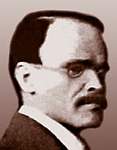
Ostapenko |
Ossouka Raponda, Rose Christiane (b. 1964, Libreville, Gabon), budget minister (2012-14), defense minister (2019-20), prime minister (2020-23), and vice president (2023- ) of Gabon. She was also mayor of Libreville (2014-19).
Osswald, Albert (b. May 16, 1919, Wieseck [now part of Giessen], Hessen, Germany - d. Aug. 16, 1996, Schwangau, Bayern, Germany), minister-president of Hessen (1969-76).
Ostapciuc, Eugenia (b. Oct. 19, 1947, Fîntînita, Moldavian S.S.R.), Moldovan politician. She was chairman of parliament (2001-05).
Ostapenko, Serhiy (Stepanovych) (b. 1881, Volyn province, Russia [now in Ukraine] - d. [executed] 1937), chairman of the Council of Ministers of the non-Communist Ukraine (1919). He was also minister of trade and industry (1918-19).

Ostashek |
Ostashek, John (b. 1936, High Prairie, Alberta - d. June 10, 2007, Vancouver, B.C.), government leader of Yukon Territory (1992-96). He was elected leader of the Yukon Party in 1992 and took his party to victory later that year. He refused to use the title of premier, reverting instead to the former term of government leader. His minority government managed to stay in power with the support of right-leaning independent MLAs. His party lost the 1996 election to the New Democratic Party, although Ostashek himself held on to his seat, becoming leader of the opposition. When the Liberals swept to power in the 2000 election, Ostashek lost his own Whitehorse riding of Porter Creek North. He stepped down as leader and retired from politics but remained an outspoken critic of successive governments, including the governing Yukon Party.
Ostaszewski, Henryk Kazimierz (b. May 20, 1892, Lemberg, Austria [now Lviv, Ukraine] - d. March 25, 1957, Grenoble, France), governor of Bialostockie województwo (1937-39).
Osten genannt Sacken, Gustaf Adolf friherre von der (b. Feb. 2, 1636, Korssäter, Östergötland, Sweden - d. Feb. 10, 1716, Lagerlunda, Östergötland), governor of Gotland (1689-1708). He became friherre (baron) in 1696.
Osten-Saken, Baron Maksimilian (Aleksandrovich fon der), (b. Feb. 14, 1833, St. Petersburg, Russia - d. Dec. 29?, 1884, Tiflis, Russia [now Tbilisi, Georgia]?), governor of Stavropol (1873-76) and Tiflis (1876-77).
Österberg, Sven-Erik (b. March 10, 1955, Munktorp, Västmanland, Sweden), governor of Norrbotten (2012-18) and Stockholm (2018-23). He was also Swedish minister of local government and financial markets (2004-06).
Østergaard, Knud (Charles Elvig) (b. March 21, 1922, Copenhagen, Denmark - d. Nov. 27, 1993), defense minister of Denmark (1971). He was also minister of transport (1989-90).
Østergaard (Stigel), Morten (b. June 17, 1976, Århus [now Aarhus], Denmark), economy and interior minister of Denmark (2014-15). He was also minister of research, innovation, and higher education (2011-14) and taxation (2014) and leader of Radikale Venstre (2014-20).
Östergren, August (b. May 28, 1832, Svarttorp, Jönköping, Sweden - d. Oct. 22, 1914, Stockholm, Sweden), justice minister of Sweden (1889-96).
Osterling Parodi, Felipe (Enrique) (b. May 14, 1932, Lima, Peru - d. Aug. 30, 2014, Lima), justice minister of Peru (1980-81). He was also president of the Senate (1991-92).
Osterman, Graf (Count) Andrey (Ivanovich), original German name Heinrich Johann Friedrich Ostermann (b. July 9, 1687, Bochum, Brandenburg [now in Nordrhein-Westfalen, Germany] - d. May 31 [May 20, O.S.], 1747, Berezov, Tobolsk province, Russia), member of the Supreme Privy Council of Russia (during throne vacancy 1730). He was also vice chancellor (1725-41) and president of the Collegium of Foreign Affairs (1734-40). He was created a baron in 1721 and a count in 1730.
Osterman, Graf (Count) Ivan (Andreyevich) (b. April 25, 1725, St. Petersburg, Russia - d. April 18, 1811, Moscow, Russia), president of the Collegium of Foreign Affairs (1781-97) and chancellor (1796-97) of Russia; son of Andrey Osterman. He was also ambassador to Sweden (1760-74).
Österreich, Rainer (Ferdinand Maria Johann Evangelist Franz Hygin), Erzherzog von (archduke of Austria) (b. Jan. 11, 1827, Milan, Austria [now in Italy] - d. Jan. 27, 1913, Vienna, Austria), prime minister of Austria (1861-65); grandson of Leopold II; nephew of Franz II.
Ostojic, Ranko (b. Oct. 3, 1962, Split, Croatia), interior minister of Croatia (2011-16).
Ostria Gutiérrez, Alberto (b. Feb. 6, 1897, Sucre, Bolivia - d. 1967), foreign minister of Bolivia (1939-41). He was also chargé d'affaires in Spain (1922-26), minister to Peru (1928-29), Ecuador (1930-31), and Brazil (1937-39), and ambassador to Chile (1941-43, 1945-52).
Östring, Lars (Anders) (b. Jan. 27, 1946, Askersund, Örebro, Sweden), acting governor of Örebro (1994-95, 2004).
Ostrogradsky, Mikhail (Aleksandrovich) (b. May 22 [May 10, O.S.], 1857 - d. Jan. 14, 1923, Wiesbaden, Germany), acting industry and commerce minister of Russia (1907-08).
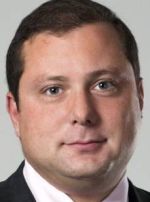
A. Ostrovsky |
Ostrovsky, Aleksey (Vladimirovich) (b. Jan. 14, 1976, Moscow, Russian S.F.S.R.), governor of Smolensk oblast (2012-23).
Ostrovsky, Mikhail (Nikolayevich) (b. April 11 [March 30, O.S.], 1827, Moscow, Russia - d. Aug. 7 [July 25, O.S.], 1901, St. Petersburg, Russia), Russian minister of state properties (1881-93). He was a brother of the playwright Aleksandr Ostrovsky.
Ostrowski, Józef (August) hrabia (Count), h. Korab (b. Jan. 21, 1850, Maluszyn, Russia [now in Poland] - d. June 20, 1923, Maluszyn), member of the Regency Council of Poland (1917-18).
Ostrowski, Otto (b. Jan. 28, 1883, Spremberg, Brandenburg province, Prussia [now in Brandenburg state], Germany - d. June 19, 1963, Knokke, Belgium), lord mayor of Berlin (1947).
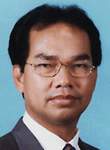
Osu |
Osu (bin Haji) Sukam, Datuk Seri (Panglima Haji) (b. Feb. 5, 1949), chief minister of Sabah (1999-2001). He received the titles Datuk (Sept. 16, 1994) and Datuk Seri Panglima (Sept. 16, 1997).
Osuna Millán, José Guadalupe (b. Dec. 10, 1955, Aguacaliente de Gárate, Sinaloa, Mexico), governor of Baja California (2007-13). He was also mayor of Tijuana (1995-98).
Osunbor, Oserheimen (Aigberaodion) (b. Oct. 5, 1951, Iruekpen [now in Edo state], Nigeria), governor of Edo (2007-08).
Osvald, (Nils Olof) Peter (b. March 2, 1939), Swedish diplomat. He was ambassador to Zimbabwe (1988-90) and Ireland (1997-2002) and permanent representative to the United Nations (1992-97).

Oszkó |
Oszkó, Péter (b. March 22, 1973, Budapest, Hungary), finance minister of Hungary (2009-10).
Ota, Fusae (b. June 26, 1951), governor of Osaka (2000-08).
Ota, Masahide (b. June 12, 1925, Kume island, Okinawa prefecture, Japan - d. June 12, 2017, Naha, Okinawa), governor of Okinawa (1990-98).
Otaibi, Mansur (Ayyad) al- (b. Dec. 9, 1966, Kuwait), Kuwaiti diplomat. He was permanent representative to the United Nations (2010-22).
Otakhonov, Foziljon (Khaydarovich) (b. April 18, 1959, Fergana oblast, Uzbek S.S.R.), justice minister of Uzbekistan (2006-07).
Otálora (Martínez), José Eusebio (b. Dec. 16, 1828, Fómeque, Cundinamarca, New Granada [now Colombia] - d. May 8, 1884, Tocaima, Cundinamarca), president of Colombia (1882-84). He was also president of Boyacá (1878-82).
Otáñez (Martínez), Aureliano (b. Oct. 18, 1911, Paris, France - d. Jan. 17, 1975, Caracas, Venezuela), foreign minister of Venezuela (1952-56).
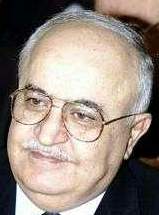
Otari |
Otari, Muhammad Naji al-, Arabic Muhammad Naji al-`Utari (b. 1944, Aleppo, Syria), prime minister of Syria (2003-11). Earlier (from March 9, 2003) he was speaker of parliament.
Otárola (Peñaranda), (Luis) Alberto (b. Feb. 13, 1967, Huaraz, Áncash, Peru), defense minister (2011-12, 2022) and prime minister (2022- ) of Peru; brother of Fredy Otárola.
Otárola (Peñaranda), Fredy (Rolando) (b. May 5, 1961, Huaraz, Áncash, Peru), justice minister of Peru (2015). He was also president of Congress (2013-14) and minister of labour and promotion of employment (2014-15).
Otchertsov, Valery (Georgiyevich) (b. June 28, 1945, Kirensk, Irkutsk oblast, Russian S.F.S.R. - d. Feb. 20, 2021, Moscow, Russia), economy and finance minister of Turkmenistan (1995-96). He was also a deputy prime minister (1992-96).
Otedola, Sir Michael (Agbolade) (b. July 16, 1926, Odoragunshin [now in Lagos state], Nigeria - d. May 5, 2014), governor of Lagos (1992-93). He was made a knight of the Order of St. Sylvester by Pope Paul VI in 1974.
Otero, Miguel Antonio (b. June 21, 1829, Valencia, Nuevo México, Mexico [now in New Mexico, U.S.] - d. May 30, 1882, Las Vegas, N.M.), U.S. politician. He was territorial secretary of New Mexico (1861), after having declined an offer to be appointed minister to Spain.
Otero, Miguel Antonio (b. Oct. 17, 1859, St. Louis, Mo. - d. Aug. 7, 1944, Santa Fe, N.M.), governor of New Mexico (1897-1906); son of the above.
Otero Lathrop, (Jorge) Miguel (b. July 9, 1930, Santiago, Chile), Chilean diplomat. He was ambassador to Argentina (2010).
Otero Mujica, Luis (b. March 13, 1879, Putaendo, Chile - d. Nov. 27, 1938, Santiago, Chile), war and aviation minister of Chile (1932). He was also commander-in-chief of the army (1932).
Oteyza (Fernández), José Andrés de (b. Nov. 21, 1942, Mexico City, Mexico), Mexican politician. He was minister of national patrimony and industrial development (1976-82) and ambassador to Canada (1983-87).
Othman (bin Mohd) Saat, Tan Sri (b. April 4, 1927, Kampung Tengah, Muar, Johor [now in Malaysia] - d. Oct. 27, 2007, Johor Bahru, Johor), chief minister of Johor (1967-82). He received the title Dato' on Oct. 28, 1965, and Tan Sri on June 4, 1975.
Othon, German in full Otto Friedrich Ludwig (b. June 1, 1815, Salzburg, Austria - d. July 26, 1867, Bamberg, Bavaria [Germany]), king of Greece (1833-62); son of Ludwig I.

Oti |
Oti, (John) Patteson (b. Jan. 17, 1956), foreign minister of the Solomon Islands (1997-2000, 2006-07). He has also been minister for communication, aviation, and meteorology (2004-05), deputy prime minister (2007), high commissioner to Fiji (2012-18) and Vanuatu (2016-18), and speaker of parliament (2019- ).
O'Toole, Erin (Michael) (b. Jan. 22, 1973, Montreal, Que.), Canadian politician. He was minister of veterans affairs (2015) and leader of the Conservative Party (2020-22).
O'Toole, Paddy, byname of Patrick O'Toole, Irish Padráig Ó Tuathail (b. Jan. 15, 1938), defence minister of Ireland (1986-87). He was also minister of Gaeltacht (1981-82, 1982-87), fisheries and forestry (1982-86, 1987), and tourism (1987).
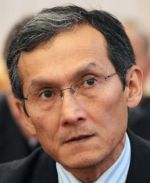
Otorbayev |
Otorbayev, Joomart (Kaipovich) (b. Aug. 18, 1955, Frunze, Kirgiz S.S.R. [now Bishkek, Kyrgyzstan]), prime minister of Kyrgyzstan (2014-15). He was a deputy prime minister in 2011-12 and first deputy prime minister in 2012-14.
Ott, Harry (b. Oct. 15, 1933, Chemnitz, Germany - d. June 24, 2005, Berlin, Germany), East German diplomat. He was ambassador to the Soviet Union (1974-81) and permanent representative to the United Nations (1982-88).
Otter, Fredrik Wilhelm friherre von (b. April 11, 1833, Fägre, Skaraborg [now in Västra Götaland], Sweden - d. March 9, 1910, Karlskrona, Sweden), prime minister of Sweden (1900-02). He was also minister of sea defense (1874-80).
Otter, Salomon friherre von (b. Oct. 11, 1647, Örebro, Sweden - d. Nov. 23, 1732, Karlskrona, Sweden), governor of Blekinge (1719-29). He was ennobled in 1691 and made friherre (baron) in 1719.
Otter, Salomon friherre von (b. Dec. 9, 1733, Dala socken, Skaraborg [now in Västra Götaland], Sweden - d. Jan. 14, 1781, Halmstad, Halland, Sweden), governor of Halland (1776-81); grandson of the above.
Ottesen, Peder Martinius (b. Sept. 17, 1782, Høiland [now part of Sandnes municipality], Stavanger amt [now Rogaland fylke], Norway - d. March 18, 1852, Christiania [now Oslo], Norway), governor of Stavanger amt (1826-28). He was also mayor of Christiania (1828-37).
Otto, Caleb (Tyndale Okauchi) (b. May 19, 1943, Peleliu, Palau), Palauan diplomat. He was permanent representative to the United Nations (2013-17).
Otto, John E. (b. Dec. 18, 1938), acting director of the U.S. Federal Bureau of Investigation (1987).
Ottoni, Carlos Honorio Benedicto (b. April 20, 1846, Serro, Minas Gerais, Brazil - d. July 19, 1919, Belo Horizonte, Minas Gerais), president of Ceará (1884-85).
Otunbayev, Bolot (Isakovich) (b. March 9, 1965), Kyrgyz diplomat; brother of Roza Otunbayeva. He was ambassador to Germany, Sweden, Denmark, Norway, and the Vatican (2012-15), Russia (2016-19), the United States (2019-21), and Canada (2020-21).
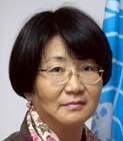
Otunbayeva |
Otunbayeva, Roza (Isakovna) (b. Aug. 23, 1950, Osh, Kirgiz S.S.R.), foreign minister (1992, 1994-97, 2005) and president (2010-11) of Kyrgyzstan. In 1981 she became a functionary for the Communist Party of the Soviet Union (CPSU) in the Kirgiz capital, Frunze (now Bishkek). In 1986, she was appointed deputy chair of the Kirgiz S.S.R. Council of Ministers, and then republican foreign minister. In 1989-91, she worked at the Soviet Ministry of Foreign Affairs in Moscow. After serving as Soviet/Russian ambassador to Malaysia and Brunei in 1991-92, she returned to Kyrgyzstan and alternated spells as foreign minister with diplomatic postings as ambassador to the U.S. and Canada (1992-94) and to the U.K. (1997-2002). In May 2002, she was named assistant to the UN secretary-general's special representative for the conflict in Abkhazia. In that post, she witnessed firsthand the protests in Georgia in November 2003 that precipitated the ouster of Pres. Eduard Shevardnadze. Following the completion of her assignment in Tbilisi, she returned to Bishkek in summer 2004. In December 2004, she founded the Ata-Zhurt (Fatherland) political movement, together with three other opposition parliamentarians. She hoped to run in Feb. 27, 2005, parliamentary elections as a candidate for Ata-Zhurt, but she was refused registration on the grounds that she had not lived in Kyrgyzstan for the entire five years prior to the vote. Interviewed a few days before the ballot, she accused Pres. Askar Akayev of having devalued the term "democracy" to such an extent that the population of Kyrgyzstan "just wants to leave." After the revolution that followed the election, she again became foreign minister, but was rejected by parliament when she was renominated by elected president Kurmanbek Bakiyev in September. When Bakiyev was driven from power in a 2010 uprising, she emerged as head of a provisional government, which subsequently named her president for a transitional period until the end of 2011. In 2022 she was appointed UN special envoy to Afghanistan.
Otunnu, Olara (A.) (b. September 1950, Mucwini, Kitgum district, Uganda), foreign minister of Uganda (1985-86). He was also permanent representative to the United Nations (1980-85). Leaving Uganda in 1986, he returned for the first time in 2009. In 1997-2005 he served as UN undersecretary-general for children and armed conflict. In 2011 he was a presidential candidate.
Ou, Francisco (H.L.) (Ou Hung-lien) (b. Jan. 5, 1940, Taiwan - d. Oct. 30, 2021), foreign minister of Taiwan (2008-09). He was ambassador to Nicaragua (1984-85) and Guatemala (1990-96, 2003-08).
Oualalou, Fathallah (b. March 26, 1942, Rabat, Morocco), finance minister of Morocco (1998-2007). He was also minister of economy (1998-2002), tourism (2000-02), and privatization (2002-07) and mayor of Rabat (2009-15).
Ouane, Moctar (b. Oct. 11, 1955, Bidi village, Bandiagara cercle, central French Sudan [now Mali]), foreign minister (2004-11) and interim prime minister (2020-21) of Mali. He was also permanent representative to the United Nations (1995-2002).
Ouassénan Koné, Gaston (b. April 24, 1939, Katiola, Ivory Coast [now Côte d'Ivoire]), Ivorian politician. He was minister of internal security (1976-83) and security (1993-96) and ambassador to Argentina, Chile, and Uruguay (1983-90).
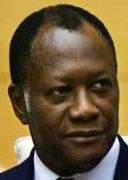
A. Ouattara |
Ouattara, Alassane (Dramane) ("ADO") (b. Jan. 1, 1942, Dimbokro, Ivory Coast [now Côte d'Ivoire]), prime minister (1990-93) and president (2010- ) of Côte d'Ivoire. When he originally planned to run for president, Pres. Robert Guéi's military government in July 2000 tightened the nationality criteria for presidential candidates, declaring that candidates must have two Ivorian parents, and must never have held the nationality of any other country. Ouattara insisted his ancestry was fully Ivorian, and his lawyers said genetic tests had shown that he was the son of an Ivorian woman - contradicting his opponents who said that his mother was from Burkina Faso. Under the terms of an April 2005 agreement he was allowed to stand in the presidential elections planned for 2006, and on Jan. 26, 2006, he returned from more than three years of exile in France. But as the country's political impasse continued, the elections were repeatedly postponed. Under a March 2007 agreement, he was to be included in a five-man consultative committee on the peace process. The elections finally took place in 2010, and it appeared that he defeated incumbent Laurent Gbagbo in the November runoff, but the Constitutional Council overruled the electoral commission in favour of Gbagbo. The international community widely recognized Ouattara as winner, and he had himself sworn in as president, but Gbagbo held onto power in the south until Ouattara's forces launched a major offensive in March 2011 and, with French and UN forces intervening on Ouattara's side, took control of the de facto capital Abidjan and captured Gbagbo in April. In 2012-14 Ouattara was chairman of the Economic Community of West African States. He was reelected as president in 2015 and 2020.
Ouattara, Bafetigué, Ivorian diplomat. He has been chargé d'affaires at the United Nations (2015) and ambassador to Canada (2021- ).
Ouattara, Téné Birahima, byname Photocopie (because of the resemblance to his brother) (b. 1955?), defense minister of Côte d'Ivoire (2021- ); brother of Alassane Ouattara. He was also minister of presidential affairs (2012-21).
Ouattara, Yaya (b. Oct. 17, 1938, Bondoukou, Ivory Coast [now Côte d'Ivoire]), Ivorian politician. He was minister of social affairs (1981-90) and youth and sports (1989-90).
Ouch Borith (b. Nov. 2, 1957, Phnom Penh, Cambodia), Cambodian diplomat. He was ambassador to Vietnam (1990-92) and chargé d'affaires (1992-93) and permanent representative (1998-2004) to the United Nations.
Oueddei, Goukouni, Arabic Gukuni Wodeimi (b. 1944, Zouar, Chad), president of Chad (1979-82). He was one of the few sons of the Derdei, the spiritual and religious leader of the Toubou, who survived the civil war that began in 1967 in protest against the excesses of Pres. N'Garta Tombalbaye's government police. Oueddei indirectly shared his father's prestige; the latter's authority was unchallenged until his death, though he was for a time an exile in Libya. Oueddei's political career started in November 1976, when the Toubou guerrilla fighters of the National Liberation Front (Frolinat) chose him as their leader to replace his main rival, Hissène Habré. An ardent nationalist, Oueddei asserted Chad's independence from interference by Nigeria, Sudan, Libya, and France, while attempting to use France to counter all the other foreign countries involved. In March 1979 he was appointed president of the new Provisional State Council and then, in May, minister of state responsible for the interior. On August 21 the leaders of the 11 principal political and ethnic factions, meeting in Lagos, Nigeria, signed an agreement on national reconciliation. Oueddei, who represented the Popular Armed Forces, one of the three major combatant groups, was to become president of a "Transitional Government of National Union" - the name being a clear indication of the extreme fragility of the country's political institutions. On September 3 an interim committee headed by Oueddei was set up to assure day-to-day government while negotiations proceeded. Finally, after a six-day gathering at Douguia, the composition of the new government was agreed upon on November 10. He was overthrown by Habré in 1982. Since then he lives in exile in Algiers, Algeria, except for a brief return in 1993 to take part in the Sovereign National Conference.
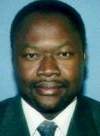
Ab. Ouedraogo | 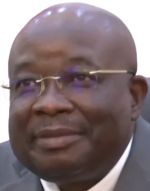
Al. Ouedraogo |
Ouedraogo, Ablassé (b. June 30, 1953), foreign minister of Burkina Faso (1994-99). In 1999-2002 he was a deputy director-general of the World Trade Organization. He was a minor presidential candidate in 2015.
Ouedraogo, Albert (b. April 6, 1969, Dori, Upper Volta [now Burkina Faso]), prime minister of Burkina Faso (2022).
Ouedraogo, Arzouma (b. 1916, Ouahigouya, Upper Volta [now Burkina Faso]), interior minister (1966-67) and defense minister (1967-71) of Upper Volta.
Ouedraogo, Gaëtan Rimwanguiya (b. 1948, Upper Volta [now Burkina Faso]), Burkinabe diplomat. He was permanent representative to the United Nations (1989-98) and ambassador to the United States (1993-98).
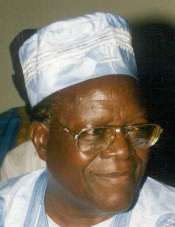
G.K. Ouedraogo | 
J.-B. Ouedraogo |
Ouedraogo, Gérard Kango (b. Sept. 19, 1925, Ouahigouya, Upper Volta [now Burkina Faso] - d. July 1, 2014, Ouagadougou, Burkina Faso), finance minister (1958-59) and prime minister (1971-74) of Upper Volta. He was also ambassador to the United Kingdom (1961-66) and president of the National Assembly (1978-80).
Ouedraogo, Jean-Baptiste (b. June 30, 1942, Kaya, Upper Volta [now Burkina Faso]), president (and minister of defense and veterans' affairs) of Upper Volta (1982-83).
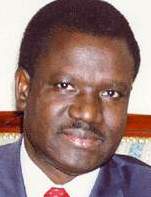
K.D. Ouedraogo | 
Y. Ouedraogo |
Ouedraogo, Kadré Désiré (b. 1953, Boussouma, Sanmatenga province, Upper Volta [now Burkina Faso]), prime minister of Burkina Faso (1996-2000) and president of the Commission of the Economic Community of West African States (2012-16). In 2001-12 he was ambassador in Brussels.
Ouedraogo, Youssouf (b. Dec. 25, 1952, Tikaré, Upper Volta [now Burkina Faso] - d. Nov. 18, 2017, Abidjan, Côte d'Ivoire), prime minister (1992-94) and foreign minister (1999-2007) of Burkina Faso. He was also minister of planning and popular development (1984-87), cooperation (1987-88), and planning and cooperation (1988-89) and ambassador to Belgium (1994-99).
Ouellet, André (b. April 6, 1939, Saint-Pascal, Que.), foreign minister of Canada (1993-96). He was also postmaster general (1972-74, 1980-81) and minister of consumer and corporate affairs (1974-76, 1980-83), labour (1978 [acting], 1983-84), and public works (1978-79).
Oufkir, Mohamed (b. 1920, Ain Cheikh, Morocco - d. [suicide?] Aug. 16, 1972, Skhirat, Morocco), interior minister (1964-71) and defense minister (1971-72) of Morocco.
Ouko, Robert (John) (b. March 31, 1932, Kisumu, Kenya - d. [assassinated] Feb. 13, 1990, near Koru, Kenya), foreign minister of Kenya (1979-83, 1988-90). He was also minister of economic planning and community affairs (1978-79), labour (1983-85), planning and national development (1985-87), and industry (1987-88).
Ouloto, Anne Désirée (b. April 20, 1966, Abidjan, Ivory Coast [now Côte d'Ivoire]), Ivorian politician. She has been minister of urban sanitation (2011-12, 2016-17), solidarity, family, women, and children (2012-16), environment and sustainable development (2017-18), sanitation (2018-21), and civil service and modernization of administration (2021- ).
Oum Chheang Sun (b. June 1, 1900, Kompong Cham, eastern Cambodia - d. 19...), prime minister of Cambodia (1951, 1956). He was also defense minister (1951), public health minister (1955), and interior minister (1956).
Oumarou, Ide (b. 1937, N'Dounga, Niger - d. Feb. 12, 2002, Niamey, Niger), foreign minister of Niger (1983-85) and secretary-general of the Organization of African Unity (1985-89). He was also permanent representative to the United Nations (1979-83) and was known as a novelist.
Oumarou, Mamane (b. 1945, Diffa, Niger), prime minister of Niger (1983, 1988-89). He was also mayor of Maradi (1976-81), minister of youth, sports, and culture (1981-83), president of the National Development Council (1983-87), ambassador to Canada (1988), Egypt (1990-96), and Saudi Arabia (1996-98), and mediator of the republic (2008-10).

S. Oumarou | 
Ounaïes |
Oumarou, Seyni, also spelled Seini (b. Aug. 9, 1950, Tillabéri, Niger), prime minister of Niger (2007-09). He was also minister of commerce (1999-2004) and equipment (2004-07) and president of the National Assembly (2009-10). He was a presidential candidate in 2011, 2016, and 2020.
Ounaïes, Ahmed (Abderraouf) (b. Jan. 25, 1936, Tunis, Tunisia), foreign minister of Tunisia (2011). He was ambassador to India (1981-87; also accredited to Sri Lanka from 1981, Vietnam from 1983, and the Maldives from 1984) and to the Soviet Union (1987-90).
Õunapuu, Harri (b. Feb. 2, 1947, Sangaste, Estonian S.S.R.), finance minister of Estonia (2002-03). He was also governor of Rapla county (1989-91) and minister of agriculture (1991-92).
Ouro Preto, Afonso Celso de Assis Figueiredo, visconde de (b. Feb. 21, 1836, Ouro Preto, Minas Gerais, Brazil - d. Feb. 21, 1912, Petrópolis, Rio de Janeiro, Brazil), chairman of the Council of Ministers of Brazil (1889). He was also minister of navy (1866-68) and finance (1879-80, 1889). He was made viscount in 1888.
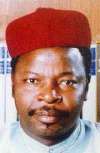
Ousmane |
Ousmane, Mahamane (b. Jan. 20, 1950, Zinder, Niger), president of Niger (1993-96). He led the movement that forced Ali Saibou's government to agree to democratic elections. He became head of the Democratic and Social Convention opposition party and was adopted as its presidential candidate in November 1992. In the March 1993 election he defeated Mamadou Tandja. In 1995 the opposition won parliamentary elections, leading to a months-long standoff with Prime Minister Hama Amadou. Both were briefly arrested following a military coup in January 1996 when Col. Ibrahim Baré Maïnassara took over to end what he called the "absurd crisis." In flawed presidential elections in July 1996, Ousmane lost to Maïnassara. Along with Mahamadou Issoufou and Mamadou Tandja, he was detained for 10 days in January 1997 when an opposition demonstration was broken up. In 1999-2009 he was president of the National Assembly. He was again an unsuccessful presidential candidate in 1999, 2004, 2011, and 2016.
Ousmane Mey, Alamine (b. Feb. 26, 1966, Kousseri, Cameroon), finance minister of Cameroon (2011-18). He became minister of economy, planning, and territorial development in 2018.
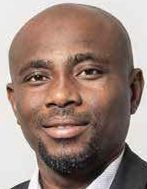
Ousseni |
Ousseni, Ben Issa (b. July 11, 1973), president of the Departmental Council of Mayotte (2021- ).
Oustry, Louis (b. Feb. 9, 1822, Rodez, Aveyron, France - d. March 14, 1888, Chartres, Eure-et-Loir, France), prefect of Seine département (1882-83). He was also prefect of Aveyron (1870-71), Aude (1871-72), Corrèze (1872), Alger (1872-73), Vosges (1876-77), Dordogne (1877-79), and Rhône (1879-82).
Outlule, Samuel Otsile (b. July 8, 1957), Botswanan diplomat. He has been permanent representative to the United Nations (2005-08) and ambassador to Belgium, France, Germany, Italy, the Netherlands, and Luxembourg (2011- ).
Outrata, Eduard (b. March 7, 1898, Tschaslau, Austria [now Cáslav, Czech Republic] - d. June 8, 1958, Prague, Czechoslovakia [now in Czech Republic]), finance minister of Czechoslovakia in exile (1940-41).
Outrey, (Antoine Georges Amédée) Ernest (b. Aug. 11, 1863, Constantinople, Ottoman Empire [now Istanbul, Turkey] - d. Oct. 7, 1941, Saint-Germain-le-Guillaume, Mayenne, France), resident-superior of Laos (1910-11) and Cambodia (1911-14).

Ouyahia |
Ouyahia, Ahmed, Arabic Ahmad Uyahya (b. July 2, 1952, Bouadnane village [now in Tizi Ouzou province], Algeria), prime minister of Algeria (1995-98, 2003-06, 2008-12, 2017-19). He worked for four years in the presidency office under Pres. Houari Boumedienne. He moved in 1979 to the foreign ministry as director of the Africa department before being posted to the Algerian embassy in Abidjan in 1981. Three years later he was appointed a diplomat in Algeria's mission to the United Nations, later becoming his country's deputy representative in the Security Council. He returned to the foreign ministry in 1989 to be named as adviser of the minister until August 1992 when he was appointed head of Algerian mediators in Mali, where he brokered an accord to end the bloody conflict between Tuareg rebels and the Malian government. He became ambassador in Mali to ensure implementation of the accord before moving in September 1993 to the job of state secretary for cooperation and Maghreb affairs. He held this position until February 1994 when he was appointed head of the president's cabinet. In 1995 he became the first non-military Berber-speaker prime minister of Algeria (previously the former head of military intelligence Kasdi Merbah was the only prime minister known to be from the northeastern Kabylie Berber area). He resigned in 1998; major opposition parties had demanded his dismissal, accusing him of having failed to stop what they called widespread cheating in favour of the main ruling National Democratic Rally party in 1997 local elections. Foes also held him responsible for the government's failure to end rampant armed violence involving Islamist militants. The main labour unions vilified him for closing down more than 1,000 ailing state-owned companies. In 1999 he became justice minister, in 2002 minister of state (special representative of the president), and he served three times again as prime minister.
Ovalle (Ovalle), Abraham (Alberto) (b. 1860, Santiago, Chile - d. 1933), interior minister of Chile (1912). He was also minister of industry, public works, and railways (1906, 1912).
Ovalle (Bezanilla), Francisco Javier (b. May 10, 1816, Santiago, Chile - d. June 9, 1873, Santiago), foreign and interior minister of Chile (1856-57); son of José Tomás Ovalle. He was also minister of justice, worship, and education (1855-57) and president of the Chamber of Deputies (1859-61).
Ovalle (Bezanilla), José Tomás (b. 1788 [or possibly Dec. 21, 1787], Santiago, Chile - d. March 21, 1831, Santiago), president of the Junta (1829-30) and acting president (1830-31) of Chile.
Ovalle (Errázuriz), Matías (b. 1822, Santiago, Chile - d. July 3, 1899, Santiago), finance minister of Chile (1858-59).
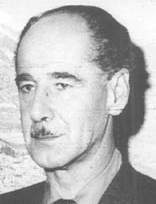
Ovando |
Ovando Candía, Alfredo (b. April 6, 1918, Cobija, Pando, Bolivia - d. Jan. 24, 1982, La Paz, Bolivia), Bolivian politician. Ovando, who became a soldier in the army in 1936, was credited with rebuilding the country's armed forces after their dissolution in 1952. He served as co-president in 1965-66 with Gen. René Barrientos after they overthrew Pres. Víctor Paz Estenssoro. He was commander in chief of the military campaign during which Che Guevara, the Cuban revolutionary, was captured and executed in 1967. Ovando became president again in 1969 when he ousted the constitutional civilian president, Luis Adolfo Siles Salinas, in a bloodless military coup. In 1970 Ovando resigned under pressure from the military. He became ambassador to Spain (1970-71) and remained in exile until 1978.
Ovchinnikova, Aleksandra (Yakovlevna) (b. Jan. 7, 1915 [Dec. 25, 1914, O.S.], Nyurbinsky nasleg [village], Yakutsk oblast [now in Sakha republic], Russia - d. June 8, 2009, Yakutsk, Sakha, Russia), chairman of the Presidium of the Supreme Soviet of the Yakut A.S.S.R. (1963-79).
Oven, Julius Christiaan van (b. Nov. 17, 1881, Dordrecht, Netherlands - d. March 16, 1963, Leiden, Netherlands), justice minister (1956) and acting interior minister (1956) of the Netherlands.
Overby, Andrew N(orris) (b. March 27, 1909, Cheyenne Agency, S.D. - d. April 28, 1984), acting managing director of the International Monetary Fund (1951).
Overchuk, Aleksey (Logvinovich) (b. Dec. 9, 1964, Korostyshev, Zhitomir oblast, Ukrainian S.S.R. [now Zhytomyr oblast, Ukraine]), a deputy prime minister of Russia (2020- ).
Ovezov, Balysh (Ovezovich) (b. Dec. 29 [Dec. 16, O.S.], 1915, Bederkent, Russia [now in Turkmenistan] - d. Oct. 1, 1975), chairman of the Council of Ministers and foreign minister (1951-58, 1959-60) and first secretary of the Communist Party (1960-69) of the Turkmen S.S.R. He was also first secretary of the party committee of Mary oblast (1950-51) and chairman of the Executive Committee of Ashkhabad oblast (1958-59).
Ovezov, Batyr (Balyshevich), Turkmen Batyr (Balysewiç) Öwezow (b. March 9, 1939, Tashauz, Turkmen S.S.R. [now Dashoguz, Turkmenistan] - d. June 16, 2007, Moscow, Russia), a deputy prime minister of Turkmenistan (1994-95); son of Balysh Ovezov.
Ovezov, Bayramgeldi (Orazgeldiyevich), Turkmen Baýramgeldi (Orazgeldiýewiç) Öwezow (b. 1972, Ashkhabad, Turkmen S.S.R. [now Ashgabat, Turkmenistan]), a deputy prime minister of Turkmenistan (2019- ). He was also minister of communications (2012-19).
Ovezov, Yagmur (Ovezovich), Turkmen Ýagmyr (Öwezowiç) Öwezow (b. 1945, Kizyl-Arvat, Krasnovodsk oblast, Turkmen S.S.R. [now Serdar, Balkan velayat, Turkmenistan]), a deputy prime minister of Turkmenistan (1992-96). He was also minister of building materials industry (1991-92), mayor of Ashgabat (1993-95), and head of Dashoguz velayat (1996-97).
Oviedo (Maldonado), Juan (b. 1821, Tarapacá, Peru - d. Dec. 29, 1885, Lima, Peru), foreign minister of Peru (1861-62). He was also minister of justice and education (1860-62), rector of the University of San Marcos (1866-68), and president of the Chamber of Deputies (1868-69) and the Supreme Court (1878-79).
Oviedo (Mollinedo), Juan Francisco (b. 1815?, Puno, Peru - d. March 22, 1893, Arequipa, Peru), finance minister of Peru (1882-83); brother-in-law of Miguel San Román.
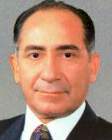
L. Oviedo |
Oviedo (Silva), Lino (César) (b. Sept. 23, 1943, Asunción, Paraguay - d. [helicopter crash] Feb. 2, 2013, Presidente Hayes department, Paraguay), Paraguayan political figure. He helped overthrow Pres. Alfredo Stroessner in 1989. He initially supported Pres. Juan Carlos Wasmosy, who was elected in 1993, but they soon fell out and when Wasmosy ordered Oviedo to relinquish his army command in April 1996, Oviedo holed up in barracks with troops and tanks in defiance of Wasmosy. In September 1997 Oviedo won the Colorado Party primaries for president. He was confined to barracks in December 1997 by a military tribunal investigating his 1996 coup attempt and was sentenced to 10 years' jail and discharged on March 9, 1998. In April, after the Supreme Court rejected an appeal by Oviedo and upheld his jail sentence, the Superior Court of Electoral Justice ruled Oviedo "non-eligible for the post of president." Raúl Cubas, who was Oviedo's vice-presidential running mate, then moved to the top spot. Cubas was elected, and upon taking office in August promptly released Oviedo and appointed new members to the military tribunal, which then exonerated Oviedo. However, in September the Supreme Court ruled that the tribunal's decision was invalid. In December the Supreme Court ordered Oviedo back to jail, declaring the presidential decree releasing the general unconstitutional. Oviedo was blamed with Cubas for the assassination of Vice President Luis María Argaña in 1999. He fled to Argentina in a small plane after Cubas's resignation and was granted asylum. Argentina rejected a Paraguayan request to extradite Oviedo. His asylum was revoked, however, after he broke his rules of exile by engaging in Paraguayan politics - forcing him to go into hiding. In June 2000, he was arrested in Brazil. In December 2001 he won the right to stay in Brazil. But he voluntarily returned to Paraguay in June 2004 and was put in prison to serve out his 10-year sentence. In October 2007 his conviction was annulled by the Supreme Court, clearing the way for him to run for president in 2008. In 2002 he had established his own party, the National Union of Ethical Citizens. He came third in the 2008 election.
Oviglio, Aldo (b. Dec. 7, 1873, Rimini, Italy - d. Aug. 19, 1942, Bologna, Italy), justice minister of Italy (1922-25).
Ovono Mañana, Felipe, interior minister of Equatorial Guinea (1981-82). He was also minister of territorial administration (1982-84).
Ovsepyan, Haik (Aleksandrovich) (b. Jan. 19, 1891, Bash-Kadyklar, Kars oblast, Russia [now Basgedikler, Turkey] - d. [executed] Sept. 10, 1937), first secretary of the Communist Party of the Armenian S.S.R. (1927-28).
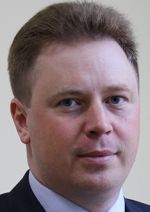
Ovsyannikov |
Ovsyannikov, Dmitry (Vladimirovich) (b. Feb. 21, 1977, Omsk, Russian S.F.S.R.), governor of Sevastopol (2016-19).
Owada, Hisashi (b. Sept. 18, 1932, Niigata, Japan), president of the International Court of Justice (2009-12). He was also Japan's permanent representative to the United Nations (1994-98).
Oweini, Hussein al-, also spelled Oueini, Arabic Husayn al-`Uwayni (b. 1900, Beirut, Lebanon - d. Jan. 11, 1971, Beirut), prime minister (1951, 1964-65) and foreign minister (1951, 1958-60, 1965, 1968-69) of Lebanon. He was also minister of finance (1948-51), interior (1951, 1964), defense (1951, 1968-69), justice (1968-69), and economy (1968-69).

D. Owen |
Owen, David (Anthony Llewellyn) Owen, Baron (b. July 2, 1938, Plympton, Devon, England), British foreign secretary (1977-79). He was elected Labour MP for Plymouth Sutton in 1966, transferring to Plymouth Devonport in 1974. He became undersecretary for the navy in 1968. Following Labour's 1970 election defeat he became an opposition defense spokesman, resigning in 1972 over Labour's stance on Europe. When Labour returned to power in 1974 he returned to the fold as junior health and social security minister. He was moved to the Foreign Office as minister of state in 1976 and after the death of Foreign Secretary Anthony Crosland he took his place at the young age of 38. After Labour's 1979 defeat, he became energy spokesman. In 1980 Owen and fellow ex-ministers Shirley Williams and Bill Rodgers penned an open letter complaining of the party's leftward drift. Former Labour chancellor Roy Jenkins subsequently joined them and in 1981 this "Gang of Four" on the party's right broke away and founded the Social Democratic Party (SDP). Owen served as its leader in 1983-87 and opposed any calls within the party for a merger with the Liberals. When 57% of SDP members nevertheless voted to combine with the Liberal Party to form what became the Liberal Democrats he resumed the leadership of the rump SDP in 1988 until the party was wound up in 1990, when it still had 3 MPs. Owen retired at the 1992 general election, when his two colleagues narrowly lost their seats to Labour, and was created a life peer, sitting in the House of Lords as a crossbencher (independent). He served as an EU peace envoy during the Bosnian war of 1992-95.
Owen, John Wynne (b. April 25, 1939), governor of the Cayman Islands (1995-99).
Owen, Nora, née O'Mahony (b. June 1945, Dublin, Ireland), justice minister of Ireland (1994-97); grandniece of Michael Collins.
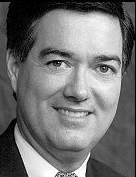
Owens |
Owens, Bill, byname of William Forrester Owens (b. Oct. 22, 1950, Fort Worth, Texas), governor of Colorado (1999-2007). He once worked as a page in the U.S. House. The Republican rose through the ranks of Colorado state government undefeated, repeating a mantra - "It's time for a change" - that he hoped would end a Democratic stranglehold on the governor's office. He was first elected to the Colorado House in 1982, serving three terms before moving to the state Senate in 1988. In 1994, he was elected treasurer. In 1998, he extended his winning streak - albeit barely - to become Colorado's first Republican governor in 24 years. After defeating Senate President Tom Norton in the Republican primary 59%-41%, he edged out his Democratic opponent, Lt.Gov. Gail Schoettler, 49%-48%, having consistently portrayed her as part of the status quo. In his first two years, he delivered on many of his promises, though not always as some Republicans liked. He tried to get voters to pass referenda for transportation bond issues, which were rejected in 1997 and 1998. But in 1999, with a big campaign treasury and support from former governor Roy Romer and Denver mayor Wellington Webb, he got voters to back a $1.7 billion bond issue, which he claimed would finance $4.4 billion of transportation projects. After the 1999 Columbine school shooting, he and the legislature sidetracked a pending concealed-carry law, and he backed a referendum that passed in 2000 requiring background checks for all sales at gun shows. His major effort in 2000 was education reform, including the issuing and sending to parents of performance-based report cards for each school. He cut income tax and took conservative stands on cultural issues. In 2002 he was easily reelected, defeating Democrat Rollie Heath 63%-34%.
Owoniyi, Aina (Joseph), administrator of Taraba (1998-99).
Owono Nkoudou, Joseph (b. Dec. 17, 1921, Mengueme, Cameroon - d. April 1981, Germany), Cameroonian diplomat. Also known as a novelist, he was ambassador to Liberia (1961-62), the United Arab Republic (1962-65), the United States (1965-69), and the Soviet Union (1970-72) and permanent representative to the United Nations (1966-67).
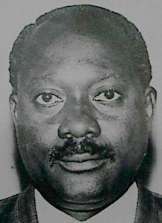
Owusu | 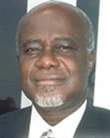
Owusu-Agyemang |
Owusu, Victor (b. Dec. 26, 1923, Agona, Gold Coast [now Ghana] - d. Dec. 16, 2000, London, England), foreign minister of Ghana (1969, 1969-71). He was also attorney general (1966-67), justice minister (1967-69), and a presidential candidate (1979).
Owusu-Agyemang, Hackman (b. Nov. 22, 1941, Effiduase-Koforidua, Eastern Region, Gold Coast [now Ghana]), foreign minister (2001-03) and interior minister (2003-05) of Ghana. He was also minister of water resources, works, and housing (2005-07).
Owusu Ankomah, Papa (b. April 27, 1958), interior minister of Ghana (2005-06). He was also minister of youth and sports (2001), parliamentary affairs (2001-03), justice (2003-05), and education, science, and sports (2006-07).
Oxenstierna af Korsholm och Wasa, Johan Gabriel greve (b. July 19, 1750, Västra Vingåker socken, Södermanland, Sweden - d. July 29, 1818, Stockholm, Sweden), chancellery president of Sweden (1786-89); great-grandson of Jakob greve Gyllenborg; grandnephew of Carl greve Gyllenborg and Olof greve Gyllenborg.
Oxford, Robert Harley, (1st) Earl of, Earl Mortimer, Baron Harley of Wigmore (b. Dec. 5, 1661, London, England - d. May 21, 1724, London), British secretary of state for the Northern Department (1704-08) and chancellor of the exchequer (1710-11). He was also speaker of the House of Commons (1701-05) and lord treasurer (1711-14). He was created Baron Harley, Earl of Oxford, and Earl Mortimer in 1711.
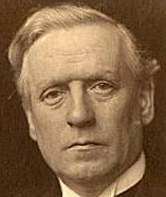
H.H. Asquith |
Oxford and Asquith, H(erbert) H(enry) Asquith, (1st) Earl of, Viscount Asquith of Morley (b. Sept. 12, 1852, Morley, Yorkshire, England - d. Feb. 15, 1928, Sutton Courtenay, Berkshire, England), prime minister of the United Kingdom (1908-16). In the 1886 general election he was elected as a Liberal for East Fife. In 1892 Prime Minister William Gladstone made him home secretary. He became one of the leading figures of his party, which was defeated at the polls in 1895 and spent the next 11 years in opposition. Following the Liberals' victory in the 1906 elections, he served as chancellor of the exchequer, and in 1908 he succeeded Sir Henry Campbell-Bannerman as prime minister. Working closely with David Lloyd George, his chancellor of the exchequer, he introduced a series of reforms, including the Old Age Pensions Act, which resulted in a conflict with the House of Lords. When the 1909 budget was vetoed by the House of Lords, he took over the conduct of a constitutional struggle. In August 1911 the Parliament Act was passed, ending the Lords' veto power over financial legislation passed by the Commons. He delayed Britain's entry into World War I until public opinion had been aroused by the German attack on Belgium. In 1915 he formed a coalition government. By 1916, the Conservatives in the cabinet were questioning his ability as a war leader, and he was assailed by a strident press campaign. In December he resigned and was replaced by Lloyd George, whose decision to join the Conservatives in removing Asquith split the Liberal Party. In 1918 he lost his seat in East Fife but he returned as MP for Paisley in 1923. He remained leader of the Liberal Party until 1926. He accepted a peerage as Earl of Oxford and Asquith in 1925 and was created a Knight of the Garter shortly afterward.
Oxford and Asquith, Julian Edward George Asquith, (2nd) Earl of, Viscount Asquith of Morley (b. April 22, 1916 - d. Jan. 16, 2011), administrator of Saint Lucia (1958-62) and governor of the Seychelles (1962-67); grandson of H.H. Asquith, Earl of Oxford and Asquith. He succeeded as earl and viscount in 1928 and was knighted (K.C.M.G.) in 1964.
Oxholm, Waldemar Henry Theodor (b. Nov. 22, 1868, Bogense, Denmark - d. Sept. 28, 1945, near Vedbæk, Denmark), interior (and agriculture) minister of Denmark (1920). He was also amtmand of Maribo (1912-32).
Oya, Shinzo (b. July 1894, Gunma prefecture, Japan - d. March 9, 1980), finance minister of Japan (1948-49). He was also minister of commerce and industry (1948-49) and transport (1949-50).
Oyakhilome, Fidelis (b. April 3, 1939, Ewu [now in Edo state], Nigeria), governor of Rivers (1985-86).
Oyakhire, Amen (Edore), administrator of Taraba (1996-98) and Oyo (1998-99).
Oyama, Constantino (Celestine) (b. Nov. 14, 1922, Nett, Ponape [now Pohnpei], Micronesia [now in Federated States of Micronesia] - d. June 18, 2005, Nett), Nahnmwarki of Nett (1996-2005).
Oyanedel Urrutia, Abraham (b. May 25, 1874, Copiapó, Atacama province, Chile - d. Jan. 29, 1954, Santiago, Chile), acting president of Chile (1932). He was president of the Supreme Court (1932-34).
Oyanguren (Saavedra), Enrique (b. March 9, 1868, Lima, Peru - d. 19...), finance minister of Peru (1910-11, 1915).
Oyarzun Marchesi, Román (b. Aug. 26, 1957, Madrid, Spain), Spanish diplomat. He was ambassador to Argentina (2012-14) and Denmark (2018-22) and permanent representative to the United Nations (2014-17).
Oyarzún Mondaca, Enrique (b. June 20, 1866, Vallenar, Chile - d. Aug. 19, 1949, Santiago, Chile), finance minister of Chile (1914, 1920, 1921). He was also president of the Senate (1925-30) and of the Central Bank (1940-46).

Oyé-Mba | 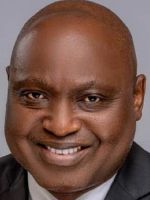
Oyebanji |
Oyé-Mba, Casimir (Marie Ange) (b. April 20, 1942, Nzamaligué, Gabon - d. Sept. 16, 2021, Paris, France), prime minister (1990-94) and foreign minister (1994-99) of Gabon. He was also minister of planning (1999-2007) and mines, oil, hydrocarbons, energy, water resources, and promotion of new energies (2007-09).
Oyebanji, Abiodun (Abayomi), byname Biodun Oyebanji (b. Dec. 21, 1967, Ikogosi [now in Ekiti state], Nigeria), governor of Ekiti (2022- ).
Øyen, Knud Iversen (b. May 12, 1865, Folldal, Norway - d. Nov. 14, 1942), governor of Hedmark (1926-35) and justice minister of Norway (1926-28).
Oyinlola, Olagunsoye (b. Feb. 3, 1951, Okuku village [now in Osun state], Nigeria), administrator of Lagos (1993-96) and governor of Osun (2003-10).
Oyo Ebule, Evangelina (Filomena) (b. Aug. 12, 1954, Santa Isabel, Spanish Guinea [now Malabo, Equatorial Guinea]), Equatorial Guinean politician. She was minister of labour and social security (2006-13) and justice (2013-18).
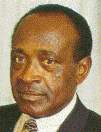
F.L. Oyono |
Oyono, Ferdinand Léopold (b. Sept. 14, 1929, Ngoulemakong or Ebolowa, French Cameroons [now in South province, Cameroon] - d. June 10, 2010, Yaoundé, Cameroon), foreign minister of Cameroon (1992-97). He was also ambassador to Liberia (1965), Benelux and European Communities (1965-68), France (concurrently Spain, Italy, Morocco, Algeria, and Tunisia, 1969-74), Algeria and Libya (1982-83), and the United Kingdom and Scandinavian countries (1984-85), permanent representative to the United Nations (1974-82), chairman of the UNICEF Executive Board (1977-78), minister of town planning and housing (1986-90), and minister of state in charge of culture (1997-2007). He was also noted as a writer.
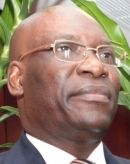
S. Oyono |
Oyono Esono Angue, Simeón (b. Feb. 18, 1967, Mibang Esawong, Spanish Guinea [now Equatorial Guinea]), foreign minister of Equatorial Guinea (2018- ). He was also ambassador to Ethiopia (2013-18).
Oyono Ndong Mifumu, Miguel, foreign minister of Equatorial Guinea (1993-99). He has also been minister of agriculture (1982-86, 2012-14), minister of state for livestock and fisheries (1992-93), a deputy prime minister (1998-99), first deputy prime minister (1999-2001), and ambassador to France (2014-23) and Belgium (2023- ).
Oyono Ntutumu, Marcelino (b. 1952), economy and finance minister of Equatorial Guinea (1996-98). He was also minister of transport, posts and telecommunications (1992-93), transport and communications (1998-2004), and infrastructure and public works (2008-12) and first deputy prime minister in charge of domestic policy (2004-08).
Oyoué, Jean-Félix (b. Oct. 12, 1928, Libreville, Gabon), Gabonese diplomat. He was ambassador to Canada (1976-79) and Ivory Coast (1979-83) and permanent representative to the United Nations (1983-86).
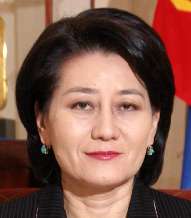
Oyun |
Oyun, Sanjaasürengiyn (b. 1964, Ulaanbaatar, Mongolia), foreign minister of Mongolia (2007-08); sister of Sanjaasürengiyn Zorig. She was also minister of environment and green development (2012-14) and president of the United Nations Environment Assembly (2014-16).
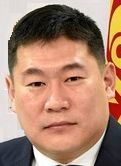
Oyun-Erdene |
Oyun-Erdene, Luvsannamsrai (b. June 29, 1980, Ulaanbaatar, Mongolia), prime minister of Mongolia (2021- ).
Oyunsky, Platon (Alekseyevich), original surname Sleptsov (b. Nov. 10 [Oct. 29, O.S.], 1893, Boturussky [in present Tattinsky] ulus, Yakutsk oblast [now in Sakha republic], Russia - d. Oct. 31, 1939, Yakutsk, Yakut A.S.S.R., Russian S.F.S.R. [now Sakha republic, Russia]), chairman of the Central Executive Committee of the Yakut A.S.S.R. (1923-26). He was also chairman of the Revolutionary Committee of Yakutsk oblast (1921-22) and people's commissar of education (1928-...), health (192...), and social security (192...-29).
Oza, Ghanshyam (Bhai) (b. 1911 - d. July 12, 2002, Ahmedabad, Gujarat, India), chief minister of Gujarat (1972-73).
Ozaki, Masanao (b. Sept. 14, 1967), governor of Kochi (2007-19).
Özal, Korkut, before 1935 Korkut bin Mehmet Siddik Bey (b. May 29, 1929, Malatya, Turkey - d. Nov. 2, 2016, Istanbul, Turkey), interior minister of Turkey (1977-78); brother of Turgut Özal. He was also minister of food, agriculture, and animal husbandry (1974, 1975-77).
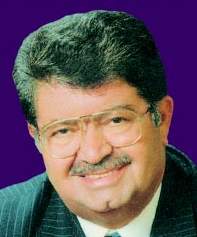
T. Özal |
Özal, (Halil) Turgut, before 1935 Halil Turgut bin Mehmet Siddik Bey (b. Oct. 13, 1927, Malatya, eastern Turkey - d. April 17, 1993, Ankara, Turkey), prime minister (1983-89) and president (1989-93) of Turkey; brother-in-law of Ali Tanriyar. He served as a technical adviser to the Defense Ministry, the State Planning Organization (SPO), and Prime Minister Süleyman Demirel. He worked on a number of major utility projects, including the Bosporus Bridge, and served as undersecretary of the SPO in 1967-71. Unlike the socialist planners who at first dominated the SPO, he championed private enterprise within the national plan. After Demirel was ousted in a military coup (1971), Özal worked at the World Bank in Washington, D.C. (1971-73). Demirel regained power in 1975, and Özal resumed his post at the SPO four years later. He devised and implemented a major program liberalizing the Turkish economy. In 1980, after the military once again took control, he was made deputy prime minister in charge of the economy and given a free hand to push his economic austerity program. He succeeded in slashing inflation, increasing exports, and restoring his country's creditworthiness, but he clashed with the ruling generals when his monetarist stance led to soaring interest rates and the bankruptcy of a major finance house. Resigning in 1982, he founded the Motherland Party in 1983. Working within the framework established by the military but without their favour, he led the party to victory in the general election of Nov. 6, 1983, that inaugurated a return to civilian parliamentary rule; the party won again in 1987. By the time he became president in 1989, he had revived the economy, strengthened Turkey's commitment to NATO, and applied to join the European Community. In 1990 he used Turkey's pivotal geographic location to command a central role in the Western-Arab alliance against Iraq's invasion of Kuwait. He died in office; in 2012 his body was exhumed and a forensic investigation found evidence he was poisoned.
Özalp, Kazim (Fikri), until Jan. 1, 1935, Kazim Pasha (b. 1880, Köprülü, Ottoman Empire [now Veles, North Macedonia] - d. June 6, 1968, Ankara, Turkey), defense minister of Turkey (1922-24, 1935-39). He was also speaker of the Grand National Assembly (1924-35).

Ozawa |
Ozawa, Ichiro (b. May 24, 1942, Mizusawa, Iwate prefecture, Japan), Japanese politician. He was born into the family of a powerful party politician. After his father died in 1968, he inherited a lower house seat for Iwate prefecture (1969) and earned his reputation as a political fixer under the tutelage of a pair of Liberal-Democratic Party (LDP) strongmen, Kakuei Tanaka and, later, Shin Kanemaru. He served as vice minister of the Science and Technology Agency and of construction in the late 1970s and as minister of home affairs in 1985-86. In 1989-91 he held the post of secretary-general of the LDP. He broke with his party in 1993 over the question of political reform, and put together Shinseito (Japan Renewal Party), which helped topple the Liberal Democrats, who had held power for 38 years. He laid out a prescription for national renewal in his 1993 best-seller Blueprint for a New Japan, which called for Japan to become "a normal nation" and assume international responsibilities, not only as an economic but also as a political and military power. Subsequently he was top policymaker through the administrations of prime ministers Morihiro Hosokawa and Tsutomu Hata, but his dictatorial management came under fire after the Social Democratic Party left the ruling coalition and formed a government with the LDP in 1994. Ozawa then set up the Kaikaku (Reform) parliamentary group as a forerunner to a new unified opposition party. Shinshinto (New Frontier Party) was subsequently formed; he first became its secretary-general and in 1995 took over the leadership. This group disbanded in 1997, as it was unhappy with his high-handed approach, and he then formed the Liberal Party in 1998 and in 2003 merged it into the Democratic Party of Japan, of which he was leader from April 2006 to May 2009 and secretary-general in 2009-10. He resigned from the DPJ (which came to power in 2009) in 2012 along with 49 other members of parliament in protest against a sales tax hike.
Özaydinli, Irfan (b. 1924, Aydin, Turkey - d. Aug. 1, 1999, Istanbul, Turkey), interior minister of Turkey (1978-79).
Özbek, Ahmet Sabahattin (b. 1915, Erzincan, Ottoman Empire [now in Turkey] - d. Aug. 29, 2001, Ankara, Turkey), interior minister of Turkey (1977). He was also minister of education (1972-73), communications (1973-74, 1974-75), and agriculture and forestry (1980-83).
Özdilek, Fahri, byname of Emin Fahrettin Özdilek (b. 1898, Bursa, Ottoman Empire [now in Turkey] - d. March 13, 1989, Ankara, Turkey), defense minister (1960, 1961), deputy prime minister (1960-61, 1961), and acting prime minister (1961) of Turkey.
Ozdowski, Jerzy (b. Sept. 19, 1925, Pawlowice, Poland - d. April 18, 1994, Warsaw, Poland), a deputy premier of Poland (1980-82).
Ozdoyev, Kureysh (Izmailovich), chairman of the Presidium of the Supreme Soviet of the Chechen-Ingush A.S.S.R. (1971?-73).
Ozerov, Aleksandr (Petrovich) (b. July 20 [July 8, O.S.], 1817 - d. Aug. 1 [July 19, O.S.], 1900), Russian diplomat; son of Pyotr Ozerov (1778?-1843); brother of Ivan Ozerov. He was minister to Greece (1857-61) and Switzerland (1861-69).
Ozerov, Boris (Aleksandrovich) (b. Aug. 26, 1852, Constantinople, Ottoman Empire [now Istanbul, Turkey] - d. 19...), Russian diplomat; son of Aleksandr Ozerov. He was governor of Kielce (1899-1914).
Ozerov, Ivan (Petrovich) (b. July 27 [July 15, O.S.], 1806 - d. May 18 [May 6, O.S.], 1880), Russian diplomat; son of Pyotr Ozerov (1778?-1843). He was chargé d'affaires in Baden (1846-54) and minister to Portugal (1854-63) and Bavaria (1863-80).
Ozerov, Pyotr (Ivanovich) (b. 1778? - d. May 13 [May 1, O.S.], 1843, Moscow, Russia), governor of Tver (1813-17).
Ozerov, Pyotr (Ivanovich) (b. Oct. 22, 1833 - d. Jan. 16, 1901), Russian diplomat; son of Ivan Ozerov. He was minister to Hesse-Darmstadt (1895-1901).
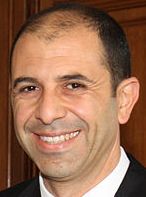
Özersay |
Özersay, Kudret (b. Dec. 16, 1973, Alaminos, Larnaca district, Cyprus), foreign minister of North Cyprus (2018-20). He was a presidential candidate in 2020.
Ozgan, Konstantin (Konstantinovich) (b. May 15, 1939, Lykhny, Abkhaz A.S.S.R., Georgian S.S.R. - d. March 22, 2016, Sukhumi, Abkhazia), foreign minister of Abkhazia (1996-97). He was also a vice premier and economy minister (1997-99).
Ozgan, Kristina (Konstantinovna) (b. 1973), Abkhaz politician; daughter of Konstantin Ozgan. She has been economy minister (2005-11, 2020- ) and vice premier (2020- ).
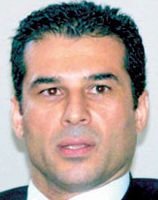
Özgürgün |
Özgürgün, Hüseyin (b. 1965, Nicosia, Cyprus), foreign minister (2009-13) and prime minister (2010 [acting], 2016-18) of North Cyprus. He was also leader of the National Unity Party (2005-06, 2013-18).
Ozolins, Karlis, Russian Karl (Martynovich) Ozolin (b. Aug. 31 [Aug. 18, O.S.], 1905, Madlienas parish, Russia [now in Latvia] - d. Aug. 15, 1987), chairman of the Presidium of the Supreme Soviet of the Latvian S.S.R. (1952-59).
Ozols, Antons (b. July 24, 1878, Velku parish, Russia [now in Latvia] - d. Sept. 3, 1956, Port Washington, Wis.), war minister (1928-29) and justice minister (1933-34) of Latvia.
Ozores Typaldos, Carlos (b. Aug. 7, 1940 - d. March 12, 2016), foreign minister (1978-81), interior and justice minister (1983-84), and vice president (1984, 1989) of Panama. He was also permanent representative to the United Nations (1981-83) and ambassador to Spain (1985), Canada (1990s), and Colombia (2005-09).
Ozorio, José Basson de Miranda (b. Nov. 17, 1836, Parnaíba, Piauí, Brazil - d. April 27, 1903, near Juiz de Fora, Minas Gerais, Brazil), president of Paraíba (1882-83).
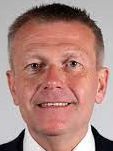
Ozouf |
Ozouf, Philip (Francis Cyril) (b. 1970), external relations minister of Jersey (2022- ).
Ozov, Anatoly (Galimzhanovich) (b. 1942, Cherkessk, Russian S.F.S.R.), prime minister of Karachayevo-Cherkessia (1995-99).
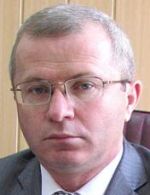
Aslan Ozov |
Ozov, Aslan (Anatolyevich) (b. Nov. 1, 1966, Maly Zelenchuk, Karachay-Cherkess autonomous oblast, Stavropol kray, Russian S.F.S.R.), prime minister of Karachayevo-Cherkessia (2016-21); son of Anatoly Ozov.
Öztekin, Mukadder (b. 1919, Nigde, Ottoman Empire [now in Turkey] - d. Jan. 30, 1995), interior minister of Turkey (1973-74, 1974-75). He was also governor of Adana (1960-66) and minister of public works (1971-73).
Öztrak, (Mustafa) Faik (b. 1882, Malkara, Ottoman Empire [now in Turkey] - d. May 30, 1951, Ankara, Turkey), interior minister of Turkey (1939-42).
Öztrak, Orhan (b. 1914, Malkara, Ottoman Empire [now in Turkey] - d. Dec. 30, 1995), interior minister of Turkey (1962 [acting], 1963-65); son of Faik Öztrak. He was also minister of customs and monopolies (1962-63, 1975-77).
Öztürk, Sebahattin (b. July 1, 1962, Çaykara, Trabzon, Turkey), interior minister of Turkey (2015). He was also governor of Nigde (2007-09), Erzurum (2009-13), and Antalya (2013-14).
Özyörük, Halil (Ibrahim) (b. June 14, 1884, Smyrna, Ottoman Empire [now Izmir, Turkey] - d. Feb. 28, 1960, Istanbul, Turkey), justice minister (1950-51) and interior minister (1951) of Turkey.




























































































































